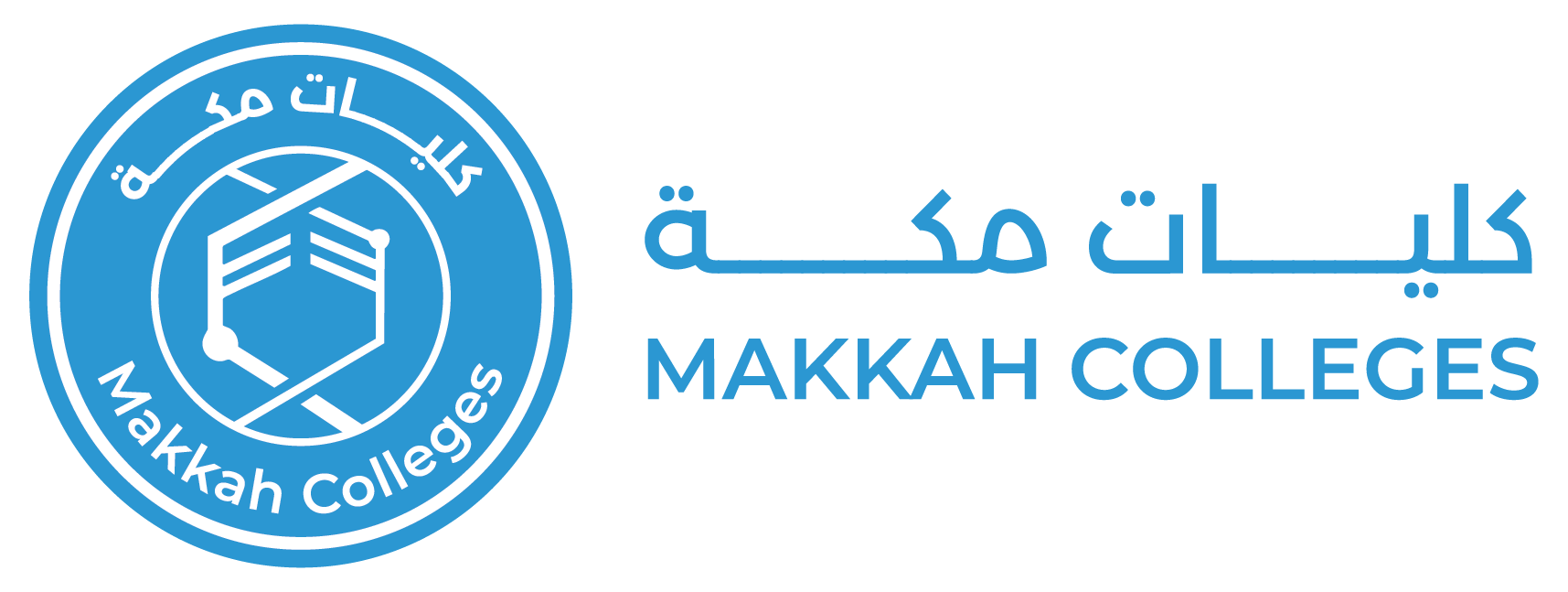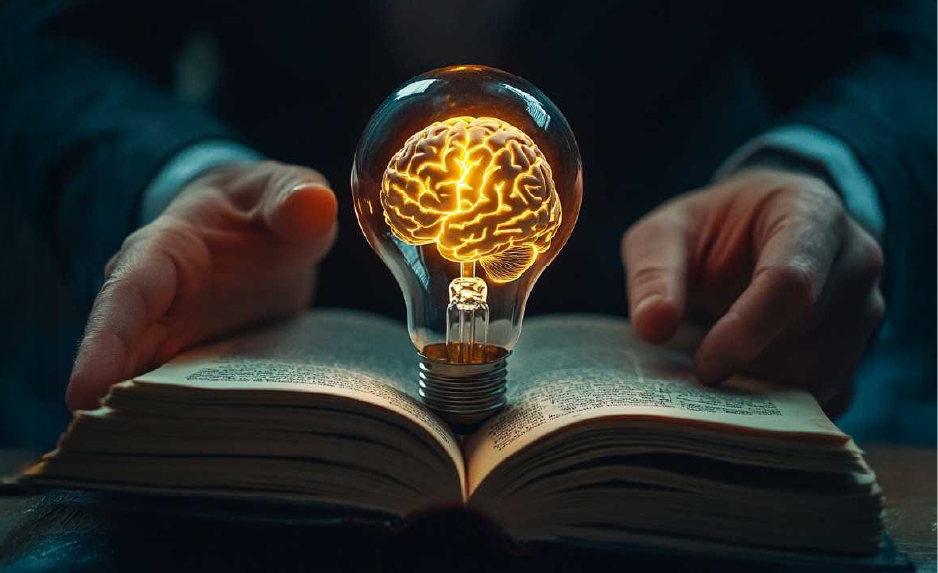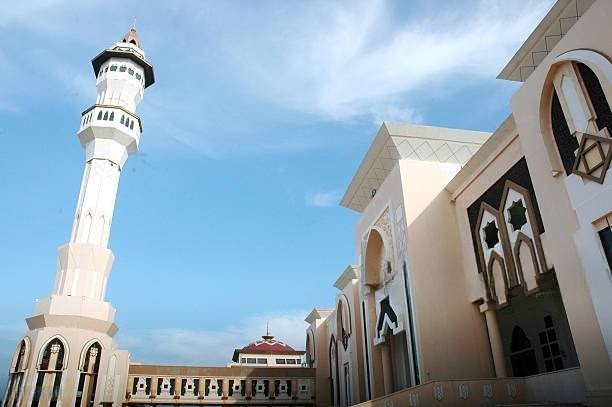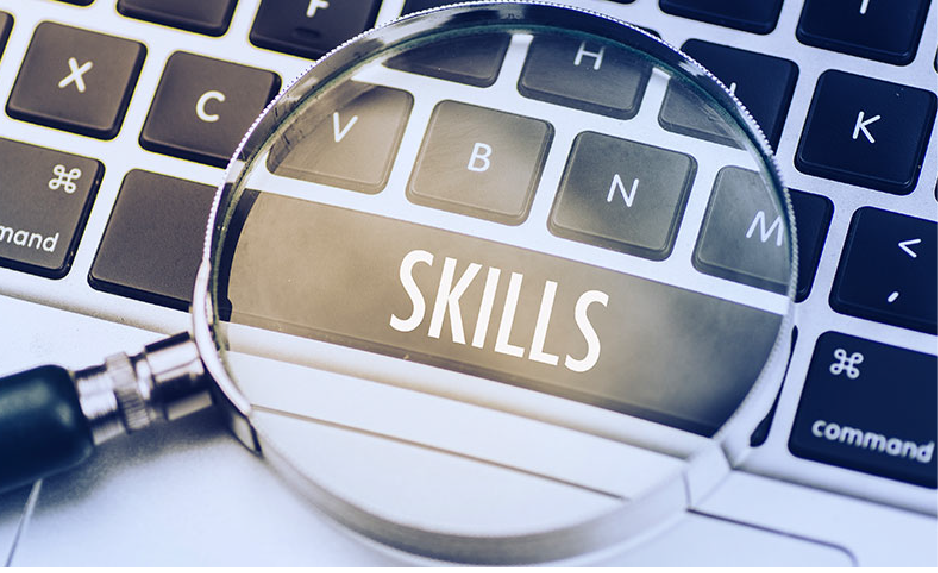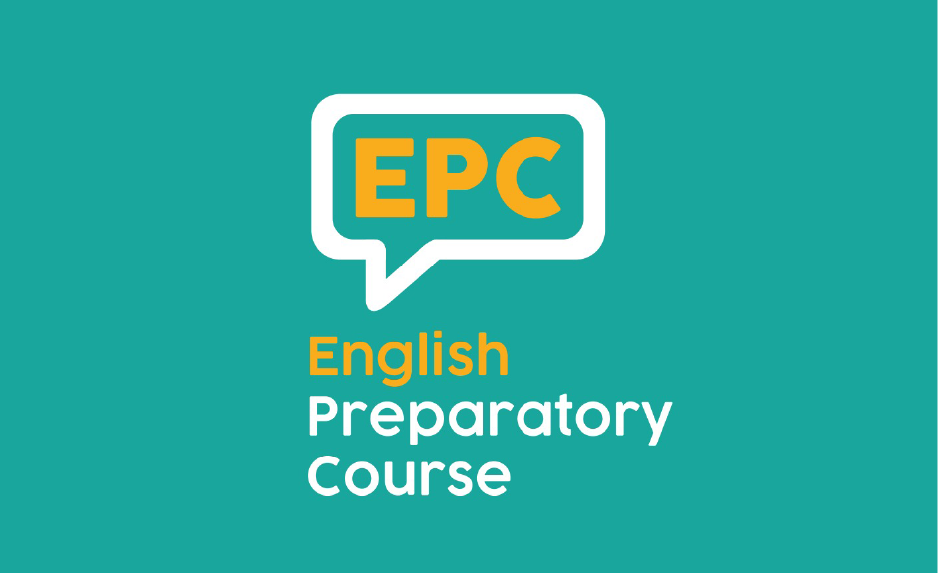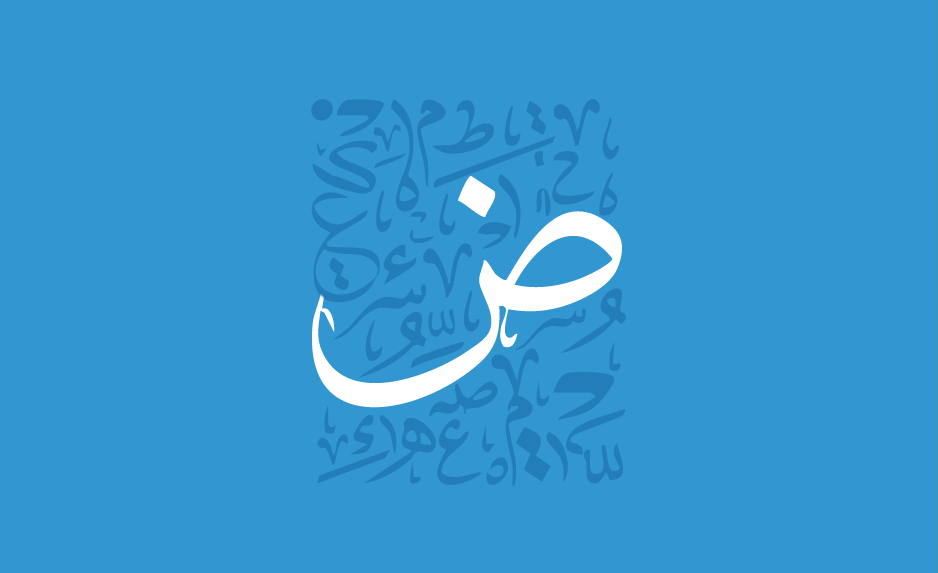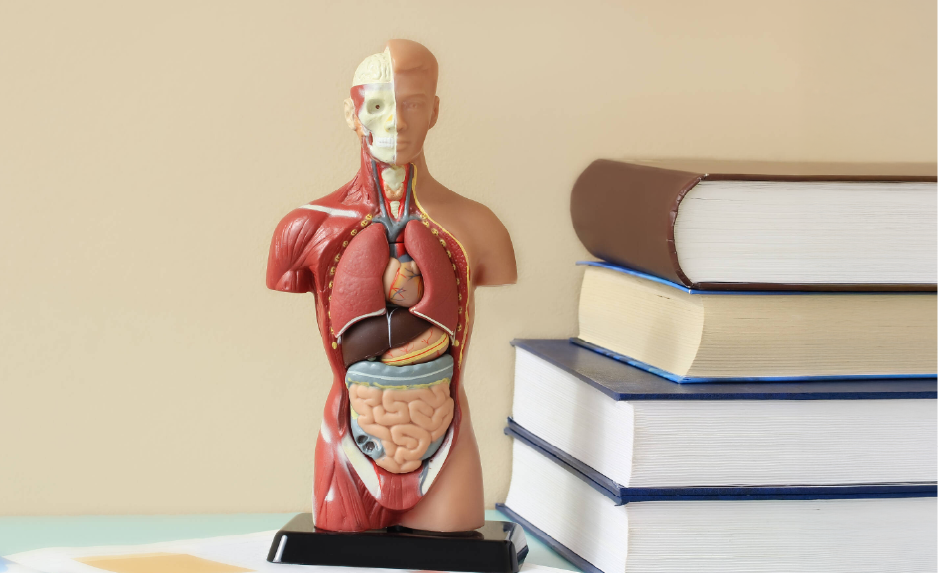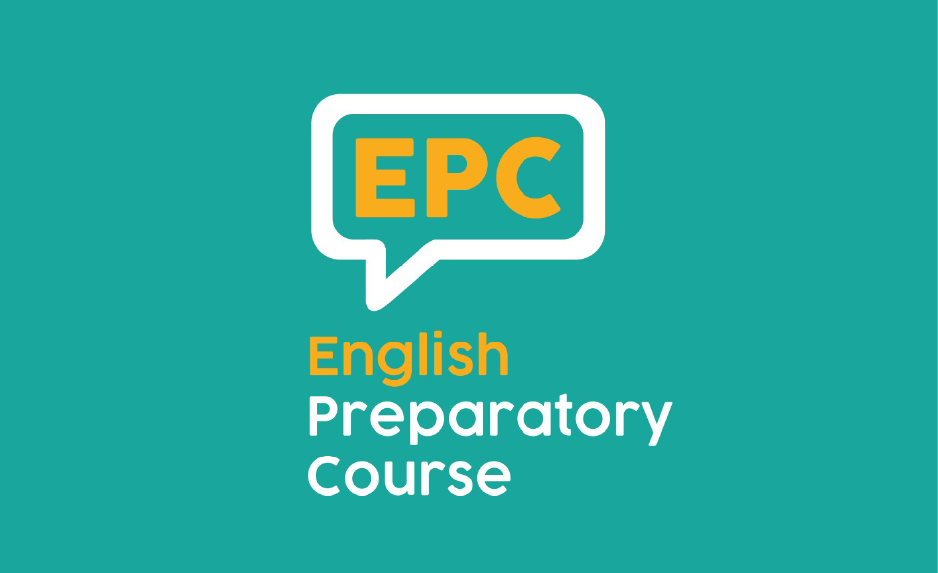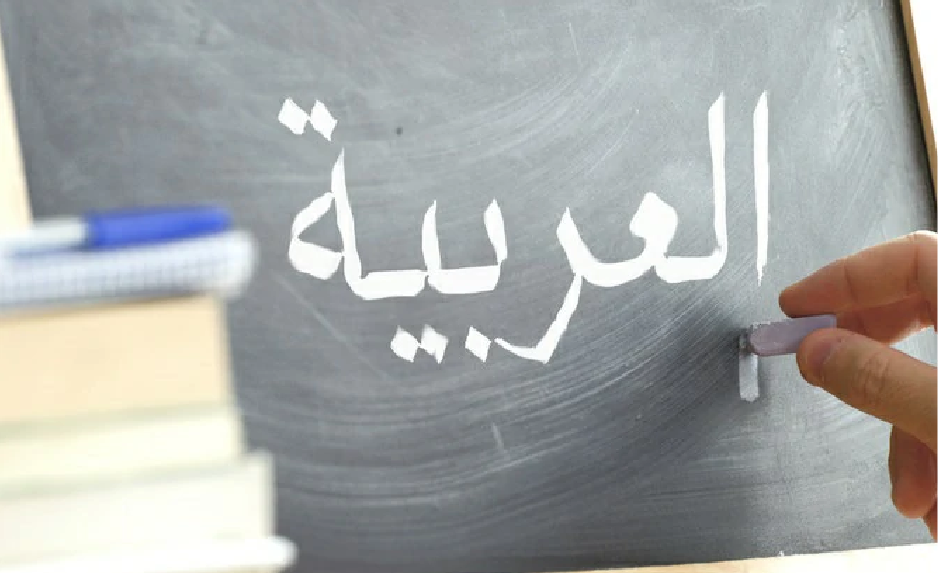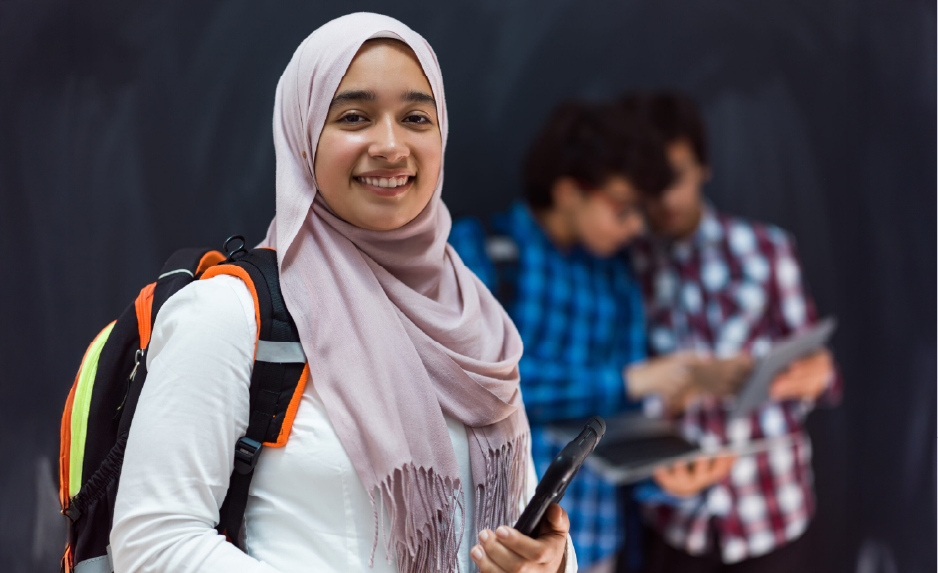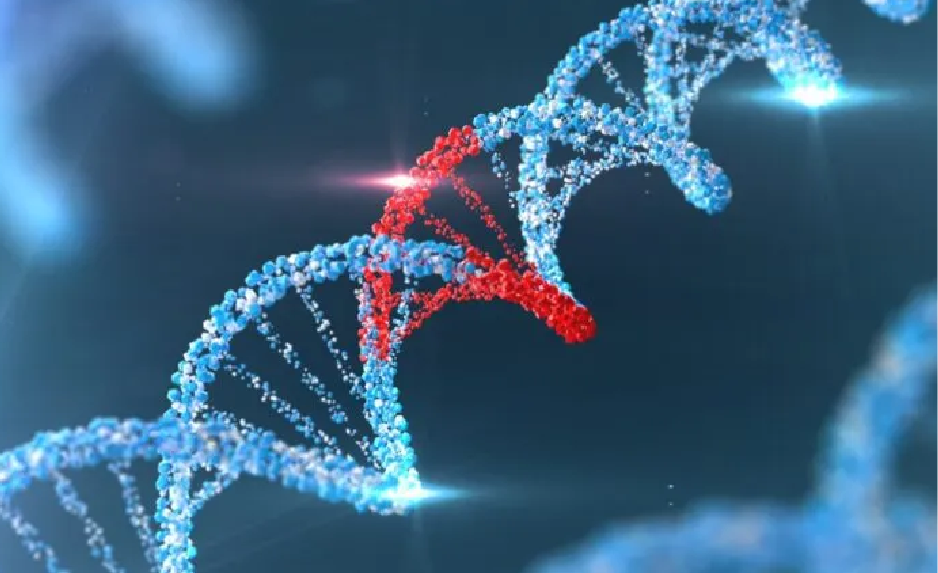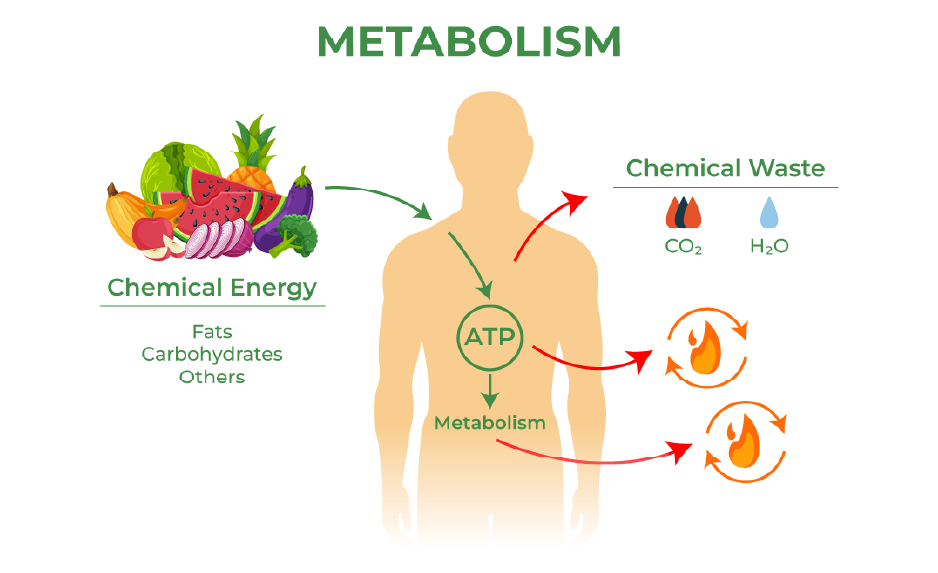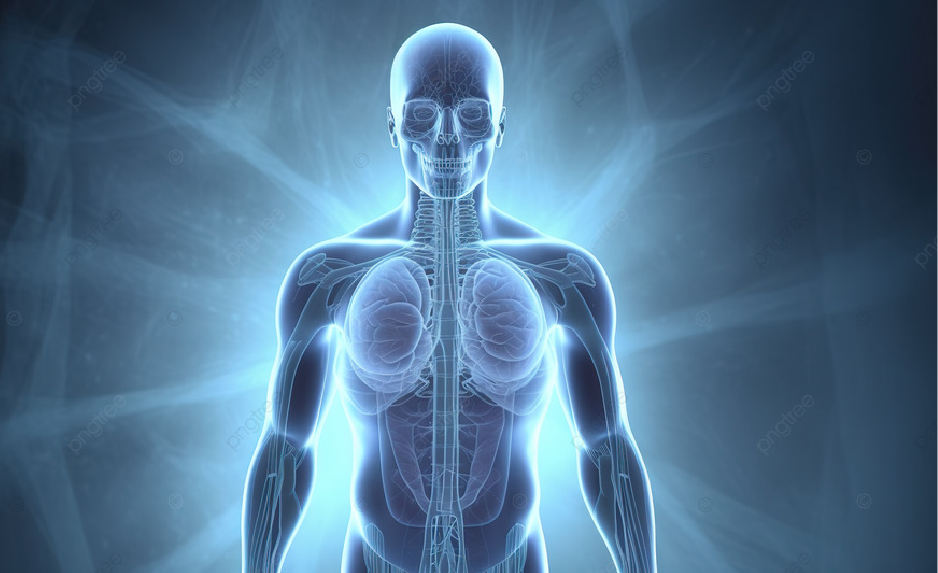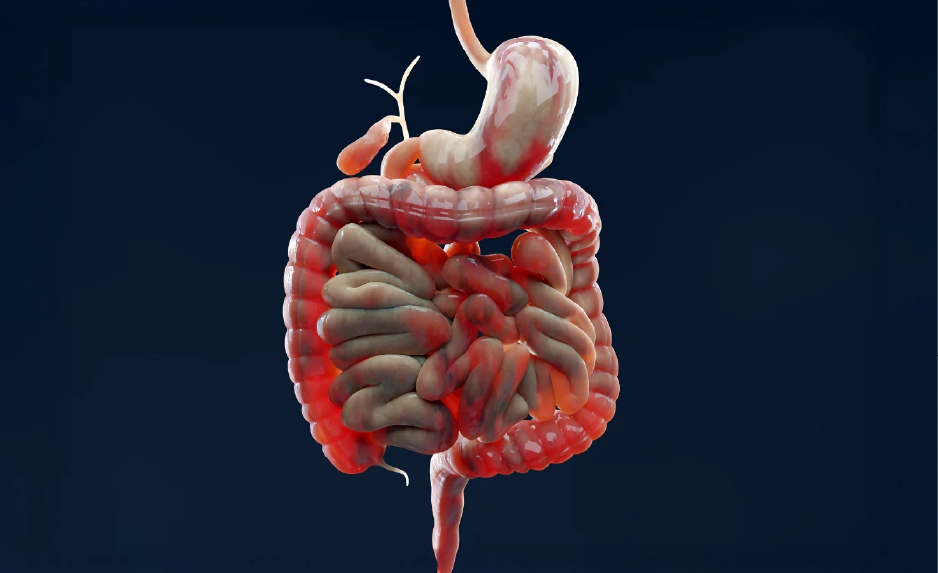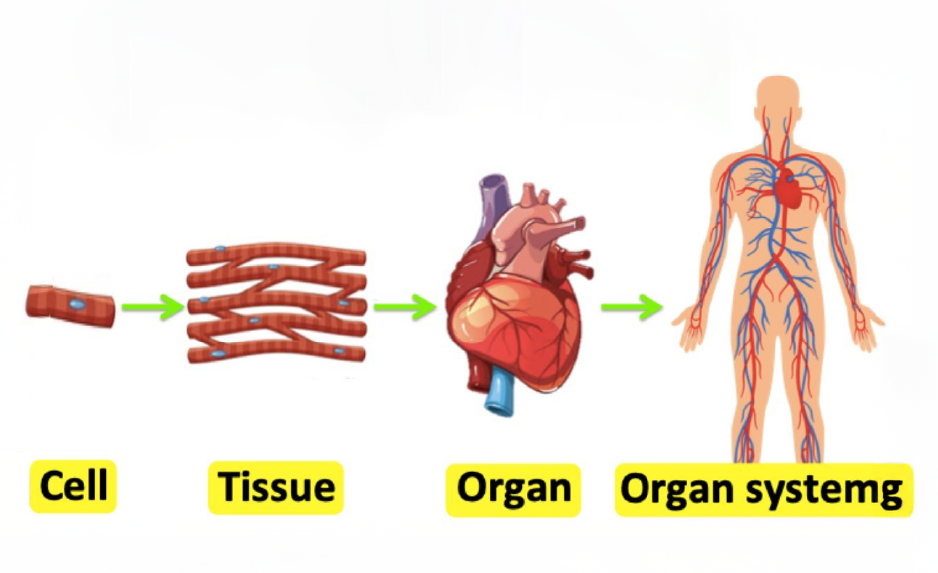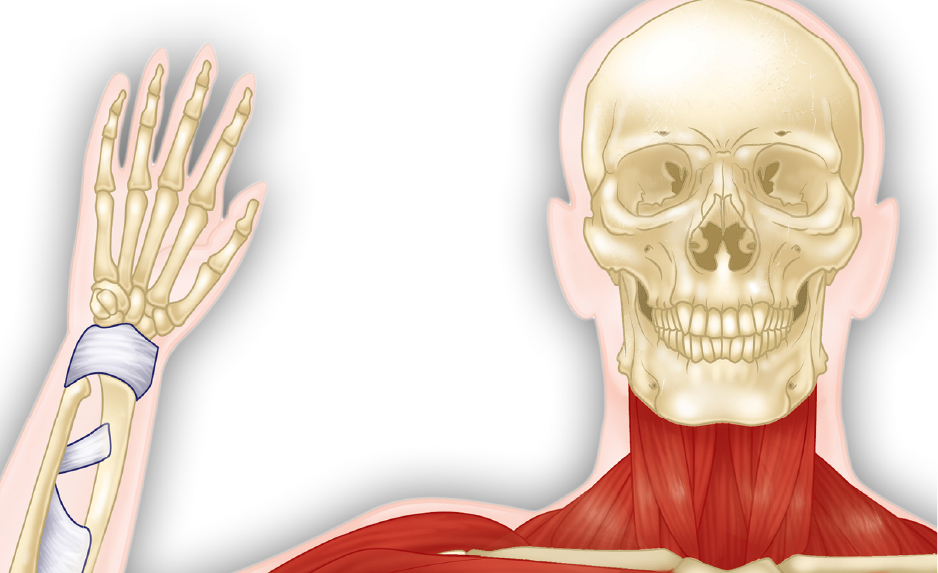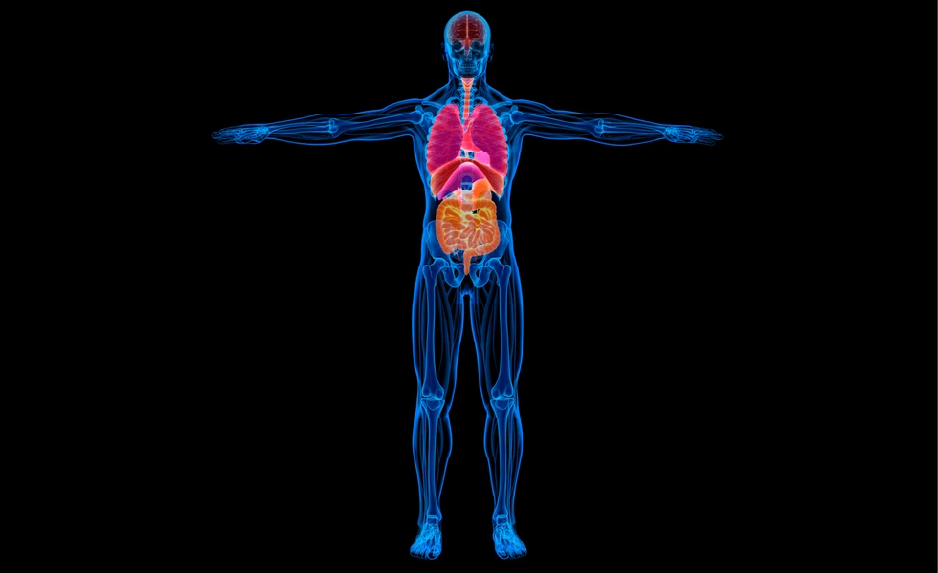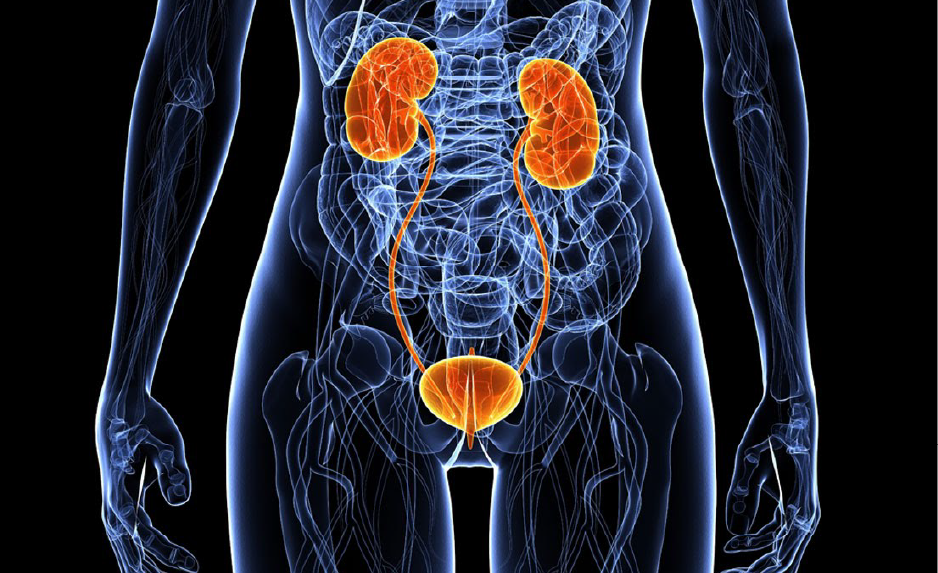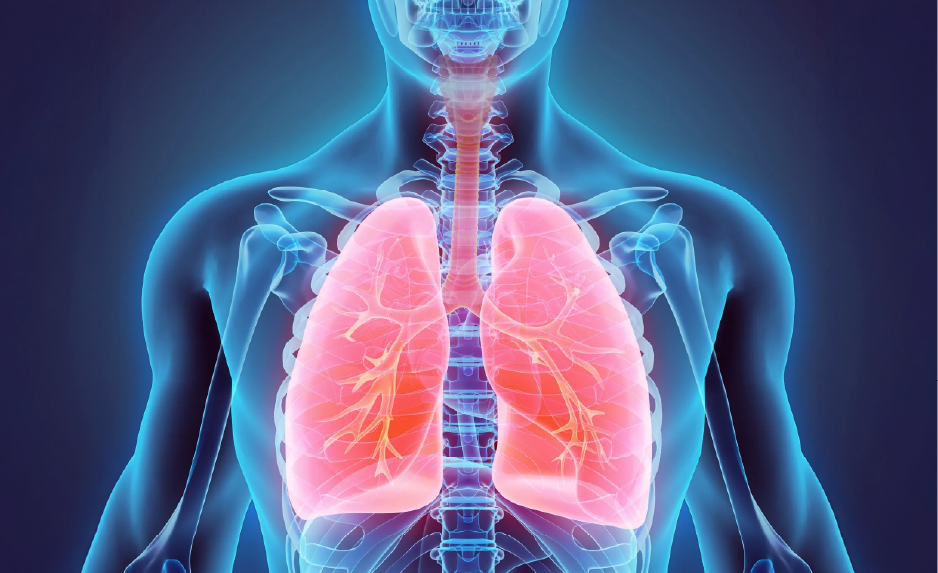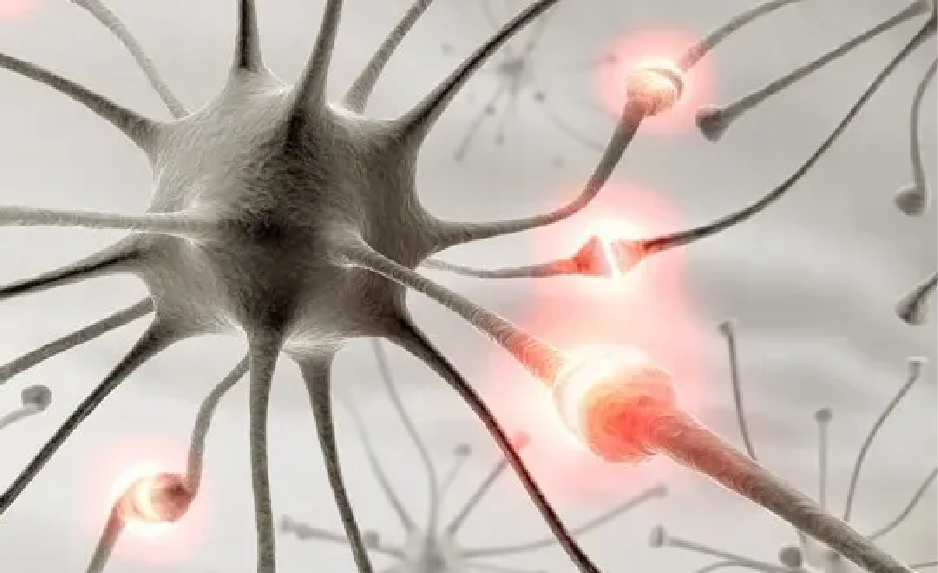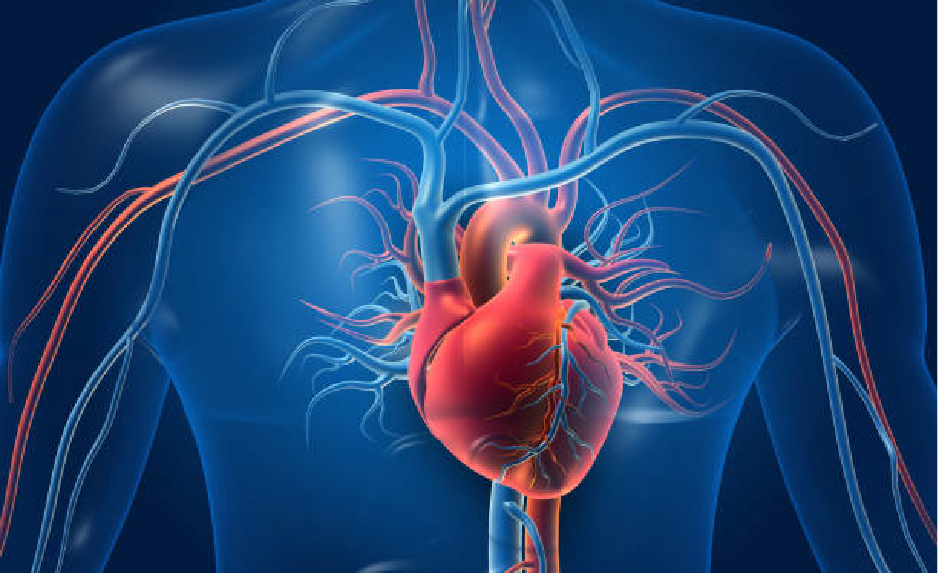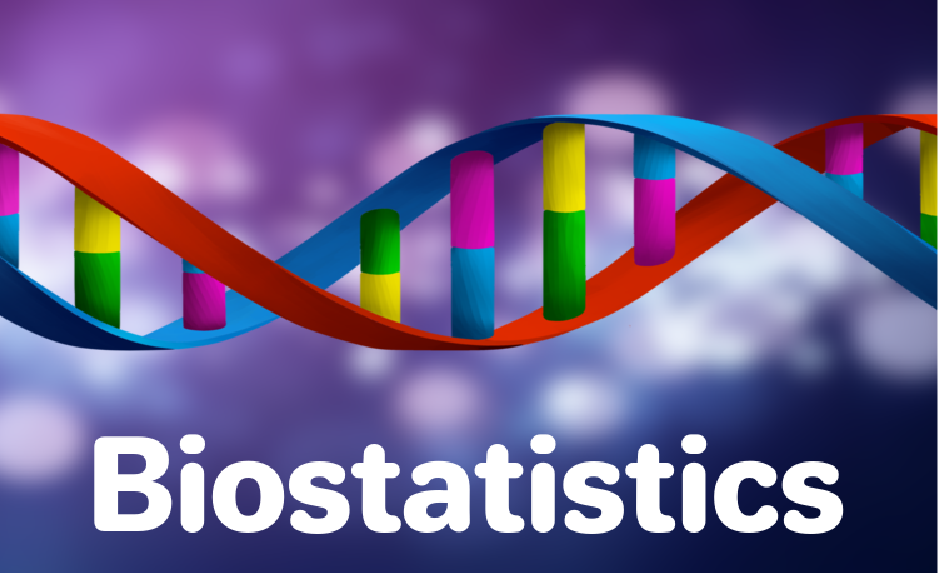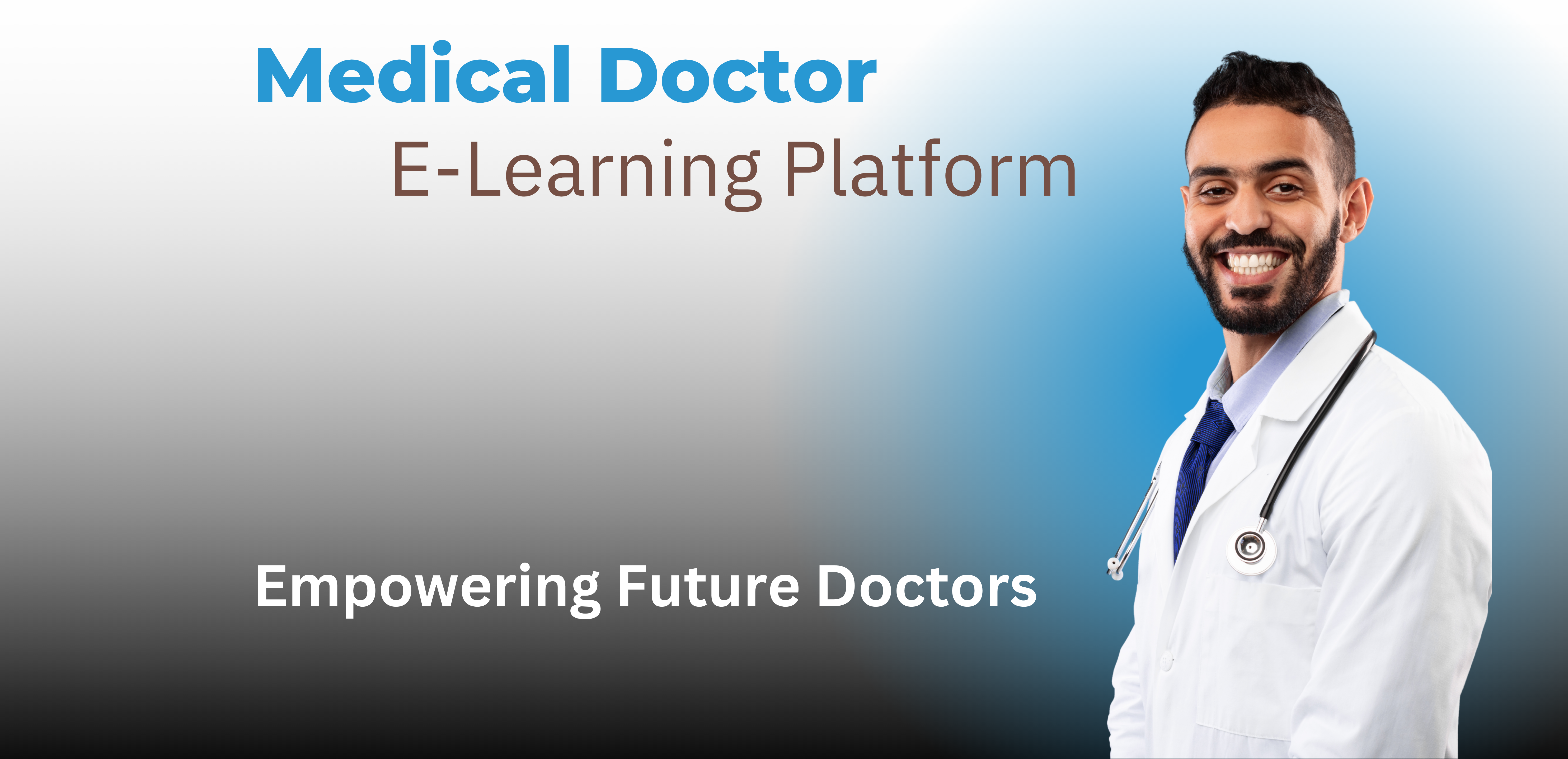Skip available courses
Available courses
Thinking Skills and Learning Styles (G3 - 2025)
Course modified date: 4 December 2025
Thinking Skills and Learning Styles
Course Code: M7014-2 • Program: MD (Doctor of Medicine)
Department: General Education College: Makkah National College Institution: Yosr Union Medical Company Version: 1.0 Last Revision Date: ————
A. General Information
Credit Hours
2 (2+0)
Level / Year
Pre‑med 1
Pre‑requisites
None
Co‑requisites
None
Course General Description:
This course introduces students to essential thinking skills and various learning styles. It aims to equip students with the skills to apply fundamental thinking skills in everyday life, achieve personal and academic goals, and enhance their creative and critical thinking abilities. The course also covers effective strategies for problem‑solving and decision‑making.
Teaching Mode
| Mode of Instruction | Contact Hours | Percentage |
|---|---|---|
| Traditional Classroom | 24 | 100% |
| E‑learning | 0 | 0% |
| Hybrid (Traditional + E‑learning) | 0 | 0% |
| Distance Learning | 0 | 0% |
Contact Hours (Semester)
| Activity | Hours |
|---|---|
| Lectures | 24 |
| Laboratory/Studio | 0 |
| Field | 0 |
| Tutorial | 0 |
| Others | 0 |
| Total | 24 |
B. Course Learning Outcomes (CLOs), Teaching Strategies & Assessment Methods
1. Knowledge and Understanding
1.1 Apply the basics of thinking in everyday life situations.
Lectures Discussions Individual work Group projects Assessments: Written tests, Quizzes, Presentations
2. Skills
2.1 Develop skills in creative, critical, and constructive thinking.
Lectures Discussions Individual work Group projects Assessments: Quizzes, Written tests, Practical assessments
2.2 Communication Skills: Enhance skills in constructive criticism and effective communication.
Practical sessions Individual exercises Group discussions Assessments: Written tests, Group discussions
3. Values, Autonomy, and Responsibility
3.1 Employ problem‑solving methods to address various challenges.
Practical sessions Group work Discussions Assessments: Oral presentations, Practical assessments
C. Course Content
| No | List of Topics | Contact Hours |
|---|---|---|
| 1 | Introduction to Learning | 4 |
| 2 | Learning Styles and Strategies | 4 |
| 3 | Skills of Recall and Retrieval | 2 |
| 4 | Thinking and Teaching | 2 |
| 5 | Basic Thinking Skills | 2 |
| 6 | Creative Thinking | 2 |
| 7 | Critical Thinking | 2 |
| 8 | Intuitive Thinking | 2 |
| 9 | Logical Thinking | 2 |
| 10 | Reasoning and Problem Solving | 2 |
| — | Total | 24 |
D. Students Assessment Activities
| No | Assessment Activity | Timing (Week) | % of Total |
|---|---|---|---|
| 1 | Class Participation | Ongoing | 10% |
| 2 | Mid‑term Exam | 8 | 30% |
| 3 | Final Exam | 16 | 60% |
*Assessment Activities include (e.g., written test, oral test, oral presentation, group project, essay, etc.).
E. Learning Resources and Facilities
References & Learning Resources
Essential References
Dr. Salim Gharaibeh (2014). Thinking Skills and Learning Styles. 2nd Edition, Dar Al Zahraa Library, Qassim.
King Abdulaziz University (2011). Learning and Thinking Skills. Faculty of Arts and Humanities.
Dr. Salim Gharaibeh (2014). Thinking Skills and Learning Styles. 2nd Edition, Dar Al Zahraa Library, Qassim.
King Abdulaziz University (2011). Learning and Thinking Skills. Faculty of Arts and Humanities.
Supportive References
Additional resources will be provided on Moodle.
Additional resources will be provided on Moodle.
Electronic Materials
Access to online resources and journals through the university library.
Access to online resources and journals through the university library.
Other Learning Materials
None.
None.
Required Facilities and Equipment
| Items | Resources |
|---|---|
| Facilities (Classrooms, laboratories, exhibition rooms, simulation rooms, etc.) | Classrooms, laboratories, exhibition rooms, simulation rooms |
| Technology equipment (projector, smart board, software) | Projector, smart board, software |
| Other equipment (depending on the nature of the specialty) | None |
F. Assessment of Course Quality
| Assessment Areas / Issues | Assessor | Assessment Methods |
|---|---|---|
| Effectiveness of teaching | Students | Surveys, feedback forms |
| Effectiveness of student assessment | Faculty | Exam results, peer review |
| Quality of learning resources | Program leaders | Resource utilization analysis |
| The extent to which CLOs have been achieved | Peer Reviewer | CLOs achievement analysis |
| Other | None | — |
Assessors may include: Students, Faculty, Program Leaders, Peer Reviewers, Others (specify). Methods may be Direct or Indirect.
G. Specification Approval
Council / Committee
Department Curriculum Comity
Reference No.
1.0
Date
———
- Teacher: Hajar Abdullah Hawsawi
- Enrolled students: 43
Introduction to Islamic culture (G4 - 2025)
Course modified date: 18 November 2025
|
أصول الثقافة الإسلامية
رمز المقرر: M7017-2 البرنامج: بكالوريوس طبيب دكتور القسم العلمي: التعليم العام الكلية: كلية مكة الأهلية المؤسسة: كلية مكة الأهلية نسخة التوصيف: 0.1
|
|||||
|
أ. معلومات عامة عن المقرر
الوصف العام للمقرر
يهدف المقرر إلى التعريف بأصول الثقافة الإسلامية وخصائصها وأصول الإيمان والعبادات الإسلامية، وأبرز مقاصد الشريعة، والتحديات الثقافية المعاصرة وكيفية التعامل معها.
نمط التعليم
| نمط التعليم | الساعات | النسبة |
|---|---|---|
| تعليم تقليدي | 30 | 100% |
| تعليم إلكتروني | 0 | 0% |
| تعليم مدمج | 0 | 0% |
| تعليم عن بُعد | 0 | 0% |
الساعات التدريسية (على مستوى الفصل)
| النشاط | ساعات التعلم |
|---|---|
| محاضرات | 30 |
| معمل / ستوديو | 0 |
| ميداني | 0 |
| دروس إضافية | 0 |
| أخرى | 0 |
| الإجمالي | 30 |
الهدف الرئيس للمقرر
تنمية أصول الثقافة الإسلامية لفهم الإسلام وعلومه لدى طلاب وطالبات كلية مكة الأهلية، والتعرّف إلى أهمية الثقافة عموماً والثقافة الإسلامية خصوصاً في بناء الشخصية والاعتزاز بالهوية.
ب. نواتج التعلم واستراتيجيات تدريسها وطرق تقييمها
| المجال والرمز | صياغة ناتج التعلم | استراتيجيات التدريس | طرق التقييم |
|---|---|---|---|
| 1. المعرفة والفهم
1.1
|
أن يعرف الطالب مفهوم أصول الثقافة الإسلامية وأهدافها والغاية من الوحدة الثقافية للأمة. | محاضرات وأنشطة صفية، عصف ذهني. | اختبار تقييمي، واجبات/تكليفات. |
| 1. المعرفة والفهم
1.2
|
أن يذكر الطالب قضايا الإيمان ونواقضه. | محاضرات، عصف ذهني. | اختبار تقييمي. |
| 2. المهارات
2.1
|
أن يصف أبرز مقاصد الشريعة الإسلامية. | مشاركات وتكليفات، عصف ذهني. | اختبارات قصيرة، تقارير/عروض. |
ج. موضوعات المقرر
- تعريف الثقافة – أهدافها – مناهجها — 2س
- نشأة علم الثقافة — 2س
- أصول الإيمان — 2س
- موقف الثقافة الإسلامية من الثقافات الأخرى — 2س
- أصول الاعتقاد — 2س
- الإيمان بالملائكة — 2س
- الإيمان باليوم الآخر — 2س
- الإيمان بالقدر — 2س
- أصول التشريع ومحاكماته — 2س
- السنة النبوية — 2س
- الأصول الفرعية: الإجماع – القياس — 2س
- الأصول الفراغية: الاجتهاد — 2س
- المعالم العلمية — 2س
- الاعتدال — 2س
- مراجعة عامة — 2س
- الإجمالي — 30 ساعة
د. أنشطة تقييم الطلبة
| نشاط التقييم | توقيت التقييم (الأسبوع) | النسبة من الدرجة |
|---|---|---|
| تقديم بحوث/تقارير/عروض | 3–13 | 5% |
| الاختبار التقييمي الأول | 7 | 45% |
| الاختبار التقييمي الثاني | 15 | 45% |
*قد تشمل أنشطة التقييم: اختبارات تحريرية/شفهية، عروض تقديمية، مشاريع جماعية، أوراق عمل، إلخ.
هـ. مصادر التعلم والمرافق
قائمة المراجع ومصادر التعلم
المرجع الرئيس
كتاب الثقافة الإسلامية (101) المعتمد من كلية مكة الأهلية.
المراجع المساندة
—
مصادر إلكترونية
لا يوجد
مواد تعلم أخرى
—
| العناصر | المتطلبات / الموارد |
|---|---|
| المرافق النوعية | قاعات دراسية. |
| التجهيزات التقنية | جهاز عرض البيانات، السبورة الذكية، البرمجيات. |
| تجهيزات أخرى | لا يوجد |
و. تقويم جودة المقرر
| مجال/قضية التقويم | المقيّمون | طرق التقويم |
|---|---|---|
| فاعلية التدريس | الطلاب | استبانات، نماذج تغذية راجعة |
| فاعلية طرق تقييم الطلاب | أعضاء هيئة التدريس | نتائج الاختبارات، المراجعة الزميلة |
| مصادر التعلم | قيادات البرنامج | تحليل الاستفادة من الموارد |
| مدى تحصيل مخرجات التعلم | المراجع النظير | تحليل تحقُّق نواتج التعلم |
| أخرى | — | — |
- Teacher: أبرار بنت محمد بن أحمد باجابر
- Enrolled students: 34
Thinking Skills and Learning Styles (G5 - 2025)
Course modified date: 3 December 2025
Thinking Skills and Learning Styles
Course Code: M7014-2 • Program: MD (Doctor of Medicine)
Department: General Education College: Makkah National College Institution: Yosr Union Medical Company Version: 1.0 Last Revision Date: ————
A. General Information
Credit Hours
2 (2+0)
Level / Year
Pre‑med 1
Pre‑requisites
None
Co‑requisites
None
Course General Description:
This course introduces students to essential thinking skills and various learning styles. It aims to equip students with the skills to apply fundamental thinking skills in everyday life, achieve personal and academic goals, and enhance their creative and critical thinking abilities. The course also covers effective strategies for problem‑solving and decision‑making.
Teaching Mode
| Mode of Instruction | Contact Hours | Percentage |
|---|---|---|
| Traditional Classroom | 24 | 100% |
| E‑learning | 0 | 0% |
| Hybrid (Traditional + E‑learning) | 0 | 0% |
| Distance Learning | 0 | 0% |
Contact Hours (Semester)
| Activity | Hours |
|---|---|
| Lectures | 24 |
| Laboratory/Studio | 0 |
| Field | 0 |
| Tutorial | 0 |
| Others | 0 |
| Total | 24 |
B. Course Learning Outcomes (CLOs), Teaching Strategies & Assessment Methods
1. Knowledge and Understanding
1.1 Apply the basics of thinking in everyday life situations.
Lectures Discussions Individual work Group projects Assessments: Written tests, Quizzes, Presentations
2. Skills
2.1 Develop skills in creative, critical, and constructive thinking.
Lectures Discussions Individual work Group projects Assessments: Quizzes, Written tests, Practical assessments
2.2 Communication Skills: Enhance skills in constructive criticism and effective communication.
Practical sessions Individual exercises Group discussions Assessments: Written tests, Group discussions
3. Values, Autonomy, and Responsibility
3.1 Employ problem‑solving methods to address various challenges.
Practical sessions Group work Discussions Assessments: Oral presentations, Practical assessments
C. Course Content
| No | List of Topics | Contact Hours |
|---|---|---|
| 1 | Introduction to Learning | 4 |
| 2 | Learning Styles and Strategies | 4 |
| 3 | Skills of Recall and Retrieval | 2 |
| 4 | Thinking and Teaching | 2 |
| 5 | Basic Thinking Skills | 2 |
| 6 | Creative Thinking | 2 |
| 7 | Critical Thinking | 2 |
| 8 | Intuitive Thinking | 2 |
| 9 | Logical Thinking | 2 |
| 10 | Reasoning and Problem Solving | 2 |
| — | Total | 24 |
D. Students Assessment Activities
| No | Assessment Activity | Timing (Week) | % of Total |
|---|---|---|---|
| 1 | Class Participation | Ongoing | 10% |
| 2 | Mid‑term Exam | 8 | 30% |
| 3 | Final Exam | 16 | 60% |
*Assessment Activities include (e.g., written test, oral test, oral presentation, group project, essay, etc.).
E. Learning Resources and Facilities
References & Learning Resources
Essential References
Dr. Salim Gharaibeh (2014). Thinking Skills and Learning Styles. 2nd Edition, Dar Al Zahraa Library, Qassim.
King Abdulaziz University (2011). Learning and Thinking Skills. Faculty of Arts and Humanities.
Dr. Salim Gharaibeh (2014). Thinking Skills and Learning Styles. 2nd Edition, Dar Al Zahraa Library, Qassim.
King Abdulaziz University (2011). Learning and Thinking Skills. Faculty of Arts and Humanities.
Supportive References
Additional resources will be provided on Moodle.
Additional resources will be provided on Moodle.
Electronic Materials
Access to online resources and journals through the university library.
Access to online resources and journals through the university library.
Other Learning Materials
None.
None.
Required Facilities and Equipment
| Items | Resources |
|---|---|
| Facilities (Classrooms, laboratories, exhibition rooms, simulation rooms, etc.) | Classrooms, laboratories, exhibition rooms, simulation rooms |
| Technology equipment (projector, smart board, software) | Projector, smart board, software |
| Other equipment (depending on the nature of the specialty) | None |
F. Assessment of Course Quality
| Assessment Areas / Issues | Assessor | Assessment Methods |
|---|---|---|
| Effectiveness of teaching | Students | Surveys, feedback forms |
| Effectiveness of student assessment | Faculty | Exam results, peer review |
| Quality of learning resources | Program leaders | Resource utilization analysis |
| The extent to which CLOs have been achieved | Peer Reviewer | CLOs achievement analysis |
| Other | None | — |
Assessors may include: Students, Faculty, Program Leaders, Peer Reviewers, Others (specify). Methods may be Direct or Indirect.
G. Specification Approval
Council / Committee
Department Curriculum Comity
Reference No.
1.0
Date
———
- Teacher: Hajar Abdullah Hawsawi
- Enrolled students: 45
Computer skills (G5 - 2025)
Course modified date: 19 November 2025
Computer Skills
Course Code: M7014-4 Program: Doctor of Medicine (MD) Department: — College: Makkah National College Institution: Makkah National College Spec Version: 0.1 Last Revision: 3 Aug 2025
| Credit Hours 4 CH (2 Theory + 2 Practical) | Course Type (A) University / College / Department / Track / Others | Course Type (B) Required | Level / Year Level 1 / Year 1 (Premed 1) | Pre / Co-reqs None / None |
A. General Information
Course General Description
This course prepares students for freshman science study in English by building essential IT concepts and practical competencies with personal computers and common applications. It covers core computer skills aligned with ICDL topics and develops critical thinking in computing.
Teaching Mode
| Mode of Instruction | Contact Hours | Percentage |
|---|---|---|
| Traditional classroom | 90 | 100% |
| E-learning | — | — |
| Hybrid (Traditional + E-learning) | — | — |
| Distance learning | — | — |
Contact Hours (Academic Semester)
| Activity | Contact Hours |
|---|---|
| Lectures | 30 |
| Laboratory / Studio | 60 |
| Field | — |
| Tutorial | — |
| Others | — |
| Total | 90 |
B. CLOs & Methods
| Domain & Code | CLO Statement | Teaching Strategies | Assessment Methods |
|---|---|---|---|
| 1. Knowledge & Understanding
1.1
|
Understand the fundamentals of computer hardware and software, and use common applications effectively. | Lectures, discussions, individual work, brainstorming, research, discovery. | Written tests, practical assessments, course assignments. |
| 2. Skills
2.1
|
Apply essential ICDL skills effectively in practical scenarios. | Lectures, discussions, individual work, group projects. | Written tests, practical assessments, course assignments. |
|
2.2 (Psychomotor)
|
Demonstrate proficiency using computer hardware and software tools. | Practical sessions, hands-on activities. | Practical assessments, demonstrations. |
| 3. Values, Autonomy & Responsibility
3.1
|
Communicate effectively and professionally with colleagues and faculty. | Lectures, group work, individual projects. | Written tests, group discussions, presentations. |
C. Course Content
- Hardware, Software, and Computer Performance — 6h
- Memory, I/O, and Network — 7h
- Internet, Windows 10, and Applications — 7h
- Files & Folders, Compression, Printing Issues — 7h
- Word 2016: Text & Paragraphs, Borders, Find — 7h
- Page Formatting, Tables & Graphics, Printing — 7h
- Excel: Rows/Columns, Auto Fill, Worksheets, Alignment & Number Formats — 7h
- Excel: Freeze Titles, Formulas, Functions, Charts, Printing — 7h
- PowerPoint: Presentations, Slides, Themes, Text Boxes — 7h
- PowerPoint: Graphics, Org Charts, Slide Show, Printing — 7h
- Database Concepts: Tables, Field Types, Properties — 7h
- Primary Keys, Filtering, Sorting, Relationships — 7h
- Forms, Queries, Reports — 7h
- Total — 90 hours
D. Students Assessment
| Assessment | Timing (Week) | % of Total |
|---|---|---|
| Continuous Assessment | — | 10% |
| Mid-Term Exam | 7 | 30% |
| Final Exam | 17 | 60% |
*Assessment activities may include written tests, oral tests, presentations, group projects, essays, etc.
E. Learning Resources & Facilities
References & Learning Resources
Essential Reference
Cheltenham Courseware for ECDL / ICDL (2016), Pty. Ltd.
Supportive References
Additional resources will be provided on Moodle.
Electronic Materials
Access to online resources and journals via the university library.
Other Learning Materials
None.
| Items | Resources |
|---|---|
| Facilities | Classrooms, laboratories, exhibition rooms, simulation rooms. |
| Technology equipment | Projector, smart board, software. |
| Other equipment | None. |
F. Assessment of Course Quality
| Assessment Area / Issue | Assessor | Methods |
|---|---|---|
| Effectiveness of teaching | Students | Surveys, feedback forms |
| Effectiveness of student assessment | Faculty | Exam results, peer review |
| Quality of learning resources | Program leaders | Resource utilization analysis |
| Extent of CLOs achievement | Peer Reviewer | CLOs achievement analysis |
Colors: #2898d3 (primary), #765045 (accent in section borders)
- Teacher: Nouf abdullah alabydy
- Enrolled students: 48
Physics for Life Sciences (G5 - 2025)
Course modified date: 5 December 2025
Physics for the Life Sciences
Course Code: M7013-2 Program: Doctor of Medicine (MD) Department: — College: Makkah National College Institution: Makkah National College Spec Version: 0.1
| Credit Hours 2 CH Theory (2 US / 4 ECTS) | Course Type (A) University / College / Department / Track / Others | Course Type (B) Required | Level / Year Level 1 / Year 1 (Premed 1) | Last Revision 3 Aug 2025 |
A. General Information
Course General Description
This course builds foundational physics knowledge with applications in the life and health sciences. Students learn scientific terms, fundamental units, and essential principles, and practice with physics apparatus and techniques commonly used to solve medical problems.
Teaching Mode
| Mode of Instruction | Contact Hours | Percentage |
|---|---|---|
| Traditional classroom | 30 | 100% |
| E-learning | — | — |
| Hybrid (Traditional + E-learning) | — | — |
| Distance learning | — | — |
Contact Hours (Academic Semester)
| Activity | Contact Hours |
|---|---|
| Lectures | 30 |
| Laboratory / Studio | — |
| Field | — |
| Tutorial | — |
| Others | — |
| Total | 30 |
B. CLOs & Methods
| Domain & Code | CLO Statement | Teaching Strategies | Assessment Methods |
|---|---|---|---|
| 1. Knowledge & Understanding
1.1
|
Understand and apply fundamental physics concepts in health sciences. | Lectures, discussions, individual work, group projects. | Written tests, quizzes, presentations. |
| 2. Skills
2.1 / 2.2
|
Analyze and interpret physical phenomena using equations, graphs and charts; define and use scientific terms and units in medical contexts. | Lectures, discussions, individual exercises, group work. | Quizzes, written tests, practical assessments; group discussions. |
| 3. Values, Autonomy & Responsibility
3.1
|
Demonstrate proficiency in using physics-related equipment and techniques for medical applications. | Practical sessions, group work, discussions. | Oral presentations, practical assessments. |
C. Course Content
- Kinematics: distance, displacement, speed, velocity — 3h
- Waves: SHM, frequency, wavelength, types, superposition — 3h
- Sound & Hearing: waves in media, resonance, Doppler effect — 3h
- Pressure: density, Pascal’s principle, measurements — 3h
- Fluid Dynamics (non-viscous): continuity, Bernoulli — 3h
- Fluid Dynamics (viscous): viscosity, Poiseuille — 3h
- Thermodynamics of the Body: 1st law, energy, metabolism — 3h
- Nature of Light: EM waves, refraction, dispersion — 3h
- Eyes & Vision: eye parts, myopia, hypermetropia, astigmatism — 3h
- Medical Imaging: X-ray, CT, PET, ultrasonography — 3h
- Total — 30 hours
D. Students Assessment
| Assessment | Timing (Week) | % of Total |
|---|---|---|
| Continuous Assessment | — | 10% |
| Mid-Term Exam | 7 | 30% |
| Final Exam | 17 | 60% |
*Assessment activities may include written tests, oral tests, presentations, group projects, essays, etc.
E. Learning Resources & Facilities
References & Learning Resources
Essential Reference
Halliday, D., Resnick, R., & Walker, J. (2013). Fundamentals of Physics (10th ed.). Wiley.
Supportive References
Additional resources will be provided on Moodle.
Electronic Materials
Access to online resources and journals via the university library.
Other Learning Materials
None.
| Items | Resources |
|---|---|
| Facilities | Classrooms, laboratories, exhibition rooms, simulation rooms. |
| Technology equipment | Projector, smart board, software. |
| Other equipment | None. |
F. Assessment of Course Quality
| Assessment Area / Issue | Assessor | Methods |
|---|---|---|
| Effectiveness of teaching | Students | Surveys, feedback forms |
| Effectiveness of student assessment | Faculty | Exam results, peer review |
| Quality of learning resources | Program leaders | Resource utilization analysis |
| Extent of CLOs achievement | Peer Reviewer | CLOs achievement analysis |
Colors: #2898d3 (primary), #765045 (accent in section borders)
- Teacher: Ramadan Ali Hassan Ali
- Enrolled students: 45
Computer skills (G3 - 2025)
Course modified date: 1 December 2025
Computer Skills
Course Code: M7014-4 Program: Doctor of Medicine (MD) Department: — College: Makkah National College Institution: Makkah National College Spec Version: 0.1 Last Revision: 3 Aug 2025
| Credit Hours 4 CH (2 Theory + 2 Practical) | Course Type (A) University / College / Department / Track / Others | Course Type (B) Required | Level / Year Level 1 / Year 1 (Premed 1) | Pre / Co-reqs None / None |
A. General Information
Course General Description
This course prepares students for freshman science study in English by building essential IT concepts and practical competencies with personal computers and common applications. It covers core computer skills aligned with ICDL topics and develops critical thinking in computing.
Teaching Mode
| Mode of Instruction | Contact Hours | Percentage |
|---|---|---|
| Traditional classroom | 90 | 100% |
| E-learning | — | — |
| Hybrid (Traditional + E-learning) | — | — |
| Distance learning | — | — |
Contact Hours (Academic Semester)
| Activity | Contact Hours |
|---|---|
| Lectures | 30 |
| Laboratory / Studio | 60 |
| Field | — |
| Tutorial | — |
| Others | — |
| Total | 90 |
B. CLOs & Methods
| Domain & Code | CLO Statement | Teaching Strategies | Assessment Methods |
|---|---|---|---|
| 1. Knowledge & Understanding
1.1
|
Understand the fundamentals of computer hardware and software, and use common applications effectively. | Lectures, discussions, individual work, brainstorming, research, discovery. | Written tests, practical assessments, course assignments. |
| 2. Skills
2.1
|
Apply essential ICDL skills effectively in practical scenarios. | Lectures, discussions, individual work, group projects. | Written tests, practical assessments, course assignments. |
|
2.2 (Psychomotor)
|
Demonstrate proficiency using computer hardware and software tools. | Practical sessions, hands-on activities. | Practical assessments, demonstrations. |
| 3. Values, Autonomy & Responsibility
3.1
|
Communicate effectively and professionally with colleagues and faculty. | Lectures, group work, individual projects. | Written tests, group discussions, presentations. |
C. Course Content
- Hardware, Software, and Computer Performance — 6h
- Memory, I/O, and Network — 7h
- Internet, Windows 10, and Applications — 7h
- Files & Folders, Compression, Printing Issues — 7h
- Word 2016: Text & Paragraphs, Borders, Find — 7h
- Page Formatting, Tables & Graphics, Printing — 7h
- Excel: Rows/Columns, Auto Fill, Worksheets, Alignment & Number Formats — 7h
- Excel: Freeze Titles, Formulas, Functions, Charts, Printing — 7h
- PowerPoint: Presentations, Slides, Themes, Text Boxes — 7h
- PowerPoint: Graphics, Org Charts, Slide Show, Printing — 7h
- Database Concepts: Tables, Field Types, Properties — 7h
- Primary Keys, Filtering, Sorting, Relationships — 7h
- Forms, Queries, Reports — 7h
- Total — 90 hours
D. Students Assessment
| Assessment | Timing (Week) | % of Total |
|---|---|---|
| Continuous Assessment | — | 10% |
| Mid-Term Exam | 7 | 30% |
| Final Exam | 17 | 60% |
*Assessment activities may include written tests, oral tests, presentations, group projects, essays, etc.
E. Learning Resources & Facilities
References & Learning Resources
Essential Reference
Cheltenham Courseware for ECDL / ICDL (2016), Pty. Ltd.
Supportive References
Additional resources will be provided on Moodle.
Electronic Materials
Access to online resources and journals via the university library.
Other Learning Materials
None.
| Items | Resources |
|---|---|
| Facilities | Classrooms, laboratories, exhibition rooms, simulation rooms. |
| Technology equipment | Projector, smart board, software. |
| Other equipment | None. |
F. Assessment of Course Quality
| Assessment Area / Issue | Assessor | Methods |
|---|---|---|
| Effectiveness of teaching | Students | Surveys, feedback forms |
| Effectiveness of student assessment | Faculty | Exam results, peer review |
| Quality of learning resources | Program leaders | Resource utilization analysis |
| Extent of CLOs achievement | Peer Reviewer | CLOs achievement analysis |
Colors: #2898d3 (primary), #765045 (accent in section borders)
- Teacher: Nouf abdullah alabydy
- Enrolled students: 47
Introduction to Islamic culture (G5 - 2025)
Course modified date: 18 November 2025
|
أصول الثقافة الإسلامية
رمز المقرر: M7017-2 البرنامج: بكالوريوس طبيب دكتور القسم العلمي: التعليم العام الكلية: كلية مكة الأهلية المؤسسة: كلية مكة الأهلية نسخة التوصيف: 0.1
|
|||||
|
أ. معلومات عامة عن المقرر
الوصف العام للمقرر
يهدف المقرر إلى التعريف بأصول الثقافة الإسلامية وخصائصها وأصول الإيمان والعبادات الإسلامية، وأبرز مقاصد الشريعة، والتحديات الثقافية المعاصرة وكيفية التعامل معها.
نمط التعليم
| نمط التعليم | الساعات | النسبة |
|---|---|---|
| تعليم تقليدي | 30 | 100% |
| تعليم إلكتروني | 0 | 0% |
| تعليم مدمج | 0 | 0% |
| تعليم عن بُعد | 0 | 0% |
الساعات التدريسية (على مستوى الفصل)
| النشاط | ساعات التعلم |
|---|---|
| محاضرات | 30 |
| معمل / ستوديو | 0 |
| ميداني | 0 |
| دروس إضافية | 0 |
| أخرى | 0 |
| الإجمالي | 30 |
الهدف الرئيس للمقرر
تنمية أصول الثقافة الإسلامية لفهم الإسلام وعلومه لدى طلاب وطالبات كلية مكة الأهلية، والتعرّف إلى أهمية الثقافة عموماً والثقافة الإسلامية خصوصاً في بناء الشخصية والاعتزاز بالهوية.
ب. نواتج التعلم واستراتيجيات تدريسها وطرق تقييمها
| المجال والرمز | صياغة ناتج التعلم | استراتيجيات التدريس | طرق التقييم |
|---|---|---|---|
| 1. المعرفة والفهم
1.1
|
أن يعرف الطالب مفهوم أصول الثقافة الإسلامية وأهدافها والغاية من الوحدة الثقافية للأمة. | محاضرات وأنشطة صفية، عصف ذهني. | اختبار تقييمي، واجبات/تكليفات. |
| 1. المعرفة والفهم
1.2
|
أن يذكر الطالب قضايا الإيمان ونواقضه. | محاضرات، عصف ذهني. | اختبار تقييمي. |
| 2. المهارات
2.1
|
أن يصف أبرز مقاصد الشريعة الإسلامية. | مشاركات وتكليفات، عصف ذهني. | اختبارات قصيرة، تقارير/عروض. |
ج. موضوعات المقرر
- تعريف الثقافة – أهدافها – مناهجها — 2س
- نشأة علم الثقافة — 2س
- أصول الإيمان — 2س
- موقف الثقافة الإسلامية من الثقافات الأخرى — 2س
- أصول الاعتقاد — 2س
- الإيمان بالملائكة — 2س
- الإيمان باليوم الآخر — 2س
- الإيمان بالقدر — 2س
- أصول التشريع ومحاكماته — 2س
- السنة النبوية — 2س
- الأصول الفرعية: الإجماع – القياس — 2س
- الأصول الفراغية: الاجتهاد — 2س
- المعالم العلمية — 2س
- الاعتدال — 2س
- مراجعة عامة — 2س
- الإجمالي — 30 ساعة
د. أنشطة تقييم الطلبة
| نشاط التقييم | توقيت التقييم (الأسبوع) | النسبة من الدرجة |
|---|---|---|
| تقديم بحوث/تقارير/عروض | 3–13 | 5% |
| الاختبار التقييمي الأول | 7 | 45% |
| الاختبار التقييمي الثاني | 15 | 45% |
*قد تشمل أنشطة التقييم: اختبارات تحريرية/شفهية، عروض تقديمية، مشاريع جماعية، أوراق عمل، إلخ.
هـ. مصادر التعلم والمرافق
قائمة المراجع ومصادر التعلم
المرجع الرئيس
كتاب الثقافة الإسلامية (101) المعتمد من كلية مكة الأهلية.
المراجع المساندة
—
مصادر إلكترونية
لا يوجد
مواد تعلم أخرى
—
| العناصر | المتطلبات / الموارد |
|---|---|
| المرافق النوعية | قاعات دراسية. |
| التجهيزات التقنية | جهاز عرض البيانات، السبورة الذكية، البرمجيات. |
| تجهيزات أخرى | لا يوجد |
و. تقويم جودة المقرر
| مجال/قضية التقويم | المقيّمون | طرق التقويم |
|---|---|---|
| فاعلية التدريس | الطلاب | استبانات، نماذج تغذية راجعة |
| فاعلية طرق تقييم الطلاب | أعضاء هيئة التدريس | نتائج الاختبارات، المراجعة الزميلة |
| مصادر التعلم | قيادات البرنامج | تحليل الاستفادة من الموارد |
| مدى تحصيل مخرجات التعلم | المراجع النظير | تحليل تحقُّق نواتج التعلم |
| أخرى | — | — |
- Teacher: أبرار بنت محمد بن أحمد باجابر
- Enrolled students: 44
Preparatory English 1 (G5 - 2025)
Course modified date: 4 December 2025
Preparatory English 1
Course Code: M7015-8 Program: Doctor of Medicine (MD) Department: — College: Makkah National College Institution: Makkah National College Spec Version: 0.1 Last Revision: 3 Aug 2025
| Credit Hours 8 CH (Theory) | Course Type (A) University / College / Department / Track / Others | Course Type (B) Required | Level / Year Level 1 / Year 1 (Premed 1) | Pre / Co-reqs None / None |
A. General Information
Course General Description
This course develops English language proficiency for preparatory year students across grammar, writing, reading, listening, and speaking, with emphasis on critical thinking, sentence structure, word agreement, and referencing for coherent academic writing and communication.
Teaching Mode
| Mode of Instruction | Contact Hours | Percentage |
|---|---|---|
| Traditional classroom | 120 | 100% |
| E-learning | — | — |
| Hybrid (Traditional + E-learning) | — | — |
| Distance learning | — | — |
Contact Hours (Academic Semester)
| Activity | Contact Hours |
|---|---|
| Lectures | 120 |
| Laboratory / Studio | — |
| Field | — |
| Tutorial | — |
| Others | — |
| Total | 120 |
B. CLOs & Methods
| Domain & Code | CLO Statement | Teaching Strategies | Assessment Methods |
|---|---|---|---|
| 1. Knowledge & Understanding
1.1
|
Develop effective writing skills with correct sentence structure, word agreement, and referencing. | Lectures, discussions, individual work, group projects. | Written tests, essays, presentations. |
| 2. Skills
2.1
|
Enhance reading comprehension through previewing, scanning, and critical analysis. | Lectures, discussions, individual work, group projects. | Quizzes, written tests, oral assessments. |
|
2.2 (Communication)
|
Demonstrate listening & speaking proficiency with clear pronunciation and intonation. | Practical sessions, role-plays, group discussions. | Listening tests, oral presentations. |
| 3. Values, Autonomy & Responsibility
3.1
|
Communicate effectively and professionally with colleagues and faculty. | Lectures, group work, individual projects. | Written tests, group discussions, presentations. |
C. Course Content
- Introduction to English Language Skills — 15h
- Grammar: Adjectives & Nouns, Noun Phrases — 15h
- Reading: Previewing & Scanning for Information — 15h
- Writing: Sentence Structure, Punctuation, Capitalization — 15h
- Listening: Using Visuals; Sentence Stress — 15h
- Speaking: Describing Photos; Q&A — 15h
- Grammar: S-V-O, Present Simple, Time Expressions — 15h
- Writing: 3rd Person Singular Spelling; Writing Facts — 15h
- Total — 120 hours
D. Students Assessment
| Assessment | Timing (Week) | % of Total |
|---|---|---|
| Continuous Assessment | — | 10% |
| Mid-Term Exam | 7 | 30% |
| Final Exam | 17 | 60% |
*Assessment activities may include written tests, oral tests, presentations, group projects, essays, etc.
E. Learning Resources & Facilities
References & Learning Resources
Essential References
Ostrowska, S. (2014). Unlock 1 Reading & Writing Skills. Cambridge University Press.
O’Neille, R. (2014). Unlock 2 Reading & Writing Skills. Cambridge University Press.
Supportive References
Additional resources will be provided on Moodle.
Electronic Materials
Access to online resources and journals via the university library.
Other Learning Materials
None.
| Items | Resources |
|---|---|
| Facilities | Classrooms, laboratories, exhibition rooms, simulation rooms. |
| Technology equipment | Projector, smart board, software. |
| Other equipment | None. |
F. Assessment of Course Quality
| Assessment Area / Issue | Assessor | Methods |
|---|---|---|
| Effectiveness of teaching | Students | Surveys, feedback forms |
| Effectiveness of student assessment | Faculty | Exam results, peer review |
| Quality of learning resources | Program leaders | Resource utilization analysis |
| Extent of CLOs achievement | Peer Reviewer | CLOs achievement analysis |
Colors: #2898d3 (primary), #765045 (accent in section borders)
- Teacher: Dr Mohamed Omar
- Enrolled students: 42
Preparatory English 1 (G4 - 2025)
Course modified date: 4 December 2025
Preparatory English 1
Course Code: M7015-8 Program: Doctor of Medicine (MD) Department: — College: Makkah National College Institution: Makkah National College Spec Version: 0.1 Last Revision: 3 Aug 2025
| Credit Hours 8 CH (Theory) | Course Type (A) University / College / Department / Track / Others | Course Type (B) Required | Level / Year Level 1 / Year 1 (Premed 1) | Pre / Co-reqs None / None |
A. General Information
Course General Description
This course develops English language proficiency for preparatory year students across grammar, writing, reading, listening, and speaking, with emphasis on critical thinking, sentence structure, word agreement, and referencing for coherent academic writing and communication.
Teaching Mode
| Mode of Instruction | Contact Hours | Percentage |
|---|---|---|
| Traditional classroom | 120 | 100% |
| E-learning | — | — |
| Hybrid (Traditional + E-learning) | — | — |
| Distance learning | — | — |
Contact Hours (Academic Semester)
| Activity | Contact Hours |
|---|---|
| Lectures | 120 |
| Laboratory / Studio | — |
| Field | — |
| Tutorial | — |
| Others | — |
| Total | 120 |
B. CLOs & Methods
| Domain & Code | CLO Statement | Teaching Strategies | Assessment Methods |
|---|---|---|---|
| 1. Knowledge & Understanding
1.1
|
Develop effective writing skills with correct sentence structure, word agreement, and referencing. | Lectures, discussions, individual work, group projects. | Written tests, essays, presentations. |
| 2. Skills
2.1
|
Enhance reading comprehension through previewing, scanning, and critical analysis. | Lectures, discussions, individual work, group projects. | Quizzes, written tests, oral assessments. |
|
2.2 (Communication)
|
Demonstrate listening & speaking proficiency with clear pronunciation and intonation. | Practical sessions, role-plays, group discussions. | Listening tests, oral presentations. |
| 3. Values, Autonomy & Responsibility
3.1
|
Communicate effectively and professionally with colleagues and faculty. | Lectures, group work, individual projects. | Written tests, group discussions, presentations. |
C. Course Content
- Introduction to English Language Skills — 15h
- Grammar: Adjectives & Nouns, Noun Phrases — 15h
- Reading: Previewing & Scanning for Information — 15h
- Writing: Sentence Structure, Punctuation, Capitalization — 15h
- Listening: Using Visuals; Sentence Stress — 15h
- Speaking: Describing Photos; Q&A — 15h
- Grammar: S-V-O, Present Simple, Time Expressions — 15h
- Writing: 3rd Person Singular Spelling; Writing Facts — 15h
- Total — 120 hours
D. Students Assessment
| Assessment | Timing (Week) | % of Total |
|---|---|---|
| Continuous Assessment | — | 10% |
| Mid-Term Exam | 7 | 30% |
| Final Exam | 17 | 60% |
*Assessment activities may include written tests, oral tests, presentations, group projects, essays, etc.
E. Learning Resources & Facilities
References & Learning Resources
Essential References
Ostrowska, S. (2014). Unlock 1 Reading & Writing Skills. Cambridge University Press.
O’Neille, R. (2014). Unlock 2 Reading & Writing Skills. Cambridge University Press.
Supportive References
Additional resources will be provided on Moodle.
Electronic Materials
Access to online resources and journals via the university library.
Other Learning Materials
None.
| Items | Resources |
|---|---|
| Facilities | Classrooms, laboratories, exhibition rooms, simulation rooms. |
| Technology equipment | Projector, smart board, software. |
| Other equipment | None. |
F. Assessment of Course Quality
| Assessment Area / Issue | Assessor | Methods |
|---|---|---|
| Effectiveness of teaching | Students | Surveys, feedback forms |
| Effectiveness of student assessment | Faculty | Exam results, peer review |
| Quality of learning resources | Program leaders | Resource utilization analysis |
| Extent of CLOs achievement | Peer Reviewer | CLOs achievement analysis |
Colors: #2898d3 (primary), #765045 (accent in section borders)
- Teacher: Dima Abduljabbar
- Enrolled students: 33
Arabic Expository Writing (G5 - 2025)
Course modified date: 4 December 2025
|
مهارات اللغة العربية
رمز المقرر: M7051-2 البرنامج: بكالوريوس طبيب دكتور القسم العلمي: — الكلية: كلية مكة الأهلية المؤسسة: كلية مكة الأهلية نسخة التوصيف: 1.0
|
|||||
|
أ. معلومات عامة عن المقرر
الوصف العام للمقرر
يهدف هذا المقرر إلى الإلمام بمهارات الكتابة في القرن الحادي والعشرين، واكتساب مهارات المستقبل المؤثرة في سوق العمل، والتعلم المبني على المهارة.
نمط التعليم
| نمط التعليم | الساعات | النسبة |
|---|---|---|
| تعليم تقليدي | 30 | 100% |
| تعليم إلكتروني | 0 | 0% |
| تعليم مدمج | 0 | 0% |
| تعليم عن بُعد | 0 | 0% |
الساعات التدريسية (فصل دراسي)
| النشاط | ساعات التعلم |
|---|---|
| محاضرات | 30 |
| معمل / ستوديو | 0 |
| ميداني | 0 |
| دروس إضافية | 0 |
| أخرى | 0 |
| الإجمالي | 30 |
الهدف الرئيس للمقرر
تنمية مهارات الكتابة العربية لدى الطلاب.
ب. نواتج التعلم واستراتيجيات تدريسها وطرق تقييمها
| المجال والرمز | نواتج التعلم | استراتيجيات التدريس | طرق التقييم |
|---|---|---|---|
| 1. المعرفة والفهم
1.1
|
أن يشرح الطالب نشأة الكتابة وأهميتها ومراحلها واستراتيجياتها وأنواعها. | محاضرة، أسئلة وأجوبة، أوراق عمل، عرض توضيحي، أنشطة قراءة مباشرة. | اختبارات قصيرة، أسئلة شفهية، اختبارات كتابية، مقابلات، استبانات، ملاحظة أداء. |
| 2. المهارات
2.1 / 2.2
|
إبراز الفروق بين الأساليب الكتابية المختلفة، وإجادة كتابة الفقرة الصحيحة بمعاييرها وأساليبها. | التعلم القائم على النشاط (مناظرات، مناقشات فريق، تدريب، مشاريع)، التعلم بالاكتشاف، التعلم الذاتي، الفصل المقلوب، حل المشكلات، التفكير الناقد. | اختبارات قصيرة وكتابية، بحوث فردية وجماعية، ملاحظات أداء، استبانات. |
| 3. القيم والاستقلالية والمسؤولية
3.1
|
التمثل بالنزاهة والأخلاقيات الأكاديمية والمواطنة والمسؤولية. | التعلم القائم على الاستقصاء وحل المشكلات والعمل الجماعي والتعلم الذاتي. | ملاحظة منظمة، تدريبات عملية، مقابلات، استبانات. |
ج. موضوعات المقرر
- مفهوم الكتابة – نشأتها – الكتابة ظاهرة عالمية – الكتابة التواصلية – الكتابة والمتلقي — 2س
- أسئلة ما قبل الكتابة – التخطيط – الاستعداد – العصف الذهني – هيكلة الأفكار — 2س
- مراحل الكتابة – أجزاء الفقرة – الوحدة الموضوعية والترابط — 2س
- أساليب الفقرة: الوصفي — 2س
- أساليب الفقرة: التعريفي — 2س
- أساليب الفقرة: التفسيري (الشارح) — 2س
- أساليب الفقرة: المقارن — 2س
- أساليب الفقرة: السببي — 2س
- أساليب الفقرة: السردي — 2س
- أساليب الفقرة: الإقناعي — 2س
- المراجعة الذاتية – المراجعة التعاونية — 2س
- مراجعة الإملاء – علامات الترقيم — 2س
- أدوات الربط – مراجعة النحو والصرف والتراكيب — 2س
- التعبيرات الاصطلاحية اللازمة للكاتب — 2س
- مراجعة عامة — 2س
- الإجمالي — 30 ساعة
د. أنشطة تقييم الطلبة
| نشاط التقييم | توقيت التقييم (الأسبوع) | النسبة من الدرجة |
|---|---|---|
| اختبار دوري أول | 8 | 25% |
| اختبار دوري ثان | الأسبوع الأخير | 25% |
| تطبيقات وتمارين الكتاب | 1–نهاية الفصل | 30% |
| تعليم تعاوني | 1–نهاية الفصل | 20% |
*قد تشمل أنشطة التقييم: اختبار تحريري / شفهي، عرض تقديمي، مشروع جماعي، ورقة عمل، وغيرها.
هـ. مصادر التعلم والمرافق
قائمة المراجع ومصادر التعلم
المرجع الرئيس
- الدليل إلى الكتابة العربية (الجزء الأول).
المراجع المساندة
- الترقيم وعلاماته في اللغة العربية – أحمد زكي.
- التحرير اللغوي الكتابي: ضوابط ومهارات وتطبيقات – أحمد عبد الكريم الخولي.
- قواعد الإملاء العربي بين النظرية والتطبيق – حسن شحاتة.
- أساسيات التحرير وفن الكتابة العربية – حسين المناصرة، عمر الأمين.
- المهارات القرائية والكتابية – راتب قاسم، عاشور المقدادي.
- معجم التعابير الاصطلاحية – محمد داود.
- المعجم السياقي للتعبيرات الاصطلاحية – محمود إسماعيل صيني وآخرون.
مصادر إلكترونية
—
مواد تعلم أخرى
—
| العناصر | المتطلبات / الموارد |
|---|---|
| المرافق النوعية | قاعات عرض ودروس مجهّزة بأجهزة عرض البيانات. |
| التجهيزات التقنية | جهاز عرض البيانات، السبورة الذكية، البرمجيات. |
| تجهيزات أخرى | لا يوجد |
و. تقويم جودة المقرر
| مجال/قضية التقويم | المقيّمون | طرق التقويم |
|---|---|---|
| فاعلية التدريس | الطلاب | استبانات، نماذج تغذية راجعة |
| فاعلية طرق تقييم الطلاب | هيئة التدريس | نتائج الاختبارات، مراجعة زميلية |
| جودة مصادر التعلم | قيادات البرنامج | تحليل الاستفادة من الموارد |
| مدى تحصيل نواتج التعلم | مراجع نظير | تحليل تحقُّق النواتج |
| أخرى | — | — |
- Teacher: Areej Mohammad Alamin karman
- Enrolled students: 45
Arabic Expository Writing (G4 - 2025)
Course modified date: 4 December 2025
|
مهارات اللغة العربية
رمز المقرر: M7051-2 البرنامج: بكالوريوس طبيب دكتور القسم العلمي: — الكلية: كلية مكة الأهلية المؤسسة: كلية مكة الأهلية نسخة التوصيف: 1.0
|
|||||
|
أ. معلومات عامة عن المقرر
الوصف العام للمقرر
يهدف هذا المقرر إلى الإلمام بمهارات الكتابة في القرن الحادي والعشرين، واكتساب مهارات المستقبل المؤثرة في سوق العمل، والتعلم المبني على المهارة.
نمط التعليم
| نمط التعليم | الساعات | النسبة |
|---|---|---|
| تعليم تقليدي | 30 | 100% |
| تعليم إلكتروني | 0 | 0% |
| تعليم مدمج | 0 | 0% |
| تعليم عن بُعد | 0 | 0% |
الساعات التدريسية (فصل دراسي)
| النشاط | ساعات التعلم |
|---|---|
| محاضرات | 30 |
| معمل / ستوديو | 0 |
| ميداني | 0 |
| دروس إضافية | 0 |
| أخرى | 0 |
| الإجمالي | 30 |
الهدف الرئيس للمقرر
تنمية مهارات الكتابة العربية لدى الطلاب.
ب. نواتج التعلم واستراتيجيات تدريسها وطرق تقييمها
| المجال والرمز | نواتج التعلم | استراتيجيات التدريس | طرق التقييم |
|---|---|---|---|
| 1. المعرفة والفهم
1.1
|
أن يشرح الطالب نشأة الكتابة وأهميتها ومراحلها واستراتيجياتها وأنواعها. | محاضرة، أسئلة وأجوبة، أوراق عمل، عرض توضيحي، أنشطة قراءة مباشرة. | اختبارات قصيرة، أسئلة شفهية، اختبارات كتابية، مقابلات، استبانات، ملاحظة أداء. |
| 2. المهارات
2.1 / 2.2
|
إبراز الفروق بين الأساليب الكتابية المختلفة، وإجادة كتابة الفقرة الصحيحة بمعاييرها وأساليبها. | التعلم القائم على النشاط (مناظرات، مناقشات فريق، تدريب، مشاريع)، التعلم بالاكتشاف، التعلم الذاتي، الفصل المقلوب، حل المشكلات، التفكير الناقد. | اختبارات قصيرة وكتابية، بحوث فردية وجماعية، ملاحظات أداء، استبانات. |
| 3. القيم والاستقلالية والمسؤولية
3.1
|
التمثل بالنزاهة والأخلاقيات الأكاديمية والمواطنة والمسؤولية. | التعلم القائم على الاستقصاء وحل المشكلات والعمل الجماعي والتعلم الذاتي. | ملاحظة منظمة، تدريبات عملية، مقابلات، استبانات. |
ج. موضوعات المقرر
- مفهوم الكتابة – نشأتها – الكتابة ظاهرة عالمية – الكتابة التواصلية – الكتابة والمتلقي — 2س
- أسئلة ما قبل الكتابة – التخطيط – الاستعداد – العصف الذهني – هيكلة الأفكار — 2س
- مراحل الكتابة – أجزاء الفقرة – الوحدة الموضوعية والترابط — 2س
- أساليب الفقرة: الوصفي — 2س
- أساليب الفقرة: التعريفي — 2س
- أساليب الفقرة: التفسيري (الشارح) — 2س
- أساليب الفقرة: المقارن — 2س
- أساليب الفقرة: السببي — 2س
- أساليب الفقرة: السردي — 2س
- أساليب الفقرة: الإقناعي — 2س
- المراجعة الذاتية – المراجعة التعاونية — 2س
- مراجعة الإملاء – علامات الترقيم — 2س
- أدوات الربط – مراجعة النحو والصرف والتراكيب — 2س
- التعبيرات الاصطلاحية اللازمة للكاتب — 2س
- مراجعة عامة — 2س
- الإجمالي — 30 ساعة
د. أنشطة تقييم الطلبة
| نشاط التقييم | توقيت التقييم (الأسبوع) | النسبة من الدرجة |
|---|---|---|
| اختبار دوري أول | 8 | 25% |
| اختبار دوري ثان | الأسبوع الأخير | 25% |
| تطبيقات وتمارين الكتاب | 1–نهاية الفصل | 30% |
| تعليم تعاوني | 1–نهاية الفصل | 20% |
*قد تشمل أنشطة التقييم: اختبار تحريري / شفهي، عرض تقديمي، مشروع جماعي، ورقة عمل، وغيرها.
هـ. مصادر التعلم والمرافق
قائمة المراجع ومصادر التعلم
المرجع الرئيس
- الدليل إلى الكتابة العربية (الجزء الأول).
المراجع المساندة
- الترقيم وعلاماته في اللغة العربية – أحمد زكي.
- التحرير اللغوي الكتابي: ضوابط ومهارات وتطبيقات – أحمد عبد الكريم الخولي.
- قواعد الإملاء العربي بين النظرية والتطبيق – حسن شحاتة.
- أساسيات التحرير وفن الكتابة العربية – حسين المناصرة، عمر الأمين.
- المهارات القرائية والكتابية – راتب قاسم، عاشور المقدادي.
- معجم التعابير الاصطلاحية – محمد داود.
- المعجم السياقي للتعبيرات الاصطلاحية – محمود إسماعيل صيني وآخرون.
مصادر إلكترونية
—
مواد تعلم أخرى
—
| العناصر | المتطلبات / الموارد |
|---|---|
| المرافق النوعية | قاعات عرض ودروس مجهّزة بأجهزة عرض البيانات. |
| التجهيزات التقنية | جهاز عرض البيانات، السبورة الذكية، البرمجيات. |
| تجهيزات أخرى | لا يوجد |
و. تقويم جودة المقرر
| مجال/قضية التقويم | المقيّمون | طرق التقويم |
|---|---|---|
| فاعلية التدريس | الطلاب | استبانات، نماذج تغذية راجعة |
| فاعلية طرق تقييم الطلاب | هيئة التدريس | نتائج الاختبارات، مراجعة زميلية |
| جودة مصادر التعلم | قيادات البرنامج | تحليل الاستفادة من الموارد |
| مدى تحصيل نواتج التعلم | مراجع نظير | تحليل تحقُّق النواتج |
| أخرى | — | — |
- Teacher: Areej Mohammad Alamin karman
- Enrolled students: 36
Physics for Life Sciences (G4 - 2025)
Course modified date: 5 December 2025
Physics for the Life Sciences
Course Code: M7013-2 Program: Doctor of Medicine (MD) Department: — College: Makkah National College Institution: Makkah National College Spec Version: 0.1
| Credit Hours 2 CH Theory (2 US / 4 ECTS) | Course Type (A) University / College / Department / Track / Others | Course Type (B) Required | Level / Year Level 1 / Year 1 (Premed 1) | Last Revision 3 Aug 2025 |
A. General Information
Course General Description
This course builds foundational physics knowledge with applications in the life and health sciences. Students learn scientific terms, fundamental units, and essential principles, and practice with physics apparatus and techniques commonly used to solve medical problems.
Teaching Mode
| Mode of Instruction | Contact Hours | Percentage |
|---|---|---|
| Traditional classroom | 30 | 100% |
| E-learning | — | — |
| Hybrid (Traditional + E-learning) | — | — |
| Distance learning | — | — |
Contact Hours (Academic Semester)
| Activity | Contact Hours |
|---|---|
| Lectures | 30 |
| Laboratory / Studio | — |
| Field | — |
| Tutorial | — |
| Others | — |
| Total | 30 |
B. CLOs & Methods
| Domain & Code | CLO Statement | Teaching Strategies | Assessment Methods |
|---|---|---|---|
| 1. Knowledge & Understanding
1.1
|
Understand and apply fundamental physics concepts in health sciences. | Lectures, discussions, individual work, group projects. | Written tests, quizzes, presentations. |
| 2. Skills
2.1 / 2.2
|
Analyze and interpret physical phenomena using equations, graphs and charts; define and use scientific terms and units in medical contexts. | Lectures, discussions, individual exercises, group work. | Quizzes, written tests, practical assessments; group discussions. |
| 3. Values, Autonomy & Responsibility
3.1
|
Demonstrate proficiency in using physics-related equipment and techniques for medical applications. | Practical sessions, group work, discussions. | Oral presentations, practical assessments. |
C. Course Content
- Kinematics: distance, displacement, speed, velocity — 3h
- Waves: SHM, frequency, wavelength, types, superposition — 3h
- Sound & Hearing: waves in media, resonance, Doppler effect — 3h
- Pressure: density, Pascal’s principle, measurements — 3h
- Fluid Dynamics (non-viscous): continuity, Bernoulli — 3h
- Fluid Dynamics (viscous): viscosity, Poiseuille — 3h
- Thermodynamics of the Body: 1st law, energy, metabolism — 3h
- Nature of Light: EM waves, refraction, dispersion — 3h
- Eyes & Vision: eye parts, myopia, hypermetropia, astigmatism — 3h
- Medical Imaging: X-ray, CT, PET, ultrasonography — 3h
- Total — 30 hours
D. Students Assessment
| Assessment | Timing (Week) | % of Total |
|---|---|---|
| Continuous Assessment | — | 10% |
| Mid-Term Exam | 7 | 30% |
| Final Exam | 17 | 60% |
*Assessment activities may include written tests, oral tests, presentations, group projects, essays, etc.
E. Learning Resources & Facilities
References & Learning Resources
Essential Reference
Halliday, D., Resnick, R., & Walker, J. (2013). Fundamentals of Physics (10th ed.). Wiley.
Supportive References
Additional resources will be provided on Moodle.
Electronic Materials
Access to online resources and journals via the university library.
Other Learning Materials
None.
| Items | Resources |
|---|---|
| Facilities | Classrooms, laboratories, exhibition rooms, simulation rooms. |
| Technology equipment | Projector, smart board, software. |
| Other equipment | None. |
F. Assessment of Course Quality
| Assessment Area / Issue | Assessor | Methods |
|---|---|---|
| Effectiveness of teaching | Students | Surveys, feedback forms |
| Effectiveness of student assessment | Faculty | Exam results, peer review |
| Quality of learning resources | Program leaders | Resource utilization analysis |
| Extent of CLOs achievement | Peer Reviewer | CLOs achievement analysis |
Colors: #2898d3 (primary), #765045 (accent in section borders)
- Teacher: Ramadan Ali Hassan Ali
- Enrolled students: 38
Computer skills (G4 - 2025)
Course modified date: 2 December 2025
Computer Skills
Course Code: M7014-4 Program: Doctor of Medicine (MD) Department: — College: Makkah National College Institution: Makkah National College Spec Version: 0.1 Last Revision: 3 Aug 2025
| Credit Hours 4 CH (2 Theory + 2 Practical) | Course Type (A) University / College / Department / Track / Others | Course Type (B) Required | Level / Year Level 1 / Year 1 (Premed 1) | Pre / Co-reqs None / None |
A. General Information
Course General Description
This course prepares students for freshman science study in English by building essential IT concepts and practical competencies with personal computers and common applications. It covers core computer skills aligned with ICDL topics and develops critical thinking in computing.
Teaching Mode
| Mode of Instruction | Contact Hours | Percentage |
|---|---|---|
| Traditional classroom | 90 | 100% |
| E-learning | — | — |
| Hybrid (Traditional + E-learning) | — | — |
| Distance learning | — | — |
Contact Hours (Academic Semester)
| Activity | Contact Hours |
|---|---|
| Lectures | 30 |
| Laboratory / Studio | 60 |
| Field | — |
| Tutorial | — |
| Others | — |
| Total | 90 |
B. CLOs & Methods
| Domain & Code | CLO Statement | Teaching Strategies | Assessment Methods |
|---|---|---|---|
| 1. Knowledge & Understanding
1.1
|
Understand the fundamentals of computer hardware and software, and use common applications effectively. | Lectures, discussions, individual work, brainstorming, research, discovery. | Written tests, practical assessments, course assignments. |
| 2. Skills
2.1
|
Apply essential ICDL skills effectively in practical scenarios. | Lectures, discussions, individual work, group projects. | Written tests, practical assessments, course assignments. |
|
2.2 (Psychomotor)
|
Demonstrate proficiency using computer hardware and software tools. | Practical sessions, hands-on activities. | Practical assessments, demonstrations. |
| 3. Values, Autonomy & Responsibility
3.1
|
Communicate effectively and professionally with colleagues and faculty. | Lectures, group work, individual projects. | Written tests, group discussions, presentations. |
C. Course Content
- Hardware, Software, and Computer Performance — 6h
- Memory, I/O, and Network — 7h
- Internet, Windows 10, and Applications — 7h
- Files & Folders, Compression, Printing Issues — 7h
- Word 2016: Text & Paragraphs, Borders, Find — 7h
- Page Formatting, Tables & Graphics, Printing — 7h
- Excel: Rows/Columns, Auto Fill, Worksheets, Alignment & Number Formats — 7h
- Excel: Freeze Titles, Formulas, Functions, Charts, Printing — 7h
- PowerPoint: Presentations, Slides, Themes, Text Boxes — 7h
- PowerPoint: Graphics, Org Charts, Slide Show, Printing — 7h
- Database Concepts: Tables, Field Types, Properties — 7h
- Primary Keys, Filtering, Sorting, Relationships — 7h
- Forms, Queries, Reports — 7h
- Total — 90 hours
D. Students Assessment
| Assessment | Timing (Week) | % of Total |
|---|---|---|
| Continuous Assessment | — | 10% |
| Mid-Term Exam | 7 | 30% |
| Final Exam | 17 | 60% |
*Assessment activities may include written tests, oral tests, presentations, group projects, essays, etc.
E. Learning Resources & Facilities
References & Learning Resources
Essential Reference
Cheltenham Courseware for ECDL / ICDL (2016), Pty. Ltd.
Supportive References
Additional resources will be provided on Moodle.
Electronic Materials
Access to online resources and journals via the university library.
Other Learning Materials
None.
| Items | Resources |
|---|---|
| Facilities | Classrooms, laboratories, exhibition rooms, simulation rooms. |
| Technology equipment | Projector, smart board, software. |
| Other equipment | None. |
F. Assessment of Course Quality
| Assessment Area / Issue | Assessor | Methods |
|---|---|---|
| Effectiveness of teaching | Students | Surveys, feedback forms |
| Effectiveness of student assessment | Faculty | Exam results, peer review |
| Quality of learning resources | Program leaders | Resource utilization analysis |
| Extent of CLOs achievement | Peer Reviewer | CLOs achievement analysis |
Colors: #2898d3 (primary), #765045 (accent in section borders)
- Teacher: Nouf abdullah alabydy
- Enrolled students: 39
Thinking Skills and Learning Styles (G4 - 2025)
Course modified date: 3 December 2025
Thinking Skills and Learning Styles
Course Code: M7014-2 • Program: MD (Doctor of Medicine)
Department: General Education College: Makkah National College Institution: Yosr Union Medical Company Version: 1.0 Last Revision Date: ————
A. General Information
Credit Hours
2 (2+0)
Level / Year
Pre‑med 1
Pre‑requisites
None
Co‑requisites
None
Course General Description:
This course introduces students to essential thinking skills and various learning styles. It aims to equip students with the skills to apply fundamental thinking skills in everyday life, achieve personal and academic goals, and enhance their creative and critical thinking abilities. The course also covers effective strategies for problem‑solving and decision‑making.
Teaching Mode
| Mode of Instruction | Contact Hours | Percentage |
|---|---|---|
| Traditional Classroom | 24 | 100% |
| E‑learning | 0 | 0% |
| Hybrid (Traditional + E‑learning) | 0 | 0% |
| Distance Learning | 0 | 0% |
Contact Hours (Semester)
| Activity | Hours |
|---|---|
| Lectures | 24 |
| Laboratory/Studio | 0 |
| Field | 0 |
| Tutorial | 0 |
| Others | 0 |
| Total | 24 |
B. Course Learning Outcomes (CLOs), Teaching Strategies & Assessment Methods
1. Knowledge and Understanding
1.1 Apply the basics of thinking in everyday life situations.
Lectures Discussions Individual work Group projects Assessments: Written tests, Quizzes, Presentations
2. Skills
2.1 Develop skills in creative, critical, and constructive thinking.
Lectures Discussions Individual work Group projects Assessments: Quizzes, Written tests, Practical assessments
2.2 Communication Skills: Enhance skills in constructive criticism and effective communication.
Practical sessions Individual exercises Group discussions Assessments: Written tests, Group discussions
3. Values, Autonomy, and Responsibility
3.1 Employ problem‑solving methods to address various challenges.
Practical sessions Group work Discussions Assessments: Oral presentations, Practical assessments
C. Course Content
| No | List of Topics | Contact Hours |
|---|---|---|
| 1 | Introduction to Learning | 4 |
| 2 | Learning Styles and Strategies | 4 |
| 3 | Skills of Recall and Retrieval | 2 |
| 4 | Thinking and Teaching | 2 |
| 5 | Basic Thinking Skills | 2 |
| 6 | Creative Thinking | 2 |
| 7 | Critical Thinking | 2 |
| 8 | Intuitive Thinking | 2 |
| 9 | Logical Thinking | 2 |
| 10 | Reasoning and Problem Solving | 2 |
| — | Total | 24 |
D. Students Assessment Activities
| No | Assessment Activity | Timing (Week) | % of Total |
|---|---|---|---|
| 1 | Class Participation | Ongoing | 10% |
| 2 | Mid‑term Exam | 8 | 30% |
| 3 | Final Exam | 16 | 60% |
*Assessment Activities include (e.g., written test, oral test, oral presentation, group project, essay, etc.).
E. Learning Resources and Facilities
References & Learning Resources
Essential References
Dr. Salim Gharaibeh (2014). Thinking Skills and Learning Styles. 2nd Edition, Dar Al Zahraa Library, Qassim.
King Abdulaziz University (2011). Learning and Thinking Skills. Faculty of Arts and Humanities.
Dr. Salim Gharaibeh (2014). Thinking Skills and Learning Styles. 2nd Edition, Dar Al Zahraa Library, Qassim.
King Abdulaziz University (2011). Learning and Thinking Skills. Faculty of Arts and Humanities.
Supportive References
Additional resources will be provided on Moodle.
Additional resources will be provided on Moodle.
Electronic Materials
Access to online resources and journals through the university library.
Access to online resources and journals through the university library.
Other Learning Materials
None.
None.
Required Facilities and Equipment
| Items | Resources |
|---|---|
| Facilities (Classrooms, laboratories, exhibition rooms, simulation rooms, etc.) | Classrooms, laboratories, exhibition rooms, simulation rooms |
| Technology equipment (projector, smart board, software) | Projector, smart board, software |
| Other equipment (depending on the nature of the specialty) | None |
F. Assessment of Course Quality
| Assessment Areas / Issues | Assessor | Assessment Methods |
|---|---|---|
| Effectiveness of teaching | Students | Surveys, feedback forms |
| Effectiveness of student assessment | Faculty | Exam results, peer review |
| Quality of learning resources | Program leaders | Resource utilization analysis |
| The extent to which CLOs have been achieved | Peer Reviewer | CLOs achievement analysis |
| Other | None | — |
Assessors may include: Students, Faculty, Program Leaders, Peer Reviewers, Others (specify). Methods may be Direct or Indirect.
G. Specification Approval
Council / Committee
Department Curriculum Comity
Reference No.
1.0
Date
———
- Teacher: Hajar Abdullah Hawsawi
- Enrolled students: 36
Introduction to Islamic culture (G3 - 2025)
Course modified date: 18 November 2025
|
أصول الثقافة الإسلامية
رمز المقرر: M7017-2 البرنامج: بكالوريوس طبيب دكتور القسم العلمي: التعليم العام الكلية: كلية مكة الأهلية المؤسسة: كلية مكة الأهلية نسخة التوصيف: 0.1
|
|||||
|
أ. معلومات عامة عن المقرر
الوصف العام للمقرر
يهدف المقرر إلى التعريف بأصول الثقافة الإسلامية وخصائصها وأصول الإيمان والعبادات الإسلامية، وأبرز مقاصد الشريعة، والتحديات الثقافية المعاصرة وكيفية التعامل معها.
نمط التعليم
| نمط التعليم | الساعات | النسبة |
|---|---|---|
| تعليم تقليدي | 30 | 100% |
| تعليم إلكتروني | 0 | 0% |
| تعليم مدمج | 0 | 0% |
| تعليم عن بُعد | 0 | 0% |
الساعات التدريسية (على مستوى الفصل)
| النشاط | ساعات التعلم |
|---|---|
| محاضرات | 30 |
| معمل / ستوديو | 0 |
| ميداني | 0 |
| دروس إضافية | 0 |
| أخرى | 0 |
| الإجمالي | 30 |
الهدف الرئيس للمقرر
تنمية أصول الثقافة الإسلامية لفهم الإسلام وعلومه لدى طلاب وطالبات كلية مكة الأهلية، والتعرّف إلى أهمية الثقافة عموماً والثقافة الإسلامية خصوصاً في بناء الشخصية والاعتزاز بالهوية.
ب. نواتج التعلم واستراتيجيات تدريسها وطرق تقييمها
| المجال والرمز | صياغة ناتج التعلم | استراتيجيات التدريس | طرق التقييم |
|---|---|---|---|
| 1. المعرفة والفهم
1.1
|
أن يعرف الطالب مفهوم أصول الثقافة الإسلامية وأهدافها والغاية من الوحدة الثقافية للأمة. | محاضرات وأنشطة صفية، عصف ذهني. | اختبار تقييمي، واجبات/تكليفات. |
| 1. المعرفة والفهم
1.2
|
أن يذكر الطالب قضايا الإيمان ونواقضه. | محاضرات، عصف ذهني. | اختبار تقييمي. |
| 2. المهارات
2.1
|
أن يصف أبرز مقاصد الشريعة الإسلامية. | مشاركات وتكليفات، عصف ذهني. | اختبارات قصيرة، تقارير/عروض. |
ج. موضوعات المقرر
- تعريف الثقافة – أهدافها – مناهجها — 2س
- نشأة علم الثقافة — 2س
- أصول الإيمان — 2س
- موقف الثقافة الإسلامية من الثقافات الأخرى — 2س
- أصول الاعتقاد — 2س
- الإيمان بالملائكة — 2س
- الإيمان باليوم الآخر — 2س
- الإيمان بالقدر — 2س
- أصول التشريع ومحاكماته — 2س
- السنة النبوية — 2س
- الأصول الفرعية: الإجماع – القياس — 2س
- الأصول الفراغية: الاجتهاد — 2س
- المعالم العلمية — 2س
- الاعتدال — 2س
- مراجعة عامة — 2س
- الإجمالي — 30 ساعة
د. أنشطة تقييم الطلبة
| نشاط التقييم | توقيت التقييم (الأسبوع) | النسبة من الدرجة |
|---|---|---|
| تقديم بحوث/تقارير/عروض | 3–13 | 5% |
| الاختبار التقييمي الأول | 7 | 45% |
| الاختبار التقييمي الثاني | 15 | 45% |
*قد تشمل أنشطة التقييم: اختبارات تحريرية/شفهية، عروض تقديمية، مشاريع جماعية، أوراق عمل، إلخ.
هـ. مصادر التعلم والمرافق
قائمة المراجع ومصادر التعلم
المرجع الرئيس
كتاب الثقافة الإسلامية (101) المعتمد من كلية مكة الأهلية.
المراجع المساندة
—
مصادر إلكترونية
لا يوجد
مواد تعلم أخرى
—
| العناصر | المتطلبات / الموارد |
|---|---|
| المرافق النوعية | قاعات دراسية. |
| التجهيزات التقنية | جهاز عرض البيانات، السبورة الذكية، البرمجيات. |
| تجهيزات أخرى | لا يوجد |
و. تقويم جودة المقرر
| مجال/قضية التقويم | المقيّمون | طرق التقويم |
|---|---|---|
| فاعلية التدريس | الطلاب | استبانات، نماذج تغذية راجعة |
| فاعلية طرق تقييم الطلاب | أعضاء هيئة التدريس | نتائج الاختبارات، المراجعة الزميلة |
| مصادر التعلم | قيادات البرنامج | تحليل الاستفادة من الموارد |
| مدى تحصيل مخرجات التعلم | المراجع النظير | تحليل تحقُّق نواتج التعلم |
| أخرى | — | — |
- Teacher: أبرار بنت محمد بن أحمد باجابر
- Enrolled students: 42
Preparatory English 1 (G3 - 2025)
Course modified date: 4 December 2025
Preparatory English 1
Course Code: M7015-8 Program: Doctor of Medicine (MD) Department: — College: Makkah National College Institution: Makkah National College Spec Version: 0.1 Last Revision: 3 Aug 2025
| Credit Hours 8 CH (Theory) | Course Type (A) University / College / Department / Track / Others | Course Type (B) Required | Level / Year Level 1 / Year 1 (Premed 1) | Pre / Co-reqs None / None |
A. General Information
Course General Description
This course develops English language proficiency for preparatory year students across grammar, writing, reading, listening, and speaking, with emphasis on critical thinking, sentence structure, word agreement, and referencing for coherent academic writing and communication.
Teaching Mode
| Mode of Instruction | Contact Hours | Percentage |
|---|---|---|
| Traditional classroom | 120 | 100% |
| E-learning | — | — |
| Hybrid (Traditional + E-learning) | — | — |
| Distance learning | — | — |
Contact Hours (Academic Semester)
| Activity | Contact Hours |
|---|---|
| Lectures | 120 |
| Laboratory / Studio | — |
| Field | — |
| Tutorial | — |
| Others | — |
| Total | 120 |
B. CLOs & Methods
| Domain & Code | CLO Statement | Teaching Strategies | Assessment Methods |
|---|---|---|---|
| 1. Knowledge & Understanding
1.1
|
Develop effective writing skills with correct sentence structure, word agreement, and referencing. | Lectures, discussions, individual work, group projects. | Written tests, essays, presentations. |
| 2. Skills
2.1
|
Enhance reading comprehension through previewing, scanning, and critical analysis. | Lectures, discussions, individual work, group projects. | Quizzes, written tests, oral assessments. |
|
2.2 (Communication)
|
Demonstrate listening & speaking proficiency with clear pronunciation and intonation. | Practical sessions, role-plays, group discussions. | Listening tests, oral presentations. |
| 3. Values, Autonomy & Responsibility
3.1
|
Communicate effectively and professionally with colleagues and faculty. | Lectures, group work, individual projects. | Written tests, group discussions, presentations. |
C. Course Content
- Introduction to English Language Skills — 15h
- Grammar: Adjectives & Nouns, Noun Phrases — 15h
- Reading: Previewing & Scanning for Information — 15h
- Writing: Sentence Structure, Punctuation, Capitalization — 15h
- Listening: Using Visuals; Sentence Stress — 15h
- Speaking: Describing Photos; Q&A — 15h
- Grammar: S-V-O, Present Simple, Time Expressions — 15h
- Writing: 3rd Person Singular Spelling; Writing Facts — 15h
- Total — 120 hours
D. Students Assessment
| Assessment | Timing (Week) | % of Total |
|---|---|---|
| Continuous Assessment | — | 10% |
| Mid-Term Exam | 7 | 30% |
| Final Exam | 17 | 60% |
*Assessment activities may include written tests, oral tests, presentations, group projects, essays, etc.
E. Learning Resources & Facilities
References & Learning Resources
Essential References
Ostrowska, S. (2014). Unlock 1 Reading & Writing Skills. Cambridge University Press.
O’Neille, R. (2014). Unlock 2 Reading & Writing Skills. Cambridge University Press.
Supportive References
Additional resources will be provided on Moodle.
Electronic Materials
Access to online resources and journals via the university library.
Other Learning Materials
None.
| Items | Resources |
|---|---|
| Facilities | Classrooms, laboratories, exhibition rooms, simulation rooms. |
| Technology equipment | Projector, smart board, software. |
| Other equipment | None. |
F. Assessment of Course Quality
| Assessment Area / Issue | Assessor | Methods |
|---|---|---|
| Effectiveness of teaching | Students | Surveys, feedback forms |
| Effectiveness of student assessment | Faculty | Exam results, peer review |
| Quality of learning resources | Program leaders | Resource utilization analysis |
| Extent of CLOs achievement | Peer Reviewer | CLOs achievement analysis |
Colors: #2898d3 (primary), #765045 (accent in section borders)
- Teacher: Dima Abduljabbar
- Enrolled students: 41
Arabic Expository Writing (G3 - 2025)
Course modified date: 4 December 2025
|
مهارات اللغة العربية
رمز المقرر: M7051-2 البرنامج: بكالوريوس طبيب دكتور القسم العلمي: — الكلية: كلية مكة الأهلية المؤسسة: كلية مكة الأهلية نسخة التوصيف: 1.0
|
|||||
|
أ. معلومات عامة عن المقرر
الوصف العام للمقرر
يهدف هذا المقرر إلى الإلمام بمهارات الكتابة في القرن الحادي والعشرين، واكتساب مهارات المستقبل المؤثرة في سوق العمل، والتعلم المبني على المهارة.
نمط التعليم
| نمط التعليم | الساعات | النسبة |
|---|---|---|
| تعليم تقليدي | 30 | 100% |
| تعليم إلكتروني | 0 | 0% |
| تعليم مدمج | 0 | 0% |
| تعليم عن بُعد | 0 | 0% |
الساعات التدريسية (فصل دراسي)
| النشاط | ساعات التعلم |
|---|---|
| محاضرات | 30 |
| معمل / ستوديو | 0 |
| ميداني | 0 |
| دروس إضافية | 0 |
| أخرى | 0 |
| الإجمالي | 30 |
الهدف الرئيس للمقرر
تنمية مهارات الكتابة العربية لدى الطلاب.
ب. نواتج التعلم واستراتيجيات تدريسها وطرق تقييمها
| المجال والرمز | نواتج التعلم | استراتيجيات التدريس | طرق التقييم |
|---|---|---|---|
| 1. المعرفة والفهم
1.1
|
أن يشرح الطالب نشأة الكتابة وأهميتها ومراحلها واستراتيجياتها وأنواعها. | محاضرة، أسئلة وأجوبة، أوراق عمل، عرض توضيحي، أنشطة قراءة مباشرة. | اختبارات قصيرة، أسئلة شفهية، اختبارات كتابية، مقابلات، استبانات، ملاحظة أداء. |
| 2. المهارات
2.1 / 2.2
|
إبراز الفروق بين الأساليب الكتابية المختلفة، وإجادة كتابة الفقرة الصحيحة بمعاييرها وأساليبها. | التعلم القائم على النشاط (مناظرات، مناقشات فريق، تدريب، مشاريع)، التعلم بالاكتشاف، التعلم الذاتي، الفصل المقلوب، حل المشكلات، التفكير الناقد. | اختبارات قصيرة وكتابية، بحوث فردية وجماعية، ملاحظات أداء، استبانات. |
| 3. القيم والاستقلالية والمسؤولية
3.1
|
التمثل بالنزاهة والأخلاقيات الأكاديمية والمواطنة والمسؤولية. | التعلم القائم على الاستقصاء وحل المشكلات والعمل الجماعي والتعلم الذاتي. | ملاحظة منظمة، تدريبات عملية، مقابلات، استبانات. |
ج. موضوعات المقرر
- مفهوم الكتابة – نشأتها – الكتابة ظاهرة عالمية – الكتابة التواصلية – الكتابة والمتلقي — 2س
- أسئلة ما قبل الكتابة – التخطيط – الاستعداد – العصف الذهني – هيكلة الأفكار — 2س
- مراحل الكتابة – أجزاء الفقرة – الوحدة الموضوعية والترابط — 2س
- أساليب الفقرة: الوصفي — 2س
- أساليب الفقرة: التعريفي — 2س
- أساليب الفقرة: التفسيري (الشارح) — 2س
- أساليب الفقرة: المقارن — 2س
- أساليب الفقرة: السببي — 2س
- أساليب الفقرة: السردي — 2س
- أساليب الفقرة: الإقناعي — 2س
- المراجعة الذاتية – المراجعة التعاونية — 2س
- مراجعة الإملاء – علامات الترقيم — 2س
- أدوات الربط – مراجعة النحو والصرف والتراكيب — 2س
- التعبيرات الاصطلاحية اللازمة للكاتب — 2س
- مراجعة عامة — 2س
- الإجمالي — 30 ساعة
د. أنشطة تقييم الطلبة
| نشاط التقييم | توقيت التقييم (الأسبوع) | النسبة من الدرجة |
|---|---|---|
| اختبار دوري أول | 8 | 25% |
| اختبار دوري ثان | الأسبوع الأخير | 25% |
| تطبيقات وتمارين الكتاب | 1–نهاية الفصل | 30% |
| تعليم تعاوني | 1–نهاية الفصل | 20% |
*قد تشمل أنشطة التقييم: اختبار تحريري / شفهي، عرض تقديمي، مشروع جماعي، ورقة عمل، وغيرها.
هـ. مصادر التعلم والمرافق
قائمة المراجع ومصادر التعلم
المرجع الرئيس
- الدليل إلى الكتابة العربية (الجزء الأول).
المراجع المساندة
- الترقيم وعلاماته في اللغة العربية – أحمد زكي.
- التحرير اللغوي الكتابي: ضوابط ومهارات وتطبيقات – أحمد عبد الكريم الخولي.
- قواعد الإملاء العربي بين النظرية والتطبيق – حسن شحاتة.
- أساسيات التحرير وفن الكتابة العربية – حسين المناصرة، عمر الأمين.
- المهارات القرائية والكتابية – راتب قاسم، عاشور المقدادي.
- معجم التعابير الاصطلاحية – محمد داود.
- المعجم السياقي للتعبيرات الاصطلاحية – محمود إسماعيل صيني وآخرون.
مصادر إلكترونية
—
مواد تعلم أخرى
—
| العناصر | المتطلبات / الموارد |
|---|---|
| المرافق النوعية | قاعات عرض ودروس مجهّزة بأجهزة عرض البيانات. |
| التجهيزات التقنية | جهاز عرض البيانات، السبورة الذكية، البرمجيات. |
| تجهيزات أخرى | لا يوجد |
و. تقويم جودة المقرر
| مجال/قضية التقويم | المقيّمون | طرق التقويم |
|---|---|---|
| فاعلية التدريس | الطلاب | استبانات، نماذج تغذية راجعة |
| فاعلية طرق تقييم الطلاب | هيئة التدريس | نتائج الاختبارات، مراجعة زميلية |
| جودة مصادر التعلم | قيادات البرنامج | تحليل الاستفادة من الموارد |
| مدى تحصيل نواتج التعلم | مراجع نظير | تحليل تحقُّق النواتج |
| أخرى | — | — |
- Teacher: Areej Mohammad Alamin karman
- Enrolled students: 43
Physics for Life Sciences (G3 - 2025)
Course modified date: 5 December 2025
Physics for the Life Sciences
Course Code: M7013-2 Program: Doctor of Medicine (MD) Department: — College: Makkah National College Institution: Makkah National College Spec Version: 0.1
| Credit Hours 2 CH Theory (2 US / 4 ECTS) | Course Type (A) University / College / Department / Track / Others | Course Type (B) Required | Level / Year Level 1 / Year 1 (Premed 1) | Last Revision 3 Aug 2025 |
A. General Information
Course General Description
This course builds foundational physics knowledge with applications in the life and health sciences. Students learn scientific terms, fundamental units, and essential principles, and practice with physics apparatus and techniques commonly used to solve medical problems.
Teaching Mode
| Mode of Instruction | Contact Hours | Percentage |
|---|---|---|
| Traditional classroom | 30 | 100% |
| E-learning | — | — |
| Hybrid (Traditional + E-learning) | — | — |
| Distance learning | — | — |
Contact Hours (Academic Semester)
| Activity | Contact Hours |
|---|---|
| Lectures | 30 |
| Laboratory / Studio | — |
| Field | — |
| Tutorial | — |
| Others | — |
| Total | 30 |
B. CLOs & Methods
| Domain & Code | CLO Statement | Teaching Strategies | Assessment Methods |
|---|---|---|---|
| 1. Knowledge & Understanding
1.1
|
Understand and apply fundamental physics concepts in health sciences. | Lectures, discussions, individual work, group projects. | Written tests, quizzes, presentations. |
| 2. Skills
2.1 / 2.2
|
Analyze and interpret physical phenomena using equations, graphs and charts; define and use scientific terms and units in medical contexts. | Lectures, discussions, individual exercises, group work. | Quizzes, written tests, practical assessments; group discussions. |
| 3. Values, Autonomy & Responsibility
3.1
|
Demonstrate proficiency in using physics-related equipment and techniques for medical applications. | Practical sessions, group work, discussions. | Oral presentations, practical assessments. |
C. Course Content
- Kinematics: distance, displacement, speed, velocity — 3h
- Waves: SHM, frequency, wavelength, types, superposition — 3h
- Sound & Hearing: waves in media, resonance, Doppler effect — 3h
- Pressure: density, Pascal’s principle, measurements — 3h
- Fluid Dynamics (non-viscous): continuity, Bernoulli — 3h
- Fluid Dynamics (viscous): viscosity, Poiseuille — 3h
- Thermodynamics of the Body: 1st law, energy, metabolism — 3h
- Nature of Light: EM waves, refraction, dispersion — 3h
- Eyes & Vision: eye parts, myopia, hypermetropia, astigmatism — 3h
- Medical Imaging: X-ray, CT, PET, ultrasonography — 3h
- Total — 30 hours
D. Students Assessment
| Assessment | Timing (Week) | % of Total |
|---|---|---|
| Continuous Assessment | — | 10% |
| Mid-Term Exam | 7 | 30% |
| Final Exam | 17 | 60% |
*Assessment activities may include written tests, oral tests, presentations, group projects, essays, etc.
E. Learning Resources & Facilities
References & Learning Resources
Essential Reference
Halliday, D., Resnick, R., & Walker, J. (2013). Fundamentals of Physics (10th ed.). Wiley.
Supportive References
Additional resources will be provided on Moodle.
Electronic Materials
Access to online resources and journals via the university library.
Other Learning Materials
None.
| Items | Resources |
|---|---|
| Facilities | Classrooms, laboratories, exhibition rooms, simulation rooms. |
| Technology equipment | Projector, smart board, software. |
| Other equipment | None. |
F. Assessment of Course Quality
| Assessment Area / Issue | Assessor | Methods |
|---|---|---|
| Effectiveness of teaching | Students | Surveys, feedback forms |
| Effectiveness of student assessment | Faculty | Exam results, peer review |
| Quality of learning resources | Program leaders | Resource utilization analysis |
| Extent of CLOs achievement | Peer Reviewer | CLOs achievement analysis |
Colors: #2898d3 (primary), #765045 (accent in section borders)
- Teacher: Ramadan Ali Hassan Ali
- Enrolled students: 44
Thinking Skills and Learning Styles
Course modified date: 4 September 2025
Thinking Skills and Learning Styles
Course Code: M7014-2 • Program: MD (Doctor of Medicine)
Department: General Education College: Makkah National College Institution: Yosr Union Medical Company Version: 1.0 Last Revision Date: ————
A. General Information
Credit Hours
2 (2+0)
Level / Year
Pre‑med 1
Pre‑requisites
None
Co‑requisites
None
Course General Description:
This course introduces students to essential thinking skills and various learning styles. It aims to equip students with the skills to apply fundamental thinking skills in everyday life, achieve personal and academic goals, and enhance their creative and critical thinking abilities. The course also covers effective strategies for problem‑solving and decision‑making.
Teaching Mode
| Mode of Instruction | Contact Hours | Percentage |
|---|---|---|
| Traditional Classroom | 24 | 100% |
| E‑learning | 0 | 0% |
| Hybrid (Traditional + E‑learning) | 0 | 0% |
| Distance Learning | 0 | 0% |
Contact Hours (Semester)
| Activity | Hours |
|---|---|
| Lectures | 24 |
| Laboratory/Studio | 0 |
| Field | 0 |
| Tutorial | 0 |
| Others | 0 |
| Total | 24 |
B. Course Learning Outcomes (CLOs), Teaching Strategies & Assessment Methods
1. Knowledge and Understanding
1.1 Apply the basics of thinking in everyday life situations.
Lectures Discussions Individual work Group projects Assessments: Written tests, Quizzes, Presentations
2. Skills
2.1 Develop skills in creative, critical, and constructive thinking.
Lectures Discussions Individual work Group projects Assessments: Quizzes, Written tests, Practical assessments
2.2 Communication Skills: Enhance skills in constructive criticism and effective communication.
Practical sessions Individual exercises Group discussions Assessments: Written tests, Group discussions
3. Values, Autonomy, and Responsibility
3.1 Employ problem‑solving methods to address various challenges.
Practical sessions Group work Discussions Assessments: Oral presentations, Practical assessments
C. Course Content
| No | List of Topics | Contact Hours |
|---|---|---|
| 1 | Introduction to Learning | 4 |
| 2 | Learning Styles and Strategies | 4 |
| 3 | Skills of Recall and Retrieval | 2 |
| 4 | Thinking and Teaching | 2 |
| 5 | Basic Thinking Skills | 2 |
| 6 | Creative Thinking | 2 |
| 7 | Critical Thinking | 2 |
| 8 | Intuitive Thinking | 2 |
| 9 | Logical Thinking | 2 |
| 10 | Reasoning and Problem Solving | 2 |
| — | Total | 24 |
D. Students Assessment Activities
| No | Assessment Activity | Timing (Week) | % of Total |
|---|---|---|---|
| 1 | Class Participation | Ongoing | 10% |
| 2 | Mid‑term Exam | 8 | 30% |
| 3 | Final Exam | 16 | 60% |
*Assessment Activities include (e.g., written test, oral test, oral presentation, group project, essay, etc.).
E. Learning Resources and Facilities
References & Learning Resources
Essential References
Dr. Salim Gharaibeh (2014). Thinking Skills and Learning Styles. 2nd Edition, Dar Al Zahraa Library, Qassim.
King Abdulaziz University (2011). Learning and Thinking Skills. Faculty of Arts and Humanities.
Dr. Salim Gharaibeh (2014). Thinking Skills and Learning Styles. 2nd Edition, Dar Al Zahraa Library, Qassim.
King Abdulaziz University (2011). Learning and Thinking Skills. Faculty of Arts and Humanities.
Supportive References
Additional resources will be provided on Moodle.
Additional resources will be provided on Moodle.
Electronic Materials
Access to online resources and journals through the university library.
Access to online resources and journals through the university library.
Other Learning Materials
None.
None.
Required Facilities and Equipment
| Items | Resources |
|---|---|
| Facilities (Classrooms, laboratories, exhibition rooms, simulation rooms, etc.) | Classrooms, laboratories, exhibition rooms, simulation rooms |
| Technology equipment (projector, smart board, software) | Projector, smart board, software |
| Other equipment (depending on the nature of the specialty) | None |
F. Assessment of Course Quality
| Assessment Areas / Issues | Assessor | Assessment Methods |
|---|---|---|
| Effectiveness of teaching | Students | Surveys, feedback forms |
| Effectiveness of student assessment | Faculty | Exam results, peer review |
| Quality of learning resources | Program leaders | Resource utilization analysis |
| The extent to which CLOs have been achieved | Peer Reviewer | CLOs achievement analysis |
| Other | None | — |
Assessors may include: Students, Faculty, Program Leaders, Peer Reviewers, Others (specify). Methods may be Direct or Indirect.
G. Specification Approval
Council / Committee
Department Curriculum Comity
Reference No.
1.0
Date
———
- Teacher: Dr. Ahmed Aladawy
- Teacher: Admin User
- Enrolled students: 1
Preparatory English 1
Course modified date: 3 September 2025
Preparatory English 1
Course Code: M7015-8 Program: Doctor of Medicine (MD) Department: — College: Makkah National College Institution: Makkah National College Spec Version: 0.1 Last Revision: 3 Aug 2025
| Credit Hours 8 CH (Theory) | Course Type (A) University / College / Department / Track / Others | Course Type (B) Required | Level / Year Level 1 / Year 1 (Premed 1) | Pre / Co-reqs None / None |
A. General Information
Course General Description
This course develops English language proficiency for preparatory year students across grammar, writing, reading, listening, and speaking, with emphasis on critical thinking, sentence structure, word agreement, and referencing for coherent academic writing and communication.
Teaching Mode
| Mode of Instruction | Contact Hours | Percentage |
|---|---|---|
| Traditional classroom | 120 | 100% |
| E-learning | — | — |
| Hybrid (Traditional + E-learning) | — | — |
| Distance learning | — | — |
Contact Hours (Academic Semester)
| Activity | Contact Hours |
|---|---|
| Lectures | 120 |
| Laboratory / Studio | — |
| Field | — |
| Tutorial | — |
| Others | — |
| Total | 120 |
B. CLOs & Methods
| Domain & Code | CLO Statement | Teaching Strategies | Assessment Methods |
|---|---|---|---|
| 1. Knowledge & Understanding
1.1
|
Develop effective writing skills with correct sentence structure, word agreement, and referencing. | Lectures, discussions, individual work, group projects. | Written tests, essays, presentations. |
| 2. Skills
2.1
|
Enhance reading comprehension through previewing, scanning, and critical analysis. | Lectures, discussions, individual work, group projects. | Quizzes, written tests, oral assessments. |
|
2.2 (Communication)
|
Demonstrate listening & speaking proficiency with clear pronunciation and intonation. | Practical sessions, role-plays, group discussions. | Listening tests, oral presentations. |
| 3. Values, Autonomy & Responsibility
3.1
|
Communicate effectively and professionally with colleagues and faculty. | Lectures, group work, individual projects. | Written tests, group discussions, presentations. |
C. Course Content
- Introduction to English Language Skills — 15h
- Grammar: Adjectives & Nouns, Noun Phrases — 15h
- Reading: Previewing & Scanning for Information — 15h
- Writing: Sentence Structure, Punctuation, Capitalization — 15h
- Listening: Using Visuals; Sentence Stress — 15h
- Speaking: Describing Photos; Q&A — 15h
- Grammar: S-V-O, Present Simple, Time Expressions — 15h
- Writing: 3rd Person Singular Spelling; Writing Facts — 15h
- Total — 120 hours
D. Students Assessment
| Assessment | Timing (Week) | % of Total |
|---|---|---|
| Continuous Assessment | — | 10% |
| Mid-Term Exam | 7 | 30% |
| Final Exam | 17 | 60% |
*Assessment activities may include written tests, oral tests, presentations, group projects, essays, etc.
E. Learning Resources & Facilities
References & Learning Resources
Essential References
Ostrowska, S. (2014). Unlock 1 Reading & Writing Skills. Cambridge University Press.
O’Neille, R. (2014). Unlock 2 Reading & Writing Skills. Cambridge University Press.
Supportive References
Additional resources will be provided on Moodle.
Electronic Materials
Access to online resources and journals via the university library.
Other Learning Materials
None.
| Items | Resources |
|---|---|
| Facilities | Classrooms, laboratories, exhibition rooms, simulation rooms. |
| Technology equipment | Projector, smart board, software. |
| Other equipment | None. |
F. Assessment of Course Quality
| Assessment Area / Issue | Assessor | Methods |
|---|---|---|
| Effectiveness of teaching | Students | Surveys, feedback forms |
| Effectiveness of student assessment | Faculty | Exam results, peer review |
| Quality of learning resources | Program leaders | Resource utilization analysis |
| Extent of CLOs achievement | Peer Reviewer | CLOs achievement analysis |
Colors: #2898d3 (primary), #765045 (accent in section borders)
- Enrolled students: There are no students enrolled in this course.
Computer skills
Course modified date: 3 September 2025
Computer Skills
Course Code: M7014-4 Program: Doctor of Medicine (MD) Department: — College: Makkah National College Institution: Makkah National College Spec Version: 0.1 Last Revision: 3 Aug 2025
| Credit Hours 4 CH (2 Theory + 2 Practical) | Course Type (A) University / College / Department / Track / Others | Course Type (B) Required | Level / Year Level 1 / Year 1 (Premed 1) | Pre / Co-reqs None / None |
A. General Information
Course General Description
This course prepares students for freshman science study in English by building essential IT concepts and practical competencies with personal computers and common applications. It covers core computer skills aligned with ICDL topics and develops critical thinking in computing.
Teaching Mode
| Mode of Instruction | Contact Hours | Percentage |
|---|---|---|
| Traditional classroom | 90 | 100% |
| E-learning | — | — |
| Hybrid (Traditional + E-learning) | — | — |
| Distance learning | — | — |
Contact Hours (Academic Semester)
| Activity | Contact Hours |
|---|---|
| Lectures | 30 |
| Laboratory / Studio | 60 |
| Field | — |
| Tutorial | — |
| Others | — |
| Total | 90 |
B. CLOs & Methods
| Domain & Code | CLO Statement | Teaching Strategies | Assessment Methods |
|---|---|---|---|
| 1. Knowledge & Understanding
1.1
|
Understand the fundamentals of computer hardware and software, and use common applications effectively. | Lectures, discussions, individual work, brainstorming, research, discovery. | Written tests, practical assessments, course assignments. |
| 2. Skills
2.1
|
Apply essential ICDL skills effectively in practical scenarios. | Lectures, discussions, individual work, group projects. | Written tests, practical assessments, course assignments. |
|
2.2 (Psychomotor)
|
Demonstrate proficiency using computer hardware and software tools. | Practical sessions, hands-on activities. | Practical assessments, demonstrations. |
| 3. Values, Autonomy & Responsibility
3.1
|
Communicate effectively and professionally with colleagues and faculty. | Lectures, group work, individual projects. | Written tests, group discussions, presentations. |
C. Course Content
- Hardware, Software, and Computer Performance — 6h
- Memory, I/O, and Network — 7h
- Internet, Windows 10, and Applications — 7h
- Files & Folders, Compression, Printing Issues — 7h
- Word 2016: Text & Paragraphs, Borders, Find — 7h
- Page Formatting, Tables & Graphics, Printing — 7h
- Excel: Rows/Columns, Auto Fill, Worksheets, Alignment & Number Formats — 7h
- Excel: Freeze Titles, Formulas, Functions, Charts, Printing — 7h
- PowerPoint: Presentations, Slides, Themes, Text Boxes — 7h
- PowerPoint: Graphics, Org Charts, Slide Show, Printing — 7h
- Database Concepts: Tables, Field Types, Properties — 7h
- Primary Keys, Filtering, Sorting, Relationships — 7h
- Forms, Queries, Reports — 7h
- Total — 90 hours
D. Students Assessment
| Assessment | Timing (Week) | % of Total |
|---|---|---|
| Continuous Assessment | — | 10% |
| Mid-Term Exam | 7 | 30% |
| Final Exam | 17 | 60% |
*Assessment activities may include written tests, oral tests, presentations, group projects, essays, etc.
E. Learning Resources & Facilities
References & Learning Resources
Essential Reference
Cheltenham Courseware for ECDL / ICDL (2016), Pty. Ltd.
Supportive References
Additional resources will be provided on Moodle.
Electronic Materials
Access to online resources and journals via the university library.
Other Learning Materials
None.
| Items | Resources |
|---|---|
| Facilities | Classrooms, laboratories, exhibition rooms, simulation rooms. |
| Technology equipment | Projector, smart board, software. |
| Other equipment | None. |
F. Assessment of Course Quality
| Assessment Area / Issue | Assessor | Methods |
|---|---|---|
| Effectiveness of teaching | Students | Surveys, feedback forms |
| Effectiveness of student assessment | Faculty | Exam results, peer review |
| Quality of learning resources | Program leaders | Resource utilization analysis |
| Extent of CLOs achievement | Peer Reviewer | CLOs achievement analysis |
Colors: #2898d3 (primary), #765045 (accent in section borders)
- Teacher: Admin User
- Enrolled students: There are no students enrolled in this course.
Physics for Life Sciences
Course modified date: 3 September 2025
Physics for the Life Sciences
Course Code: M7013-2 Program: Doctor of Medicine (MD) Department: — College: Makkah National College Institution: Makkah National College Spec Version: 0.1
| Credit Hours 2 CH Theory (2 US / 4 ECTS) | Course Type (A) University / College / Department / Track / Others | Course Type (B) Required | Level / Year Level 1 / Year 1 (Premed 1) | Last Revision 3 Aug 2025 |
A. General Information
Course General Description
This course builds foundational physics knowledge with applications in the life and health sciences. Students learn scientific terms, fundamental units, and essential principles, and practice with physics apparatus and techniques commonly used to solve medical problems.
Teaching Mode
| Mode of Instruction | Contact Hours | Percentage |
|---|---|---|
| Traditional classroom | 30 | 100% |
| E-learning | — | — |
| Hybrid (Traditional + E-learning) | — | — |
| Distance learning | — | — |
Contact Hours (Academic Semester)
| Activity | Contact Hours |
|---|---|
| Lectures | 30 |
| Laboratory / Studio | — |
| Field | — |
| Tutorial | — |
| Others | — |
| Total | 30 |
B. CLOs & Methods
| Domain & Code | CLO Statement | Teaching Strategies | Assessment Methods |
|---|---|---|---|
| 1. Knowledge & Understanding
1.1
|
Understand and apply fundamental physics concepts in health sciences. | Lectures, discussions, individual work, group projects. | Written tests, quizzes, presentations. |
| 2. Skills
2.1 / 2.2
|
Analyze and interpret physical phenomena using equations, graphs and charts; define and use scientific terms and units in medical contexts. | Lectures, discussions, individual exercises, group work. | Quizzes, written tests, practical assessments; group discussions. |
| 3. Values, Autonomy & Responsibility
3.1
|
Demonstrate proficiency in using physics-related equipment and techniques for medical applications. | Practical sessions, group work, discussions. | Oral presentations, practical assessments. |
C. Course Content
- Kinematics: distance, displacement, speed, velocity — 3h
- Waves: SHM, frequency, wavelength, types, superposition — 3h
- Sound & Hearing: waves in media, resonance, Doppler effect — 3h
- Pressure: density, Pascal’s principle, measurements — 3h
- Fluid Dynamics (non-viscous): continuity, Bernoulli — 3h
- Fluid Dynamics (viscous): viscosity, Poiseuille — 3h
- Thermodynamics of the Body: 1st law, energy, metabolism — 3h
- Nature of Light: EM waves, refraction, dispersion — 3h
- Eyes & Vision: eye parts, myopia, hypermetropia, astigmatism — 3h
- Medical Imaging: X-ray, CT, PET, ultrasonography — 3h
- Total — 30 hours
D. Students Assessment
| Assessment | Timing (Week) | % of Total |
|---|---|---|
| Continuous Assessment | — | 10% |
| Mid-Term Exam | 7 | 30% |
| Final Exam | 17 | 60% |
*Assessment activities may include written tests, oral tests, presentations, group projects, essays, etc.
E. Learning Resources & Facilities
References & Learning Resources
Essential Reference
Halliday, D., Resnick, R., & Walker, J. (2013). Fundamentals of Physics (10th ed.). Wiley.
Supportive References
Additional resources will be provided on Moodle.
Electronic Materials
Access to online resources and journals via the university library.
Other Learning Materials
None.
| Items | Resources |
|---|---|
| Facilities | Classrooms, laboratories, exhibition rooms, simulation rooms. |
| Technology equipment | Projector, smart board, software. |
| Other equipment | None. |
F. Assessment of Course Quality
| Assessment Area / Issue | Assessor | Methods |
|---|---|---|
| Effectiveness of teaching | Students | Surveys, feedback forms |
| Effectiveness of student assessment | Faculty | Exam results, peer review |
| Quality of learning resources | Program leaders | Resource utilization analysis |
| Extent of CLOs achievement | Peer Reviewer | CLOs achievement analysis |
Colors: #2898d3 (primary), #765045 (accent in section borders)
- Teacher: Admin User
- Enrolled students: There are no students enrolled in this course.
Arabic Expository Writing
Course modified date: 3 September 2025
|
مهارات اللغة العربية
رمز المقرر: M7051-2 البرنامج: بكالوريوس طبيب دكتور القسم العلمي: — الكلية: كلية مكة الأهلية المؤسسة: كلية مكة الأهلية نسخة التوصيف: 1.0
|
|||||
|
أ. معلومات عامة عن المقرر
الوصف العام للمقرر
يهدف هذا المقرر إلى الإلمام بمهارات الكتابة في القرن الحادي والعشرين، واكتساب مهارات المستقبل المؤثرة في سوق العمل، والتعلم المبني على المهارة.
نمط التعليم
| نمط التعليم | الساعات | النسبة |
|---|---|---|
| تعليم تقليدي | 30 | 100% |
| تعليم إلكتروني | 0 | 0% |
| تعليم مدمج | 0 | 0% |
| تعليم عن بُعد | 0 | 0% |
الساعات التدريسية (فصل دراسي)
| النشاط | ساعات التعلم |
|---|---|
| محاضرات | 30 |
| معمل / ستوديو | 0 |
| ميداني | 0 |
| دروس إضافية | 0 |
| أخرى | 0 |
| الإجمالي | 30 |
الهدف الرئيس للمقرر
تنمية مهارات الكتابة العربية لدى الطلاب.
ب. نواتج التعلم واستراتيجيات تدريسها وطرق تقييمها
| المجال والرمز | نواتج التعلم | استراتيجيات التدريس | طرق التقييم |
|---|---|---|---|
| 1. المعرفة والفهم
1.1
|
أن يشرح الطالب نشأة الكتابة وأهميتها ومراحلها واستراتيجياتها وأنواعها. | محاضرة، أسئلة وأجوبة، أوراق عمل، عرض توضيحي، أنشطة قراءة مباشرة. | اختبارات قصيرة، أسئلة شفهية، اختبارات كتابية، مقابلات، استبانات، ملاحظة أداء. |
| 2. المهارات
2.1 / 2.2
|
إبراز الفروق بين الأساليب الكتابية المختلفة، وإجادة كتابة الفقرة الصحيحة بمعاييرها وأساليبها. | التعلم القائم على النشاط (مناظرات، مناقشات فريق، تدريب، مشاريع)، التعلم بالاكتشاف، التعلم الذاتي، الفصل المقلوب، حل المشكلات، التفكير الناقد. | اختبارات قصيرة وكتابية، بحوث فردية وجماعية، ملاحظات أداء، استبانات. |
| 3. القيم والاستقلالية والمسؤولية
3.1
|
التمثل بالنزاهة والأخلاقيات الأكاديمية والمواطنة والمسؤولية. | التعلم القائم على الاستقصاء وحل المشكلات والعمل الجماعي والتعلم الذاتي. | ملاحظة منظمة، تدريبات عملية، مقابلات، استبانات. |
ج. موضوعات المقرر
- مفهوم الكتابة – نشأتها – الكتابة ظاهرة عالمية – الكتابة التواصلية – الكتابة والمتلقي — 2س
- أسئلة ما قبل الكتابة – التخطيط – الاستعداد – العصف الذهني – هيكلة الأفكار — 2س
- مراحل الكتابة – أجزاء الفقرة – الوحدة الموضوعية والترابط — 2س
- أساليب الفقرة: الوصفي — 2س
- أساليب الفقرة: التعريفي — 2س
- أساليب الفقرة: التفسيري (الشارح) — 2س
- أساليب الفقرة: المقارن — 2س
- أساليب الفقرة: السببي — 2س
- أساليب الفقرة: السردي — 2س
- أساليب الفقرة: الإقناعي — 2س
- المراجعة الذاتية – المراجعة التعاونية — 2س
- مراجعة الإملاء – علامات الترقيم — 2س
- أدوات الربط – مراجعة النحو والصرف والتراكيب — 2س
- التعبيرات الاصطلاحية اللازمة للكاتب — 2س
- مراجعة عامة — 2س
- الإجمالي — 30 ساعة
د. أنشطة تقييم الطلبة
| نشاط التقييم | توقيت التقييم (الأسبوع) | النسبة من الدرجة |
|---|---|---|
| اختبار دوري أول | 8 | 25% |
| اختبار دوري ثان | الأسبوع الأخير | 25% |
| تطبيقات وتمارين الكتاب | 1–نهاية الفصل | 30% |
| تعليم تعاوني | 1–نهاية الفصل | 20% |
*قد تشمل أنشطة التقييم: اختبار تحريري / شفهي، عرض تقديمي، مشروع جماعي، ورقة عمل، وغيرها.
هـ. مصادر التعلم والمرافق
قائمة المراجع ومصادر التعلم
المرجع الرئيس
- الدليل إلى الكتابة العربية (الجزء الأول).
المراجع المساندة
- الترقيم وعلاماته في اللغة العربية – أحمد زكي.
- التحرير اللغوي الكتابي: ضوابط ومهارات وتطبيقات – أحمد عبد الكريم الخولي.
- قواعد الإملاء العربي بين النظرية والتطبيق – حسن شحاتة.
- أساسيات التحرير وفن الكتابة العربية – حسين المناصرة، عمر الأمين.
- المهارات القرائية والكتابية – راتب قاسم، عاشور المقدادي.
- معجم التعابير الاصطلاحية – محمد داود.
- المعجم السياقي للتعبيرات الاصطلاحية – محمود إسماعيل صيني وآخرون.
مصادر إلكترونية
—
مواد تعلم أخرى
—
| العناصر | المتطلبات / الموارد |
|---|---|
| المرافق النوعية | قاعات عرض ودروس مجهّزة بأجهزة عرض البيانات. |
| التجهيزات التقنية | جهاز عرض البيانات، السبورة الذكية، البرمجيات. |
| تجهيزات أخرى | لا يوجد |
و. تقويم جودة المقرر
| مجال/قضية التقويم | المقيّمون | طرق التقويم |
|---|---|---|
| فاعلية التدريس | الطلاب | استبانات، نماذج تغذية راجعة |
| فاعلية طرق تقييم الطلاب | هيئة التدريس | نتائج الاختبارات، مراجعة زميلية |
| جودة مصادر التعلم | قيادات البرنامج | تحليل الاستفادة من الموارد |
| مدى تحصيل نواتج التعلم | مراجع نظير | تحليل تحقُّق النواتج |
| أخرى | — | — |
- Teacher: Admin User
- Enrolled students: There are no students enrolled in this course.
Introduction to Islamic culture
Course modified date: 3 September 2025
|
أصول الثقافة الإسلامية
رمز المقرر: M7017-2 البرنامج: بكالوريوس طبيب دكتور القسم العلمي: التعليم العام الكلية: كلية مكة الأهلية المؤسسة: كلية مكة الأهلية نسخة التوصيف: 0.1
|
|||||
|
أ. معلومات عامة عن المقرر
الوصف العام للمقرر
يهدف المقرر إلى التعريف بأصول الثقافة الإسلامية وخصائصها وأصول الإيمان والعبادات الإسلامية، وأبرز مقاصد الشريعة، والتحديات الثقافية المعاصرة وكيفية التعامل معها.
نمط التعليم
| نمط التعليم | الساعات | النسبة |
|---|---|---|
| تعليم تقليدي | 30 | 100% |
| تعليم إلكتروني | 0 | 0% |
| تعليم مدمج | 0 | 0% |
| تعليم عن بُعد | 0 | 0% |
الساعات التدريسية (على مستوى الفصل)
| النشاط | ساعات التعلم |
|---|---|
| محاضرات | 30 |
| معمل / ستوديو | 0 |
| ميداني | 0 |
| دروس إضافية | 0 |
| أخرى | 0 |
| الإجمالي | 30 |
الهدف الرئيس للمقرر
تنمية أصول الثقافة الإسلامية لفهم الإسلام وعلومه لدى طلاب وطالبات كلية مكة الأهلية، والتعرّف إلى أهمية الثقافة عموماً والثقافة الإسلامية خصوصاً في بناء الشخصية والاعتزاز بالهوية.
ب. نواتج التعلم واستراتيجيات تدريسها وطرق تقييمها
| المجال والرمز | صياغة ناتج التعلم | استراتيجيات التدريس | طرق التقييم |
|---|---|---|---|
| 1. المعرفة والفهم
1.1
|
أن يعرف الطالب مفهوم أصول الثقافة الإسلامية وأهدافها والغاية من الوحدة الثقافية للأمة. | محاضرات وأنشطة صفية، عصف ذهني. | اختبار تقييمي، واجبات/تكليفات. |
| 1. المعرفة والفهم
1.2
|
أن يذكر الطالب قضايا الإيمان ونواقضه. | محاضرات، عصف ذهني. | اختبار تقييمي. |
| 2. المهارات
2.1
|
أن يصف أبرز مقاصد الشريعة الإسلامية. | مشاركات وتكليفات، عصف ذهني. | اختبارات قصيرة، تقارير/عروض. |
ج. موضوعات المقرر
- تعريف الثقافة – أهدافها – مناهجها — 2س
- نشأة علم الثقافة — 2س
- أصول الإيمان — 2س
- موقف الثقافة الإسلامية من الثقافات الأخرى — 2س
- أصول الاعتقاد — 2س
- الإيمان بالملائكة — 2س
- الإيمان باليوم الآخر — 2س
- الإيمان بالقدر — 2س
- أصول التشريع ومحاكماته — 2س
- السنة النبوية — 2س
- الأصول الفرعية: الإجماع – القياس — 2س
- الأصول الفراغية: الاجتهاد — 2س
- المعالم العلمية — 2س
- الاعتدال — 2س
- مراجعة عامة — 2س
- الإجمالي — 30 ساعة
د. أنشطة تقييم الطلبة
| نشاط التقييم | توقيت التقييم (الأسبوع) | النسبة من الدرجة |
|---|---|---|
| تقديم بحوث/تقارير/عروض | 3–13 | 5% |
| الاختبار التقييمي الأول | 7 | 45% |
| الاختبار التقييمي الثاني | 15 | 45% |
*قد تشمل أنشطة التقييم: اختبارات تحريرية/شفهية، عروض تقديمية، مشاريع جماعية، أوراق عمل، إلخ.
هـ. مصادر التعلم والمرافق
قائمة المراجع ومصادر التعلم
المرجع الرئيس
كتاب الثقافة الإسلامية (101) المعتمد من كلية مكة الأهلية.
المراجع المساندة
—
مصادر إلكترونية
لا يوجد
مواد تعلم أخرى
—
| العناصر | المتطلبات / الموارد |
|---|---|
| المرافق النوعية | قاعات دراسية. |
| التجهيزات التقنية | جهاز عرض البيانات، السبورة الذكية، البرمجيات. |
| تجهيزات أخرى | لا يوجد |
و. تقويم جودة المقرر
| مجال/قضية التقويم | المقيّمون | طرق التقويم |
|---|---|---|
| فاعلية التدريس | الطلاب | استبانات، نماذج تغذية راجعة |
| فاعلية طرق تقييم الطلاب | أعضاء هيئة التدريس | نتائج الاختبارات، المراجعة الزميلة |
| مصادر التعلم | قيادات البرنامج | تحليل الاستفادة من الموارد |
| مدى تحصيل مخرجات التعلم | المراجع النظير | تحليل تحقُّق نواتج التعلم |
| أخرى | — | — |
- Teacher: Admin User
- Enrolled students: There are no students enrolled in this course.
Statistics for Engineering and Medical Sciences
Course modified date: 15 August 2025
- Teacher: Admin User
- Enrolled students: There are no students enrolled in this course.
Introduction to Biochemistry
Course modified date: 15 August 2025
- Teacher: Admin User
- Enrolled students: There are no students enrolled in this course.
Human Biology
Course modified date: 15 August 2025
- Teacher: Admin User
- Enrolled students: There are no students enrolled in this course.
English for Health Professions
Course modified date: 15 August 2025
- Teacher: Admin User
- Enrolled students: There are no students enrolled in this course.
Preparatory English 2
Course modified date: 15 August 2025
- Teacher: Admin User
- Enrolled students: There are no students enrolled in this course.
Health Profession Education and Communication Skills
Course modified date: 15 August 2025
- Teacher: Admin User
- Enrolled students: There are no students enrolled in this course.
Arabic Language Skills
Course modified date: 15 August 2025
- Teacher: Admin User
- Enrolled students: There are no students enrolled in this course.
Islamic and Community Development
Course modified date: 15 August 2025
- Teacher: Admin User
- Enrolled students: There are no students enrolled in this course.
Molecular Genetics
Course modified date: 15 August 2025
- Teacher: Admin User
- Enrolled students: There are no students enrolled in this course.
Health Care System
Course modified date: 15 August 2025
- Teacher: Admin User
- Enrolled students: There are no students enrolled in this course.
Nutrition and Metabolism
Course modified date: 15 August 2025
- Teacher: Admin User
- Enrolled students: There are no students enrolled in this course.
Body Structure and Function
Course modified date: 15 August 2025
- Teacher: Admin User
- Enrolled students: There are no students enrolled in this course.
Economic System in Islam
Course modified date: 15 August 2025
- Teacher: Admin User
- Enrolled students: There are no students enrolled in this course.
Medical Ethics
Course modified date: 15 August 2025
- Teacher: Admin User
- Enrolled students: There are no students enrolled in this course.
Principles of Disease 1
Course modified date: 9 August 2025
- Teacher: Admin User
- Enrolled students: There are no students enrolled in this course.
Growth and Development
Course modified date: 9 August 2025
- Teacher: Admin User
- Enrolled students: There are no students enrolled in this course.
Hematology and Immuno
Course modified date: 9 August 2025
- Teacher: Admin User
- Enrolled students: There are no students enrolled in this course.
Principle of Political System in Islam
Course modified date: 9 August 2025
- Teacher: Admin User
- Enrolled students: There are no students enrolled in this course.
Introduction to Clinical Medicine 1
Course modified date: 15 August 2025
- Teacher: Admin User
- Enrolled students: There are no students enrolled in this course.
Digestive
Course modified date: 15 August 2025
- Teacher: Admin User
- Enrolled students: There are no students enrolled in this course.
Cell Tissues and Organ Systems
Course modified date: 15 August 2025
- Teacher: Admin User
- Enrolled students: There are no students enrolled in this course.
Musculoskeletal & Integumentary
Course modified date: 15 August 2025
- Teacher: Admin User
- Enrolled students: There are no students enrolled in this course.
Human Structure
Course modified date: 15 August 2025
- Teacher: Admin User
- Enrolled students: There are no students enrolled in this course.
Renal
Course modified date: 15 August 2025
- Teacher: Admin User
- Enrolled students: There are no students enrolled in this course.
Respiratory
Course modified date: 15 August 2025
- Teacher: Admin User
- Enrolled students: There are no students enrolled in this course.
Pathobiology and Therapeutics
Course modified date: 15 August 2025
- Teacher: Admin User
- Enrolled students: There are no students enrolled in this course.
Cardiovascular
Course modified date: 15 August 2025
- Teacher: Admin User
- Enrolled students: There are no students enrolled in this course.
Biostatistics
Course modified date: 15 August 2025
- Teacher: Admin User
- Enrolled students: There are no students enrolled in this course.
Introduction to Clinical Medicine 2
Course modified date: 9 August 2025
- Teacher: Admin User
- Enrolled students: There are no students enrolled in this course.
Molecular Basis of Medicine
Course modified date: 9 August 2025
- Teacher: Admin User
- Enrolled students: There are no students enrolled in this course.
Hematology
Course modified date: 9 August 2025
- Teacher: Admin User
- Enrolled students: There are no students enrolled in this course.
Reproduction
Course modified date: 9 August 2025
- Teacher: Admin User
- Enrolled students: There are no students enrolled in this course.
Endocrine
Course modified date: 9 August 2025
- Teacher: Admin User
- Enrolled students: There are no students enrolled in this course.
Principle of Disease 2
Course modified date: 9 August 2025
- Teacher: Admin User
- Enrolled students: There are no students enrolled in this course.
Community Medicine
Course modified date: 9 August 2025
- Teacher: Admin User
- Enrolled students: There are no students enrolled in this course.
Family Physician in the community setting
Course modified date: 9 August 2025
- Teacher: Admin User
- Enrolled students: There are no students enrolled in this course.
The mind
Course modified date: 9 August 2025
- Teacher: Admin User
- Enrolled students: There are no students enrolled in this course.
Social & Ethical Issues in Medicine
Course modified date: 9 August 2025
- Teacher: Admin User
- Enrolled students: There are no students enrolled in this course.
Clinical Decision Making
Course modified date: 9 August 2025
- Teacher: Admin User
- Enrolled students: There are no students enrolled in this course.
Human Development
Course modified date: 9 August 2025
- Teacher: Admin User
- Enrolled students: There are no students enrolled in this course.
Medical Neuroscience
Course modified date: 9 August 2025
- Teacher: Admin User
- Enrolled students: There are no students enrolled in this course.
Psychiatry
Course modified date: 9 August 2025
- Teacher: Admin User
- Enrolled students: There are no students enrolled in this course.
Neurology
Course modified date: 9 August 2025
- Teacher: Admin User
- Enrolled students: There are no students enrolled in this course.
Medicine
Course modified date: 9 August 2025
- Teacher: Admin User
- Enrolled students: There are no students enrolled in this course.
Graduation project
Course modified date: 9 August 2025
- Teacher: Admin User
- Enrolled students: There are no students enrolled in this course.
General Surgery
Course modified date: 9 August 2025
Course Specifications
1. Course General Information
- Credit Hours: [Edit here]
- Course Type: [Edit here]
- Pre-requisites: [Edit here]
- Co-requisites: [Edit here]
2. Course Learning Outcomes / PLOs + Strategies
- Learning Outcomes / PLOs: [Edit here]
- Learning Strategies: [Edit here]
3. Course Topics + Contact Hours
- Course Topics: [Edit here]
- Contact Hours: [Edit here]
- Teacher: Admin User
- Enrolled students: There are no students enrolled in this course.
Anesthesiology
Course modified date: 9 August 2025
- Teacher: Admin User
- Enrolled students: There are no students enrolled in this course.
Orthopedic
Course modified date: 9 August 2025
- Teacher: Admin User
- Enrolled students: There are no students enrolled in this course.
ENT
Course modified date: 9 August 2025
- Teacher: Admin User
- Enrolled students: There are no students enrolled in this course.
Ophthalmology
Course modified date: 9 August 2025
- Teacher: Admin User
- Enrolled students: There are no students enrolled in this course.
Surgery
Course modified date: 9 August 2025
- Teacher: Admin User
- Enrolled students: There are no students enrolled in this course.
Pediatric Pulmonary Medicine
Course modified date: 9 August 2025
- Teacher: Admin User
- Enrolled students: There are no students enrolled in this course.
Pediatric Infectious Diseases
Course modified date: 9 August 2025
- Teacher: Admin User
- Enrolled students: There are no students enrolled in this course.
Clinical dermatology
Course modified date: 9 August 2025
- Teacher: Admin User
- Enrolled students: There are no students enrolled in this course.
Introduction to Radiology
Course modified date: 9 August 2025
- Teacher: Admin User
- Enrolled students: There are no students enrolled in this course.
Women's Health
Course modified date: 9 August 2025
- Teacher: Admin User
- Enrolled students: There are no students enrolled in this course.
Pediatrics
Course modified date: 9 August 2025
- Teacher: Admin User
- Enrolled students: There are no students enrolled in this course.
Forensic Medicine
Course modified date: 9 August 2025
- Teacher: Admin User
- Enrolled students: There are no students enrolled in this course.
Critical Care
Course modified date: 9 August 2025
- Teacher: Admin User
- Enrolled students: There are no students enrolled in this course.
Emergency Medicine
Course modified date: 9 August 2025
- Teacher: Admin User
- Enrolled students: There are no students enrolled in this course.
Sub internship in General Surgery
Course modified date: 9 August 2025
- Teacher: Admin User
- Enrolled students: There are no students enrolled in this course.
Sub-internship in Internal Medicine
Course modified date: 9 August 2025
- Teacher: Admin User
- Enrolled students: There are no students enrolled in this course.
Emergency Medicine
Course modified date: 9 August 2025
- Teacher: Admin User
- Enrolled students: There are no students enrolled in this course.
Family Medicine
Course modified date: 9 August 2025
- Teacher: Admin User
- Enrolled students: There are no students enrolled in this course.
Pediatrics 2 - Internship
Course modified date: 9 August 2025
- Teacher: Admin User
- Enrolled students: There are no students enrolled in this course.
Pediatrics - Internship
Course modified date: 9 August 2025
- Teacher: Admin User
- Enrolled students: There are no students enrolled in this course.
Internal Medicine 2
Course modified date: 9 August 2025
- Teacher: Admin User
- Enrolled students: There are no students enrolled in this course.
Internal Medicine
Course modified date: 9 August 2025
- Teacher: Admin User
- Enrolled students: There are no students enrolled in this course.
Surgery2 - Internship
Course modified date: 9 August 2025
- Teacher: Admin User
- Enrolled students: There are no students enrolled in this course.
Surgery - Internship
Course modified date: 9 August 2025
- Teacher: Admin User
- Enrolled students: There are no students enrolled in this course.
Elective - M70146-0
Course modified date: 9 August 2025
- Teacher: Admin User
- Enrolled students: There are no students enrolled in this course.
Elective - M70145-0
Course modified date: 9 August 2025
- Teacher: Admin User
- Enrolled students: There are no students enrolled in this course.
Elective - M70144-0
Course modified date: 9 August 2025
- Teacher: Admin User
- Enrolled students: There are no students enrolled in this course.
Orthopedics
Course modified date: 9 August 2025
- Teacher: Admin User
- Enrolled students: There are no students enrolled in this course.
Obstetrics and Gynecology
Course modified date: 9 August 2025
- Teacher: Admin User
- Enrolled students: There are no students enrolled in this course.
Emergency Medicine - Internship
Course modified date: 9 August 2025
- Teacher: Admin User
- Enrolled students: There are no students enrolled in this course.
Introduction to Islamic culture (G1 - 2025)
Course modified date: 20 November 2025
|
أصول الثقافة الإسلامية
رمز المقرر: M7017-2 البرنامج: بكالوريوس طبيب دكتور القسم العلمي: التعليم العام الكلية: كلية مكة الأهلية المؤسسة: كلية مكة الأهلية نسخة التوصيف: 0.1
|
|||||
|
أ. معلومات عامة عن المقرر
الوصف العام للمقرر
يهدف المقرر إلى التعريف بأصول الثقافة الإسلامية وخصائصها وأصول الإيمان والعبادات الإسلامية، وأبرز مقاصد الشريعة، والتحديات الثقافية المعاصرة وكيفية التعامل معها.
نمط التعليم
| نمط التعليم | الساعات | النسبة |
|---|---|---|
| تعليم تقليدي | 30 | 100% |
| تعليم إلكتروني | 0 | 0% |
| تعليم مدمج | 0 | 0% |
| تعليم عن بُعد | 0 | 0% |
الساعات التدريسية (على مستوى الفصل)
| النشاط | ساعات التعلم |
|---|---|
| محاضرات | 30 |
| معمل / ستوديو | 0 |
| ميداني | 0 |
| دروس إضافية | 0 |
| أخرى | 0 |
| الإجمالي | 30 |
الهدف الرئيس للمقرر
تنمية أصول الثقافة الإسلامية لفهم الإسلام وعلومه لدى طلاب وطالبات كلية مكة الأهلية، والتعرّف إلى أهمية الثقافة عموماً والثقافة الإسلامية خصوصاً في بناء الشخصية والاعتزاز بالهوية.
ب. نواتج التعلم واستراتيجيات تدريسها وطرق تقييمها
| المجال والرمز | صياغة ناتج التعلم | استراتيجيات التدريس | طرق التقييم |
|---|---|---|---|
| 1. المعرفة والفهم
1.1
|
أن يعرف الطالب مفهوم أصول الثقافة الإسلامية وأهدافها والغاية من الوحدة الثقافية للأمة. | محاضرات وأنشطة صفية، عصف ذهني. | اختبار تقييمي، واجبات/تكليفات. |
| 1. المعرفة والفهم
1.2
|
أن يذكر الطالب قضايا الإيمان ونواقضه. | محاضرات، عصف ذهني. | اختبار تقييمي. |
| 2. المهارات
2.1
|
أن يصف أبرز مقاصد الشريعة الإسلامية. | مشاركات وتكليفات، عصف ذهني. | اختبارات قصيرة، تقارير/عروض. |
ج. موضوعات المقرر
- تعريف الثقافة – أهدافها – مناهجها — 2س
- نشأة علم الثقافة — 2س
- أصول الإيمان — 2س
- موقف الثقافة الإسلامية من الثقافات الأخرى — 2س
- أصول الاعتقاد — 2س
- الإيمان بالملائكة — 2س
- الإيمان باليوم الآخر — 2س
- الإيمان بالقدر — 2س
- أصول التشريع ومحاكماته — 2س
- السنة النبوية — 2س
- الأصول الفرعية: الإجماع – القياس — 2س
- الأصول الفراغية: الاجتهاد — 2س
- المعالم العلمية — 2س
- الاعتدال — 2س
- مراجعة عامة — 2س
- الإجمالي — 30 ساعة
د. أنشطة تقييم الطلبة
| نشاط التقييم | توقيت التقييم (الأسبوع) | النسبة من الدرجة |
|---|---|---|
| تقديم بحوث/تقارير/عروض | 3–13 | 5% |
| الاختبار التقييمي الأول | 7 | 45% |
| الاختبار التقييمي الثاني | 15 | 45% |
*قد تشمل أنشطة التقييم: اختبارات تحريرية/شفهية، عروض تقديمية، مشاريع جماعية، أوراق عمل، إلخ.
هـ. مصادر التعلم والمرافق
قائمة المراجع ومصادر التعلم
المرجع الرئيس
كتاب الثقافة الإسلامية (101) المعتمد من كلية مكة الأهلية.
المراجع المساندة
—
مصادر إلكترونية
لا يوجد
مواد تعلم أخرى
—
| العناصر | المتطلبات / الموارد |
|---|---|
| المرافق النوعية | قاعات دراسية. |
| التجهيزات التقنية | جهاز عرض البيانات، السبورة الذكية، البرمجيات. |
| تجهيزات أخرى | لا يوجد |
و. تقويم جودة المقرر
| مجال/قضية التقويم | المقيّمون | طرق التقويم |
|---|---|---|
| فاعلية التدريس | الطلاب | استبانات، نماذج تغذية راجعة |
| فاعلية طرق تقييم الطلاب | أعضاء هيئة التدريس | نتائج الاختبارات، المراجعة الزميلة |
| مصادر التعلم | قيادات البرنامج | تحليل الاستفادة من الموارد |
| مدى تحصيل مخرجات التعلم | المراجع النظير | تحليل تحقُّق نواتج التعلم |
| أخرى | — | — |
- Teacher: أبرار بنت محمد بن أحمد باجابر
- Enrolled students: 31
Arabic Expository Writing (G1 - 2025)
Course modified date: 4 December 2025
|
مهارات اللغة العربية
رمز المقرر: M7051-2 البرنامج: بكالوريوس طبيب دكتور القسم العلمي: — الكلية: كلية مكة الأهلية المؤسسة: كلية مكة الأهلية نسخة التوصيف: 1.0
|
|||||
|
أ. معلومات عامة عن المقرر
الوصف العام للمقرر
يهدف هذا المقرر إلى الإلمام بمهارات الكتابة في القرن الحادي والعشرين، واكتساب مهارات المستقبل المؤثرة في سوق العمل، والتعلم المبني على المهارة.
نمط التعليم
| نمط التعليم | الساعات | النسبة |
|---|---|---|
| تعليم تقليدي | 30 | 100% |
| تعليم إلكتروني | 0 | 0% |
| تعليم مدمج | 0 | 0% |
| تعليم عن بُعد | 0 | 0% |
الساعات التدريسية (فصل دراسي)
| النشاط | ساعات التعلم |
|---|---|
| محاضرات | 30 |
| معمل / ستوديو | 0 |
| ميداني | 0 |
| دروس إضافية | 0 |
| أخرى | 0 |
| الإجمالي | 30 |
الهدف الرئيس للمقرر
تنمية مهارات الكتابة العربية لدى الطلاب.
ب. نواتج التعلم واستراتيجيات تدريسها وطرق تقييمها
| المجال والرمز | نواتج التعلم | استراتيجيات التدريس | طرق التقييم |
|---|---|---|---|
| 1. المعرفة والفهم
1.1
|
أن يشرح الطالب نشأة الكتابة وأهميتها ومراحلها واستراتيجياتها وأنواعها. | محاضرة، أسئلة وأجوبة، أوراق عمل، عرض توضيحي، أنشطة قراءة مباشرة. | اختبارات قصيرة، أسئلة شفهية، اختبارات كتابية، مقابلات، استبانات، ملاحظة أداء. |
| 2. المهارات
2.1 / 2.2
|
إبراز الفروق بين الأساليب الكتابية المختلفة، وإجادة كتابة الفقرة الصحيحة بمعاييرها وأساليبها. | التعلم القائم على النشاط (مناظرات، مناقشات فريق، تدريب، مشاريع)، التعلم بالاكتشاف، التعلم الذاتي، الفصل المقلوب، حل المشكلات، التفكير الناقد. | اختبارات قصيرة وكتابية، بحوث فردية وجماعية، ملاحظات أداء، استبانات. |
| 3. القيم والاستقلالية والمسؤولية
3.1
|
التمثل بالنزاهة والأخلاقيات الأكاديمية والمواطنة والمسؤولية. | التعلم القائم على الاستقصاء وحل المشكلات والعمل الجماعي والتعلم الذاتي. | ملاحظة منظمة، تدريبات عملية، مقابلات، استبانات. |
ج. موضوعات المقرر
- مفهوم الكتابة – نشأتها – الكتابة ظاهرة عالمية – الكتابة التواصلية – الكتابة والمتلقي — 2س
- أسئلة ما قبل الكتابة – التخطيط – الاستعداد – العصف الذهني – هيكلة الأفكار — 2س
- مراحل الكتابة – أجزاء الفقرة – الوحدة الموضوعية والترابط — 2س
- أساليب الفقرة: الوصفي — 2س
- أساليب الفقرة: التعريفي — 2س
- أساليب الفقرة: التفسيري (الشارح) — 2س
- أساليب الفقرة: المقارن — 2س
- أساليب الفقرة: السببي — 2س
- أساليب الفقرة: السردي — 2س
- أساليب الفقرة: الإقناعي — 2س
- المراجعة الذاتية – المراجعة التعاونية — 2س
- مراجعة الإملاء – علامات الترقيم — 2س
- أدوات الربط – مراجعة النحو والصرف والتراكيب — 2س
- التعبيرات الاصطلاحية اللازمة للكاتب — 2س
- مراجعة عامة — 2س
- الإجمالي — 30 ساعة
د. أنشطة تقييم الطلبة
| نشاط التقييم | توقيت التقييم (الأسبوع) | النسبة من الدرجة |
|---|---|---|
| اختبار دوري أول | 8 | 25% |
| اختبار دوري ثان | الأسبوع الأخير | 25% |
| تطبيقات وتمارين الكتاب | 1–نهاية الفصل | 30% |
| تعليم تعاوني | 1–نهاية الفصل | 20% |
*قد تشمل أنشطة التقييم: اختبار تحريري / شفهي، عرض تقديمي، مشروع جماعي، ورقة عمل، وغيرها.
هـ. مصادر التعلم والمرافق
قائمة المراجع ومصادر التعلم
المرجع الرئيس
- الدليل إلى الكتابة العربية (الجزء الأول).
المراجع المساندة
- الترقيم وعلاماته في اللغة العربية – أحمد زكي.
- التحرير اللغوي الكتابي: ضوابط ومهارات وتطبيقات – أحمد عبد الكريم الخولي.
- قواعد الإملاء العربي بين النظرية والتطبيق – حسن شحاتة.
- أساسيات التحرير وفن الكتابة العربية – حسين المناصرة، عمر الأمين.
- المهارات القرائية والكتابية – راتب قاسم، عاشور المقدادي.
- معجم التعابير الاصطلاحية – محمد داود.
- المعجم السياقي للتعبيرات الاصطلاحية – محمود إسماعيل صيني وآخرون.
مصادر إلكترونية
—
مواد تعلم أخرى
—
| العناصر | المتطلبات / الموارد |
|---|---|
| المرافق النوعية | قاعات عرض ودروس مجهّزة بأجهزة عرض البيانات. |
| التجهيزات التقنية | جهاز عرض البيانات، السبورة الذكية، البرمجيات. |
| تجهيزات أخرى | لا يوجد |
و. تقويم جودة المقرر
| مجال/قضية التقويم | المقيّمون | طرق التقويم |
|---|---|---|
| فاعلية التدريس | الطلاب | استبانات، نماذج تغذية راجعة |
| فاعلية طرق تقييم الطلاب | هيئة التدريس | نتائج الاختبارات، مراجعة زميلية |
| جودة مصادر التعلم | قيادات البرنامج | تحليل الاستفادة من الموارد |
| مدى تحصيل نواتج التعلم | مراجع نظير | تحليل تحقُّق النواتج |
| أخرى | — | — |
- Teacher: Areej Mohammad Alamin karman
- Enrolled students: 32
Physics for Life Sciences (G1 - 2025)
Course modified date: 5 December 2025
Physics for the Life Sciences
Course Code: M7013-2 Program: Doctor of Medicine (MD) Department: — College: Makkah National College Institution: Makkah National College Spec Version: 0.1
| Credit Hours 2 CH Theory (2 US / 4 ECTS) | Course Type (A) University / College / Department / Track / Others | Course Type (B) Required | Level / Year Level 1 / Year 1 (Premed 1) | Last Revision 3 Aug 2025 |
A. General Information
Course General Description
This course builds foundational physics knowledge with applications in the life and health sciences. Students learn scientific terms, fundamental units, and essential principles, and practice with physics apparatus and techniques commonly used to solve medical problems.
Teaching Mode
| Mode of Instruction | Contact Hours | Percentage |
|---|---|---|
| Traditional classroom | 30 | 100% |
| E-learning | — | — |
| Hybrid (Traditional + E-learning) | — | — |
| Distance learning | — | — |
Contact Hours (Academic Semester)
| Activity | Contact Hours |
|---|---|
| Lectures | 30 |
| Laboratory / Studio | — |
| Field | — |
| Tutorial | — |
| Others | — |
| Total | 30 |
B. CLOs & Methods
| Domain & Code | CLO Statement | Teaching Strategies | Assessment Methods |
|---|---|---|---|
| 1. Knowledge & Understanding
1.1
|
Understand and apply fundamental physics concepts in health sciences. | Lectures, discussions, individual work, group projects. | Written tests, quizzes, presentations. |
| 2. Skills
2.1 / 2.2
|
Analyze and interpret physical phenomena using equations, graphs and charts; define and use scientific terms and units in medical contexts. | Lectures, discussions, individual exercises, group work. | Quizzes, written tests, practical assessments; group discussions. |
| 3. Values, Autonomy & Responsibility
3.1
|
Demonstrate proficiency in using physics-related equipment and techniques for medical applications. | Practical sessions, group work, discussions. | Oral presentations, practical assessments. |
C. Course Content
- Kinematics: distance, displacement, speed, velocity — 3h
- Waves: SHM, frequency, wavelength, types, superposition — 3h
- Sound & Hearing: waves in media, resonance, Doppler effect — 3h
- Pressure: density, Pascal’s principle, measurements — 3h
- Fluid Dynamics (non-viscous): continuity, Bernoulli — 3h
- Fluid Dynamics (viscous): viscosity, Poiseuille — 3h
- Thermodynamics of the Body: 1st law, energy, metabolism — 3h
- Nature of Light: EM waves, refraction, dispersion — 3h
- Eyes & Vision: eye parts, myopia, hypermetropia, astigmatism — 3h
- Medical Imaging: X-ray, CT, PET, ultrasonography — 3h
- Total — 30 hours
D. Students Assessment
| Assessment | Timing (Week) | % of Total |
|---|---|---|
| Continuous Assessment | — | 10% |
| Mid-Term Exam | 7 | 30% |
| Final Exam | 17 | 60% |
*Assessment activities may include written tests, oral tests, presentations, group projects, essays, etc.
E. Learning Resources & Facilities
References & Learning Resources
Essential Reference
Halliday, D., Resnick, R., & Walker, J. (2013). Fundamentals of Physics (10th ed.). Wiley.
Supportive References
Additional resources will be provided on Moodle.
Electronic Materials
Access to online resources and journals via the university library.
Other Learning Materials
None.
| Items | Resources |
|---|---|
| Facilities | Classrooms, laboratories, exhibition rooms, simulation rooms. |
| Technology equipment | Projector, smart board, software. |
| Other equipment | None. |
F. Assessment of Course Quality
| Assessment Area / Issue | Assessor | Methods |
|---|---|---|
| Effectiveness of teaching | Students | Surveys, feedback forms |
| Effectiveness of student assessment | Faculty | Exam results, peer review |
| Quality of learning resources | Program leaders | Resource utilization analysis |
| Extent of CLOs achievement | Peer Reviewer | CLOs achievement analysis |
Colors: #2898d3 (primary), #765045 (accent in section borders)
- Teacher: Ramadan Ali Hassan Ali
- Enrolled students: 36
Computer skills (G1 - 2025)
Course modified date: 4 December 2025
Computer Skills
Course Code: M7014-4 Program: Doctor of Medicine (MD) Department: — College: Makkah National College Institution: Makkah National College Spec Version: 0.1 Last Revision: 3 Aug 2025
| Credit Hours 4 CH (2 Theory + 2 Practical) | Course Type (A) University / College / Department / Track / Others | Course Type (B) Required | Level / Year Level 1 / Year 1 (Premed 1) | Pre / Co-reqs None / None |
A. General Information
Course General Description
This course prepares students for freshman science study in English by building essential IT concepts and practical competencies with personal computers and common applications. It covers core computer skills aligned with ICDL topics and develops critical thinking in computing.
Teaching Mode
| Mode of Instruction | Contact Hours | Percentage |
|---|---|---|
| Traditional classroom | 90 | 100% |
| E-learning | — | — |
| Hybrid (Traditional + E-learning) | — | — |
| Distance learning | — | — |
Contact Hours (Academic Semester)
| Activity | Contact Hours |
|---|---|
| Lectures | 30 |
| Laboratory / Studio | 60 |
| Field | — |
| Tutorial | — |
| Others | — |
| Total | 90 |
B. CLOs & Methods
| Domain & Code | CLO Statement | Teaching Strategies | Assessment Methods |
|---|---|---|---|
| 1. Knowledge & Understanding
1.1
|
Understand the fundamentals of computer hardware and software, and use common applications effectively. | Lectures, discussions, individual work, brainstorming, research, discovery. | Written tests, practical assessments, course assignments. |
| 2. Skills
2.1
|
Apply essential ICDL skills effectively in practical scenarios. | Lectures, discussions, individual work, group projects. | Written tests, practical assessments, course assignments. |
|
2.2 (Psychomotor)
|
Demonstrate proficiency using computer hardware and software tools. | Practical sessions, hands-on activities. | Practical assessments, demonstrations. |
| 3. Values, Autonomy & Responsibility
3.1
|
Communicate effectively and professionally with colleagues and faculty. | Lectures, group work, individual projects. | Written tests, group discussions, presentations. |
C. Course Content
- Hardware, Software, and Computer Performance — 6h
- Memory, I/O, and Network — 7h
- Internet, Windows 10, and Applications — 7h
- Files & Folders, Compression, Printing Issues — 7h
- Word 2016: Text & Paragraphs, Borders, Find — 7h
- Page Formatting, Tables & Graphics, Printing — 7h
- Excel: Rows/Columns, Auto Fill, Worksheets, Alignment & Number Formats — 7h
- Excel: Freeze Titles, Formulas, Functions, Charts, Printing — 7h
- PowerPoint: Presentations, Slides, Themes, Text Boxes — 7h
- PowerPoint: Graphics, Org Charts, Slide Show, Printing — 7h
- Database Concepts: Tables, Field Types, Properties — 7h
- Primary Keys, Filtering, Sorting, Relationships — 7h
- Forms, Queries, Reports — 7h
- Total — 90 hours
D. Students Assessment
| Assessment | Timing (Week) | % of Total |
|---|---|---|
| Continuous Assessment | — | 10% |
| Mid-Term Exam | 7 | 30% |
| Final Exam | 17 | 60% |
*Assessment activities may include written tests, oral tests, presentations, group projects, essays, etc.
E. Learning Resources & Facilities
References & Learning Resources
Essential Reference
Cheltenham Courseware for ECDL / ICDL (2016), Pty. Ltd.
Supportive References
Additional resources will be provided on Moodle.
Electronic Materials
Access to online resources and journals via the university library.
Other Learning Materials
None.
| Items | Resources |
|---|---|
| Facilities | Classrooms, laboratories, exhibition rooms, simulation rooms. |
| Technology equipment | Projector, smart board, software. |
| Other equipment | None. |
F. Assessment of Course Quality
| Assessment Area / Issue | Assessor | Methods |
|---|---|---|
| Effectiveness of teaching | Students | Surveys, feedback forms |
| Effectiveness of student assessment | Faculty | Exam results, peer review |
| Quality of learning resources | Program leaders | Resource utilization analysis |
| Extent of CLOs achievement | Peer Reviewer | CLOs achievement analysis |
Colors: #2898d3 (primary), #765045 (accent in section borders)
- Teacher: Nouf abdullah alabydy
- Enrolled students: 40
Preparatory English 1 (G1 - 2025)
Course modified date: 29 November 2025
Preparatory English 1
Course Code: M7015-8 Program: Doctor of Medicine (MD) Department: — College: Makkah National College Institution: Makkah National College Spec Version: 0.1 Last Revision: 3 Aug 2025
| Credit Hours 8 CH (Theory) | Course Type (A) University / College / Department / Track / Others | Course Type (B) Required | Level / Year Level 1 / Year 1 (Premed 1) | Pre / Co-reqs None / None |
A. General Information
Course General Description
This course develops English language proficiency for preparatory year students across grammar, writing, reading, listening, and speaking, with emphasis on critical thinking, sentence structure, word agreement, and referencing for coherent academic writing and communication.
Teaching Mode
| Mode of Instruction | Contact Hours | Percentage |
|---|---|---|
| Traditional classroom | 120 | 100% |
| E-learning | — | — |
| Hybrid (Traditional + E-learning) | — | — |
| Distance learning | — | — |
Contact Hours (Academic Semester)
| Activity | Contact Hours |
|---|---|
| Lectures | 120 |
| Laboratory / Studio | — |
| Field | — |
| Tutorial | — |
| Others | — |
| Total | 120 |
B. CLOs & Methods
| Domain & Code | CLO Statement | Teaching Strategies | Assessment Methods |
|---|---|---|---|
| 1. Knowledge & Understanding
1.1
|
Develop effective writing skills with correct sentence structure, word agreement, and referencing. | Lectures, discussions, individual work, group projects. | Written tests, essays, presentations. |
| 2. Skills
2.1
|
Enhance reading comprehension through previewing, scanning, and critical analysis. | Lectures, discussions, individual work, group projects. | Quizzes, written tests, oral assessments. |
|
2.2 (Communication)
|
Demonstrate listening & speaking proficiency with clear pronunciation and intonation. | Practical sessions, role-plays, group discussions. | Listening tests, oral presentations. |
| 3. Values, Autonomy & Responsibility
3.1
|
Communicate effectively and professionally with colleagues and faculty. | Lectures, group work, individual projects. | Written tests, group discussions, presentations. |
C. Course Content
- Introduction to English Language Skills — 15h
- Grammar: Adjectives & Nouns, Noun Phrases — 15h
- Reading: Previewing & Scanning for Information — 15h
- Writing: Sentence Structure, Punctuation, Capitalization — 15h
- Listening: Using Visuals; Sentence Stress — 15h
- Speaking: Describing Photos; Q&A — 15h
- Grammar: S-V-O, Present Simple, Time Expressions — 15h
- Writing: 3rd Person Singular Spelling; Writing Facts — 15h
- Total — 120 hours
D. Students Assessment
| Assessment | Timing (Week) | % of Total |
|---|---|---|
| Continuous Assessment | — | 10% |
| Mid-Term Exam | 7 | 30% |
| Final Exam | 17 | 60% |
*Assessment activities may include written tests, oral tests, presentations, group projects, essays, etc.
E. Learning Resources & Facilities
References & Learning Resources
Essential References
Ostrowska, S. (2014). Unlock 1 Reading & Writing Skills. Cambridge University Press.
O’Neille, R. (2014). Unlock 2 Reading & Writing Skills. Cambridge University Press.
Supportive References
Additional resources will be provided on Moodle.
Electronic Materials
Access to online resources and journals via the university library.
Other Learning Materials
None.
| Items | Resources |
|---|---|
| Facilities | Classrooms, laboratories, exhibition rooms, simulation rooms. |
| Technology equipment | Projector, smart board, software. |
| Other equipment | None. |
F. Assessment of Course Quality
| Assessment Area / Issue | Assessor | Methods |
|---|---|---|
| Effectiveness of teaching | Students | Surveys, feedback forms |
| Effectiveness of student assessment | Faculty | Exam results, peer review |
| Quality of learning resources | Program leaders | Resource utilization analysis |
| Extent of CLOs achievement | Peer Reviewer | CLOs achievement analysis |
Colors: #2898d3 (primary), #765045 (accent in section borders)
- Teacher: Dima Abduljabbar
- Enrolled students: 38
Thinking Skills and Learning Styles (G1 - 2025)
Course modified date: 2 December 2025
Thinking Skills and Learning Styles
Course Code: M7014-2 • Program: MD (Doctor of Medicine)
Department: General Education College: Makkah National College Institution: Yosr Union Medical Company Version: 1.0 Last Revision Date: ————
A. General Information
Credit Hours
2 (2+0)
Level / Year
Pre‑med 1
Pre‑requisites
None
Co‑requisites
None
Course General Description:
This course introduces students to essential thinking skills and various learning styles. It aims to equip students with the skills to apply fundamental thinking skills in everyday life, achieve personal and academic goals, and enhance their creative and critical thinking abilities. The course also covers effective strategies for problem‑solving and decision‑making.
Teaching Mode
| Mode of Instruction | Contact Hours | Percentage |
|---|---|---|
| Traditional Classroom | 24 | 100% |
| E‑learning | 0 | 0% |
| Hybrid (Traditional + E‑learning) | 0 | 0% |
| Distance Learning | 0 | 0% |
Contact Hours (Semester)
| Activity | Hours |
|---|---|
| Lectures | 24 |
| Laboratory/Studio | 0 |
| Field | 0 |
| Tutorial | 0 |
| Others | 0 |
| Total | 24 |
B. Course Learning Outcomes (CLOs), Teaching Strategies & Assessment Methods
1. Knowledge and Understanding
1.1 Apply the basics of thinking in everyday life situations.
Lectures Discussions Individual work Group projects Assessments: Written tests, Quizzes, Presentations
2. Skills
2.1 Develop skills in creative, critical, and constructive thinking.
Lectures Discussions Individual work Group projects Assessments: Quizzes, Written tests, Practical assessments
2.2 Communication Skills: Enhance skills in constructive criticism and effective communication.
Practical sessions Individual exercises Group discussions Assessments: Written tests, Group discussions
3. Values, Autonomy, and Responsibility
3.1 Employ problem‑solving methods to address various challenges.
Practical sessions Group work Discussions Assessments: Oral presentations, Practical assessments
C. Course Content
| No | List of Topics | Contact Hours |
|---|---|---|
| 1 | Introduction to Learning | 4 |
| 2 | Learning Styles and Strategies | 4 |
| 3 | Skills of Recall and Retrieval | 2 |
| 4 | Thinking and Teaching | 2 |
| 5 | Basic Thinking Skills | 2 |
| 6 | Creative Thinking | 2 |
| 7 | Critical Thinking | 2 |
| 8 | Intuitive Thinking | 2 |
| 9 | Logical Thinking | 2 |
| 10 | Reasoning and Problem Solving | 2 |
| — | Total | 24 |
D. Students Assessment Activities
| No | Assessment Activity | Timing (Week) | % of Total |
|---|---|---|---|
| 1 | Class Participation | Ongoing | 10% |
| 2 | Mid‑term Exam | 8 | 30% |
| 3 | Final Exam | 16 | 60% |
*Assessment Activities include (e.g., written test, oral test, oral presentation, group project, essay, etc.).
E. Learning Resources and Facilities
References & Learning Resources
Essential References
Dr. Salim Gharaibeh (2014). Thinking Skills and Learning Styles. 2nd Edition, Dar Al Zahraa Library, Qassim.
King Abdulaziz University (2011). Learning and Thinking Skills. Faculty of Arts and Humanities.
Dr. Salim Gharaibeh (2014). Thinking Skills and Learning Styles. 2nd Edition, Dar Al Zahraa Library, Qassim.
King Abdulaziz University (2011). Learning and Thinking Skills. Faculty of Arts and Humanities.
Supportive References
Additional resources will be provided on Moodle.
Additional resources will be provided on Moodle.
Electronic Materials
Access to online resources and journals through the university library.
Access to online resources and journals through the university library.
Other Learning Materials
None.
None.
Required Facilities and Equipment
| Items | Resources |
|---|---|
| Facilities (Classrooms, laboratories, exhibition rooms, simulation rooms, etc.) | Classrooms, laboratories, exhibition rooms, simulation rooms |
| Technology equipment (projector, smart board, software) | Projector, smart board, software |
| Other equipment (depending on the nature of the specialty) | None |
F. Assessment of Course Quality
| Assessment Areas / Issues | Assessor | Assessment Methods |
|---|---|---|
| Effectiveness of teaching | Students | Surveys, feedback forms |
| Effectiveness of student assessment | Faculty | Exam results, peer review |
| Quality of learning resources | Program leaders | Resource utilization analysis |
| The extent to which CLOs have been achieved | Peer Reviewer | CLOs achievement analysis |
| Other | None | — |
Assessors may include: Students, Faculty, Program Leaders, Peer Reviewers, Others (specify). Methods may be Direct or Indirect.
G. Specification Approval
Council / Committee
Department Curriculum Comity
Reference No.
1.0
Date
———
- Teacher: Hajar Abdullah Hawsawi
- Enrolled students: 37
Thinking Skills and Learning Styles (G2 - 2025)
Course modified date: 2 December 2025
Thinking Skills and Learning Styles
Course Code: M7014-2 • Program: MD (Doctor of Medicine)
Department: General Education College: Makkah National College Institution: Yosr Union Medical Company Version: 1.0 Last Revision Date: ————
A. General Information
Credit Hours
2 (2+0)
Level / Year
Pre‑med 1
Pre‑requisites
None
Co‑requisites
None
Course General Description:
This course introduces students to essential thinking skills and various learning styles. It aims to equip students with the skills to apply fundamental thinking skills in everyday life, achieve personal and academic goals, and enhance their creative and critical thinking abilities. The course also covers effective strategies for problem‑solving and decision‑making.
Teaching Mode
| Mode of Instruction | Contact Hours | Percentage |
|---|---|---|
| Traditional Classroom | 24 | 100% |
| E‑learning | 0 | 0% |
| Hybrid (Traditional + E‑learning) | 0 | 0% |
| Distance Learning | 0 | 0% |
Contact Hours (Semester)
| Activity | Hours |
|---|---|
| Lectures | 24 |
| Laboratory/Studio | 0 |
| Field | 0 |
| Tutorial | 0 |
| Others | 0 |
| Total | 24 |
B. Course Learning Outcomes (CLOs), Teaching Strategies & Assessment Methods
1. Knowledge and Understanding
1.1 Apply the basics of thinking in everyday life situations.
Lectures Discussions Individual work Group projects Assessments: Written tests, Quizzes, Presentations
2. Skills
2.1 Develop skills in creative, critical, and constructive thinking.
Lectures Discussions Individual work Group projects Assessments: Quizzes, Written tests, Practical assessments
2.2 Communication Skills: Enhance skills in constructive criticism and effective communication.
Practical sessions Individual exercises Group discussions Assessments: Written tests, Group discussions
3. Values, Autonomy, and Responsibility
3.1 Employ problem‑solving methods to address various challenges.
Practical sessions Group work Discussions Assessments: Oral presentations, Practical assessments
C. Course Content
| No | List of Topics | Contact Hours |
|---|---|---|
| 1 | Introduction to Learning | 4 |
| 2 | Learning Styles and Strategies | 4 |
| 3 | Skills of Recall and Retrieval | 2 |
| 4 | Thinking and Teaching | 2 |
| 5 | Basic Thinking Skills | 2 |
| 6 | Creative Thinking | 2 |
| 7 | Critical Thinking | 2 |
| 8 | Intuitive Thinking | 2 |
| 9 | Logical Thinking | 2 |
| 10 | Reasoning and Problem Solving | 2 |
| — | Total | 24 |
D. Students Assessment Activities
| No | Assessment Activity | Timing (Week) | % of Total |
|---|---|---|---|
| 1 | Class Participation | Ongoing | 10% |
| 2 | Mid‑term Exam | 8 | 30% |
| 3 | Final Exam | 16 | 60% |
*Assessment Activities include (e.g., written test, oral test, oral presentation, group project, essay, etc.).
E. Learning Resources and Facilities
References & Learning Resources
Essential References
Dr. Salim Gharaibeh (2014). Thinking Skills and Learning Styles. 2nd Edition, Dar Al Zahraa Library, Qassim.
King Abdulaziz University (2011). Learning and Thinking Skills. Faculty of Arts and Humanities.
Dr. Salim Gharaibeh (2014). Thinking Skills and Learning Styles. 2nd Edition, Dar Al Zahraa Library, Qassim.
King Abdulaziz University (2011). Learning and Thinking Skills. Faculty of Arts and Humanities.
Supportive References
Additional resources will be provided on Moodle.
Additional resources will be provided on Moodle.
Electronic Materials
Access to online resources and journals through the university library.
Access to online resources and journals through the university library.
Other Learning Materials
None.
None.
Required Facilities and Equipment
| Items | Resources |
|---|---|
| Facilities (Classrooms, laboratories, exhibition rooms, simulation rooms, etc.) | Classrooms, laboratories, exhibition rooms, simulation rooms |
| Technology equipment (projector, smart board, software) | Projector, smart board, software |
| Other equipment (depending on the nature of the specialty) | None |
F. Assessment of Course Quality
| Assessment Areas / Issues | Assessor | Assessment Methods |
|---|---|---|
| Effectiveness of teaching | Students | Surveys, feedback forms |
| Effectiveness of student assessment | Faculty | Exam results, peer review |
| Quality of learning resources | Program leaders | Resource utilization analysis |
| The extent to which CLOs have been achieved | Peer Reviewer | CLOs achievement analysis |
| Other | None | — |
Assessors may include: Students, Faculty, Program Leaders, Peer Reviewers, Others (specify). Methods may be Direct or Indirect.
G. Specification Approval
Council / Committee
Department Curriculum Comity
Reference No.
1.0
Date
———
- Teacher: Hajar Abdullah Hawsawi
- Enrolled students: 42
Preparatory English 1 (G2 - 2025)
Course modified date: 16 October 2025
Preparatory English 1
Course Code: M7015-8 Program: Doctor of Medicine (MD) Department: — College: Makkah National College Institution: Makkah National College Spec Version: 0.1 Last Revision: 3 Aug 2025
| Credit Hours 8 CH (Theory) | Course Type (A) University / College / Department / Track / Others | Course Type (B) Required | Level / Year Level 1 / Year 1 (Premed 1) | Pre / Co-reqs None / None |
A. General Information
Course General Description
This course develops English language proficiency for preparatory year students across grammar, writing, reading, listening, and speaking, with emphasis on critical thinking, sentence structure, word agreement, and referencing for coherent academic writing and communication.
Teaching Mode
| Mode of Instruction | Contact Hours | Percentage |
|---|---|---|
| Traditional classroom | 120 | 100% |
| E-learning | — | — |
| Hybrid (Traditional + E-learning) | — | — |
| Distance learning | — | — |
Contact Hours (Academic Semester)
| Activity | Contact Hours |
|---|---|
| Lectures | 120 |
| Laboratory / Studio | — |
| Field | — |
| Tutorial | — |
| Others | — |
| Total | 120 |
B. CLOs & Methods
| Domain & Code | CLO Statement | Teaching Strategies | Assessment Methods |
|---|---|---|---|
| 1. Knowledge & Understanding
1.1
|
Develop effective writing skills with correct sentence structure, word agreement, and referencing. | Lectures, discussions, individual work, group projects. | Written tests, essays, presentations. |
| 2. Skills
2.1
|
Enhance reading comprehension through previewing, scanning, and critical analysis. | Lectures, discussions, individual work, group projects. | Quizzes, written tests, oral assessments. |
|
2.2 (Communication)
|
Demonstrate listening & speaking proficiency with clear pronunciation and intonation. | Practical sessions, role-plays, group discussions. | Listening tests, oral presentations. |
| 3. Values, Autonomy & Responsibility
3.1
|
Communicate effectively and professionally with colleagues and faculty. | Lectures, group work, individual projects. | Written tests, group discussions, presentations. |
C. Course Content
- Introduction to English Language Skills — 15h
- Grammar: Adjectives & Nouns, Noun Phrases — 15h
- Reading: Previewing & Scanning for Information — 15h
- Writing: Sentence Structure, Punctuation, Capitalization — 15h
- Listening: Using Visuals; Sentence Stress — 15h
- Speaking: Describing Photos; Q&A — 15h
- Grammar: S-V-O, Present Simple, Time Expressions — 15h
- Writing: 3rd Person Singular Spelling; Writing Facts — 15h
- Total — 120 hours
D. Students Assessment
| Assessment | Timing (Week) | % of Total |
|---|---|---|
| Continuous Assessment | — | 10% |
| Mid-Term Exam | 7 | 30% |
| Final Exam | 17 | 60% |
*Assessment activities may include written tests, oral tests, presentations, group projects, essays, etc.
E. Learning Resources & Facilities
References & Learning Resources
Essential References
Ostrowska, S. (2014). Unlock 1 Reading & Writing Skills. Cambridge University Press.
O’Neille, R. (2014). Unlock 2 Reading & Writing Skills. Cambridge University Press.
Supportive References
Additional resources will be provided on Moodle.
Electronic Materials
Access to online resources and journals via the university library.
Other Learning Materials
None.
| Items | Resources |
|---|---|
| Facilities | Classrooms, laboratories, exhibition rooms, simulation rooms. |
| Technology equipment | Projector, smart board, software. |
| Other equipment | None. |
F. Assessment of Course Quality
| Assessment Area / Issue | Assessor | Methods |
|---|---|---|
| Effectiveness of teaching | Students | Surveys, feedback forms |
| Effectiveness of student assessment | Faculty | Exam results, peer review |
| Quality of learning resources | Program leaders | Resource utilization analysis |
| Extent of CLOs achievement | Peer Reviewer | CLOs achievement analysis |
Colors: #2898d3 (primary), #765045 (accent in section borders)
- Teacher: Hana Abdi
- Enrolled students: 38
Computer skills (G2 - 2025)
Course modified date: 4 December 2025
Computer Skills
Course Code: M7014-4 Program: Doctor of Medicine (MD) Department: — College: Makkah National College Institution: Makkah National College Spec Version: 0.1 Last Revision: 3 Aug 2025
| Credit Hours 4 CH (2 Theory + 2 Practical) | Course Type (A) University / College / Department / Track / Others | Course Type (B) Required | Level / Year Level 1 / Year 1 (Premed 1) | Pre / Co-reqs None / None |
A. General Information
Course General Description
This course prepares students for freshman science study in English by building essential IT concepts and practical competencies with personal computers and common applications. It covers core computer skills aligned with ICDL topics and develops critical thinking in computing.
Teaching Mode
| Mode of Instruction | Contact Hours | Percentage |
|---|---|---|
| Traditional classroom | 90 | 100% |
| E-learning | — | — |
| Hybrid (Traditional + E-learning) | — | — |
| Distance learning | — | — |
Contact Hours (Academic Semester)
| Activity | Contact Hours |
|---|---|
| Lectures | 30 |
| Laboratory / Studio | 60 |
| Field | — |
| Tutorial | — |
| Others | — |
| Total | 90 |
B. CLOs & Methods
| Domain & Code | CLO Statement | Teaching Strategies | Assessment Methods |
|---|---|---|---|
| 1. Knowledge & Understanding
1.1
|
Understand the fundamentals of computer hardware and software, and use common applications effectively. | Lectures, discussions, individual work, brainstorming, research, discovery. | Written tests, practical assessments, course assignments. |
| 2. Skills
2.1
|
Apply essential ICDL skills effectively in practical scenarios. | Lectures, discussions, individual work, group projects. | Written tests, practical assessments, course assignments. |
|
2.2 (Psychomotor)
|
Demonstrate proficiency using computer hardware and software tools. | Practical sessions, hands-on activities. | Practical assessments, demonstrations. |
| 3. Values, Autonomy & Responsibility
3.1
|
Communicate effectively and professionally with colleagues and faculty. | Lectures, group work, individual projects. | Written tests, group discussions, presentations. |
C. Course Content
- Hardware, Software, and Computer Performance — 6h
- Memory, I/O, and Network — 7h
- Internet, Windows 10, and Applications — 7h
- Files & Folders, Compression, Printing Issues — 7h
- Word 2016: Text & Paragraphs, Borders, Find — 7h
- Page Formatting, Tables & Graphics, Printing — 7h
- Excel: Rows/Columns, Auto Fill, Worksheets, Alignment & Number Formats — 7h
- Excel: Freeze Titles, Formulas, Functions, Charts, Printing — 7h
- PowerPoint: Presentations, Slides, Themes, Text Boxes — 7h
- PowerPoint: Graphics, Org Charts, Slide Show, Printing — 7h
- Database Concepts: Tables, Field Types, Properties — 7h
- Primary Keys, Filtering, Sorting, Relationships — 7h
- Forms, Queries, Reports — 7h
- Total — 90 hours
D. Students Assessment
| Assessment | Timing (Week) | % of Total |
|---|---|---|
| Continuous Assessment | — | 10% |
| Mid-Term Exam | 7 | 30% |
| Final Exam | 17 | 60% |
*Assessment activities may include written tests, oral tests, presentations, group projects, essays, etc.
E. Learning Resources & Facilities
References & Learning Resources
Essential Reference
Cheltenham Courseware for ECDL / ICDL (2016), Pty. Ltd.
Supportive References
Additional resources will be provided on Moodle.
Electronic Materials
Access to online resources and journals via the university library.
Other Learning Materials
None.
| Items | Resources |
|---|---|
| Facilities | Classrooms, laboratories, exhibition rooms, simulation rooms. |
| Technology equipment | Projector, smart board, software. |
| Other equipment | None. |
F. Assessment of Course Quality
| Assessment Area / Issue | Assessor | Methods |
|---|---|---|
| Effectiveness of teaching | Students | Surveys, feedback forms |
| Effectiveness of student assessment | Faculty | Exam results, peer review |
| Quality of learning resources | Program leaders | Resource utilization analysis |
| Extent of CLOs achievement | Peer Reviewer | CLOs achievement analysis |
Colors: #2898d3 (primary), #765045 (accent in section borders)
- Teacher: Nouf abdullah alabydy
- Enrolled students: 46
Physics for Life Sciences (G2 - 2025)
Course modified date: 5 December 2025
Physics for the Life Sciences
Course Code: M7013-2 Program: Doctor of Medicine (MD) Department: — College: Makkah National College Institution: Makkah National College Spec Version: 0.1
| Credit Hours 2 CH Theory (2 US / 4 ECTS) | Course Type (A) University / College / Department / Track / Others | Course Type (B) Required | Level / Year Level 1 / Year 1 (Premed 1) | Last Revision 3 Aug 2025 |
A. General Information
Course General Description
This course builds foundational physics knowledge with applications in the life and health sciences. Students learn scientific terms, fundamental units, and essential principles, and practice with physics apparatus and techniques commonly used to solve medical problems.
Teaching Mode
| Mode of Instruction | Contact Hours | Percentage |
|---|---|---|
| Traditional classroom | 30 | 100% |
| E-learning | — | — |
| Hybrid (Traditional + E-learning) | — | — |
| Distance learning | — | — |
Contact Hours (Academic Semester)
| Activity | Contact Hours |
|---|---|
| Lectures | 30 |
| Laboratory / Studio | — |
| Field | — |
| Tutorial | — |
| Others | — |
| Total | 30 |
B. CLOs & Methods
| Domain & Code | CLO Statement | Teaching Strategies | Assessment Methods |
|---|---|---|---|
| 1. Knowledge & Understanding
1.1
|
Understand and apply fundamental physics concepts in health sciences. | Lectures, discussions, individual work, group projects. | Written tests, quizzes, presentations. |
| 2. Skills
2.1 / 2.2
|
Analyze and interpret physical phenomena using equations, graphs and charts; define and use scientific terms and units in medical contexts. | Lectures, discussions, individual exercises, group work. | Quizzes, written tests, practical assessments; group discussions. |
| 3. Values, Autonomy & Responsibility
3.1
|
Demonstrate proficiency in using physics-related equipment and techniques for medical applications. | Practical sessions, group work, discussions. | Oral presentations, practical assessments. |
C. Course Content
- Kinematics: distance, displacement, speed, velocity — 3h
- Waves: SHM, frequency, wavelength, types, superposition — 3h
- Sound & Hearing: waves in media, resonance, Doppler effect — 3h
- Pressure: density, Pascal’s principle, measurements — 3h
- Fluid Dynamics (non-viscous): continuity, Bernoulli — 3h
- Fluid Dynamics (viscous): viscosity, Poiseuille — 3h
- Thermodynamics of the Body: 1st law, energy, metabolism — 3h
- Nature of Light: EM waves, refraction, dispersion — 3h
- Eyes & Vision: eye parts, myopia, hypermetropia, astigmatism — 3h
- Medical Imaging: X-ray, CT, PET, ultrasonography — 3h
- Total — 30 hours
D. Students Assessment
| Assessment | Timing (Week) | % of Total |
|---|---|---|
| Continuous Assessment | — | 10% |
| Mid-Term Exam | 7 | 30% |
| Final Exam | 17 | 60% |
*Assessment activities may include written tests, oral tests, presentations, group projects, essays, etc.
E. Learning Resources & Facilities
References & Learning Resources
Essential Reference
Halliday, D., Resnick, R., & Walker, J. (2013). Fundamentals of Physics (10th ed.). Wiley.
Supportive References
Additional resources will be provided on Moodle.
Electronic Materials
Access to online resources and journals via the university library.
Other Learning Materials
None.
| Items | Resources |
|---|---|
| Facilities | Classrooms, laboratories, exhibition rooms, simulation rooms. |
| Technology equipment | Projector, smart board, software. |
| Other equipment | None. |
F. Assessment of Course Quality
| Assessment Area / Issue | Assessor | Methods |
|---|---|---|
| Effectiveness of teaching | Students | Surveys, feedback forms |
| Effectiveness of student assessment | Faculty | Exam results, peer review |
| Quality of learning resources | Program leaders | Resource utilization analysis |
| Extent of CLOs achievement | Peer Reviewer | CLOs achievement analysis |
Colors: #2898d3 (primary), #765045 (accent in section borders)
- Teacher: Ramadan Ali Hassan Ali
- Enrolled students: 43
Arabic Expository Writing (G2 - 2025)
Course modified date: 4 December 2025
|
مهارات اللغة العربية
رمز المقرر: M7051-2 البرنامج: بكالوريوس طبيب دكتور القسم العلمي: — الكلية: كلية مكة الأهلية المؤسسة: كلية مكة الأهلية نسخة التوصيف: 1.0
|
|||||
|
أ. معلومات عامة عن المقرر
الوصف العام للمقرر
يهدف هذا المقرر إلى الإلمام بمهارات الكتابة في القرن الحادي والعشرين، واكتساب مهارات المستقبل المؤثرة في سوق العمل، والتعلم المبني على المهارة.
نمط التعليم
| نمط التعليم | الساعات | النسبة |
|---|---|---|
| تعليم تقليدي | 30 | 100% |
| تعليم إلكتروني | 0 | 0% |
| تعليم مدمج | 0 | 0% |
| تعليم عن بُعد | 0 | 0% |
الساعات التدريسية (فصل دراسي)
| النشاط | ساعات التعلم |
|---|---|
| محاضرات | 30 |
| معمل / ستوديو | 0 |
| ميداني | 0 |
| دروس إضافية | 0 |
| أخرى | 0 |
| الإجمالي | 30 |
الهدف الرئيس للمقرر
تنمية مهارات الكتابة العربية لدى الطلاب.
ب. نواتج التعلم واستراتيجيات تدريسها وطرق تقييمها
| المجال والرمز | نواتج التعلم | استراتيجيات التدريس | طرق التقييم |
|---|---|---|---|
| 1. المعرفة والفهم
1.1
|
أن يشرح الطالب نشأة الكتابة وأهميتها ومراحلها واستراتيجياتها وأنواعها. | محاضرة، أسئلة وأجوبة، أوراق عمل، عرض توضيحي، أنشطة قراءة مباشرة. | اختبارات قصيرة، أسئلة شفهية، اختبارات كتابية، مقابلات، استبانات، ملاحظة أداء. |
| 2. المهارات
2.1 / 2.2
|
إبراز الفروق بين الأساليب الكتابية المختلفة، وإجادة كتابة الفقرة الصحيحة بمعاييرها وأساليبها. | التعلم القائم على النشاط (مناظرات، مناقشات فريق، تدريب، مشاريع)، التعلم بالاكتشاف، التعلم الذاتي، الفصل المقلوب، حل المشكلات، التفكير الناقد. | اختبارات قصيرة وكتابية، بحوث فردية وجماعية، ملاحظات أداء، استبانات. |
| 3. القيم والاستقلالية والمسؤولية
3.1
|
التمثل بالنزاهة والأخلاقيات الأكاديمية والمواطنة والمسؤولية. | التعلم القائم على الاستقصاء وحل المشكلات والعمل الجماعي والتعلم الذاتي. | ملاحظة منظمة، تدريبات عملية، مقابلات، استبانات. |
ج. موضوعات المقرر
- مفهوم الكتابة – نشأتها – الكتابة ظاهرة عالمية – الكتابة التواصلية – الكتابة والمتلقي — 2س
- أسئلة ما قبل الكتابة – التخطيط – الاستعداد – العصف الذهني – هيكلة الأفكار — 2س
- مراحل الكتابة – أجزاء الفقرة – الوحدة الموضوعية والترابط — 2س
- أساليب الفقرة: الوصفي — 2س
- أساليب الفقرة: التعريفي — 2س
- أساليب الفقرة: التفسيري (الشارح) — 2س
- أساليب الفقرة: المقارن — 2س
- أساليب الفقرة: السببي — 2س
- أساليب الفقرة: السردي — 2س
- أساليب الفقرة: الإقناعي — 2س
- المراجعة الذاتية – المراجعة التعاونية — 2س
- مراجعة الإملاء – علامات الترقيم — 2س
- أدوات الربط – مراجعة النحو والصرف والتراكيب — 2س
- التعبيرات الاصطلاحية اللازمة للكاتب — 2س
- مراجعة عامة — 2س
- الإجمالي — 30 ساعة
د. أنشطة تقييم الطلبة
| نشاط التقييم | توقيت التقييم (الأسبوع) | النسبة من الدرجة |
|---|---|---|
| اختبار دوري أول | 8 | 25% |
| اختبار دوري ثان | الأسبوع الأخير | 25% |
| تطبيقات وتمارين الكتاب | 1–نهاية الفصل | 30% |
| تعليم تعاوني | 1–نهاية الفصل | 20% |
*قد تشمل أنشطة التقييم: اختبار تحريري / شفهي، عرض تقديمي، مشروع جماعي، ورقة عمل، وغيرها.
هـ. مصادر التعلم والمرافق
قائمة المراجع ومصادر التعلم
المرجع الرئيس
- الدليل إلى الكتابة العربية (الجزء الأول).
المراجع المساندة
- الترقيم وعلاماته في اللغة العربية – أحمد زكي.
- التحرير اللغوي الكتابي: ضوابط ومهارات وتطبيقات – أحمد عبد الكريم الخولي.
- قواعد الإملاء العربي بين النظرية والتطبيق – حسن شحاتة.
- أساسيات التحرير وفن الكتابة العربية – حسين المناصرة، عمر الأمين.
- المهارات القرائية والكتابية – راتب قاسم، عاشور المقدادي.
- معجم التعابير الاصطلاحية – محمد داود.
- المعجم السياقي للتعبيرات الاصطلاحية – محمود إسماعيل صيني وآخرون.
مصادر إلكترونية
—
مواد تعلم أخرى
—
| العناصر | المتطلبات / الموارد |
|---|---|
| المرافق النوعية | قاعات عرض ودروس مجهّزة بأجهزة عرض البيانات. |
| التجهيزات التقنية | جهاز عرض البيانات، السبورة الذكية، البرمجيات. |
| تجهيزات أخرى | لا يوجد |
و. تقويم جودة المقرر
| مجال/قضية التقويم | المقيّمون | طرق التقويم |
|---|---|---|
| فاعلية التدريس | الطلاب | استبانات، نماذج تغذية راجعة |
| فاعلية طرق تقييم الطلاب | هيئة التدريس | نتائج الاختبارات، مراجعة زميلية |
| جودة مصادر التعلم | قيادات البرنامج | تحليل الاستفادة من الموارد |
| مدى تحصيل نواتج التعلم | مراجع نظير | تحليل تحقُّق النواتج |
| أخرى | — | — |
- Teacher: Areej Mohammad Alamin karman
- Enrolled students: 41
Introduction to Islamic culture (G2 - 2025)
Course modified date: 18 November 2025
|
أصول الثقافة الإسلامية
رمز المقرر: M7017-2 البرنامج: بكالوريوس طبيب دكتور القسم العلمي: التعليم العام الكلية: كلية مكة الأهلية المؤسسة: كلية مكة الأهلية نسخة التوصيف: 0.1
|
|||||
|
أ. معلومات عامة عن المقرر
الوصف العام للمقرر
يهدف المقرر إلى التعريف بأصول الثقافة الإسلامية وخصائصها وأصول الإيمان والعبادات الإسلامية، وأبرز مقاصد الشريعة، والتحديات الثقافية المعاصرة وكيفية التعامل معها.
نمط التعليم
| نمط التعليم | الساعات | النسبة |
|---|---|---|
| تعليم تقليدي | 30 | 100% |
| تعليم إلكتروني | 0 | 0% |
| تعليم مدمج | 0 | 0% |
| تعليم عن بُعد | 0 | 0% |
الساعات التدريسية (على مستوى الفصل)
| النشاط | ساعات التعلم |
|---|---|
| محاضرات | 30 |
| معمل / ستوديو | 0 |
| ميداني | 0 |
| دروس إضافية | 0 |
| أخرى | 0 |
| الإجمالي | 30 |
الهدف الرئيس للمقرر
تنمية أصول الثقافة الإسلامية لفهم الإسلام وعلومه لدى طلاب وطالبات كلية مكة الأهلية، والتعرّف إلى أهمية الثقافة عموماً والثقافة الإسلامية خصوصاً في بناء الشخصية والاعتزاز بالهوية.
ب. نواتج التعلم واستراتيجيات تدريسها وطرق تقييمها
| المجال والرمز | صياغة ناتج التعلم | استراتيجيات التدريس | طرق التقييم |
|---|---|---|---|
| 1. المعرفة والفهم
1.1
|
أن يعرف الطالب مفهوم أصول الثقافة الإسلامية وأهدافها والغاية من الوحدة الثقافية للأمة. | محاضرات وأنشطة صفية، عصف ذهني. | اختبار تقييمي، واجبات/تكليفات. |
| 1. المعرفة والفهم
1.2
|
أن يذكر الطالب قضايا الإيمان ونواقضه. | محاضرات، عصف ذهني. | اختبار تقييمي. |
| 2. المهارات
2.1
|
أن يصف أبرز مقاصد الشريعة الإسلامية. | مشاركات وتكليفات، عصف ذهني. | اختبارات قصيرة، تقارير/عروض. |
ج. موضوعات المقرر
- تعريف الثقافة – أهدافها – مناهجها — 2س
- نشأة علم الثقافة — 2س
- أصول الإيمان — 2س
- موقف الثقافة الإسلامية من الثقافات الأخرى — 2س
- أصول الاعتقاد — 2س
- الإيمان بالملائكة — 2س
- الإيمان باليوم الآخر — 2س
- الإيمان بالقدر — 2س
- أصول التشريع ومحاكماته — 2س
- السنة النبوية — 2س
- الأصول الفرعية: الإجماع – القياس — 2س
- الأصول الفراغية: الاجتهاد — 2س
- المعالم العلمية — 2س
- الاعتدال — 2س
- مراجعة عامة — 2س
- الإجمالي — 30 ساعة
د. أنشطة تقييم الطلبة
| نشاط التقييم | توقيت التقييم (الأسبوع) | النسبة من الدرجة |
|---|---|---|
| تقديم بحوث/تقارير/عروض | 3–13 | 5% |
| الاختبار التقييمي الأول | 7 | 45% |
| الاختبار التقييمي الثاني | 15 | 45% |
*قد تشمل أنشطة التقييم: اختبارات تحريرية/شفهية، عروض تقديمية، مشاريع جماعية، أوراق عمل، إلخ.
هـ. مصادر التعلم والمرافق
قائمة المراجع ومصادر التعلم
المرجع الرئيس
كتاب الثقافة الإسلامية (101) المعتمد من كلية مكة الأهلية.
المراجع المساندة
—
مصادر إلكترونية
لا يوجد
مواد تعلم أخرى
—
| العناصر | المتطلبات / الموارد |
|---|---|
| المرافق النوعية | قاعات دراسية. |
| التجهيزات التقنية | جهاز عرض البيانات، السبورة الذكية، البرمجيات. |
| تجهيزات أخرى | لا يوجد |
و. تقويم جودة المقرر
| مجال/قضية التقويم | المقيّمون | طرق التقويم |
|---|---|---|
| فاعلية التدريس | الطلاب | استبانات، نماذج تغذية راجعة |
| فاعلية طرق تقييم الطلاب | أعضاء هيئة التدريس | نتائج الاختبارات، المراجعة الزميلة |
| مصادر التعلم | قيادات البرنامج | تحليل الاستفادة من الموارد |
| مدى تحصيل مخرجات التعلم | المراجع النظير | تحليل تحقُّق نواتج التعلم |
| أخرى | — | — |
- Teacher: أبرار بنت محمد بن أحمد باجابر
- Enrolled students: 35
Last modified: Thursday, 4 September 2025, 9:32 AM
